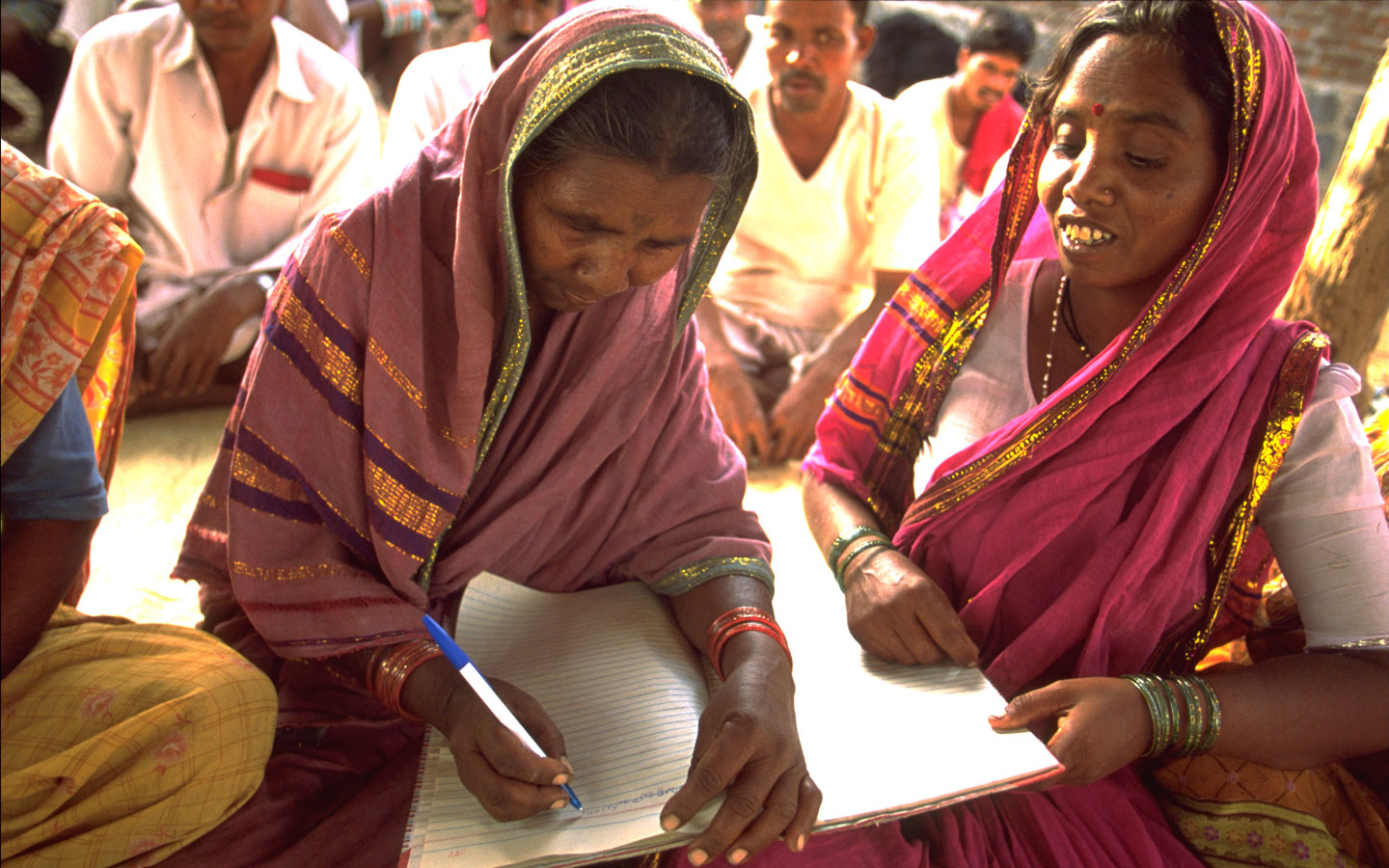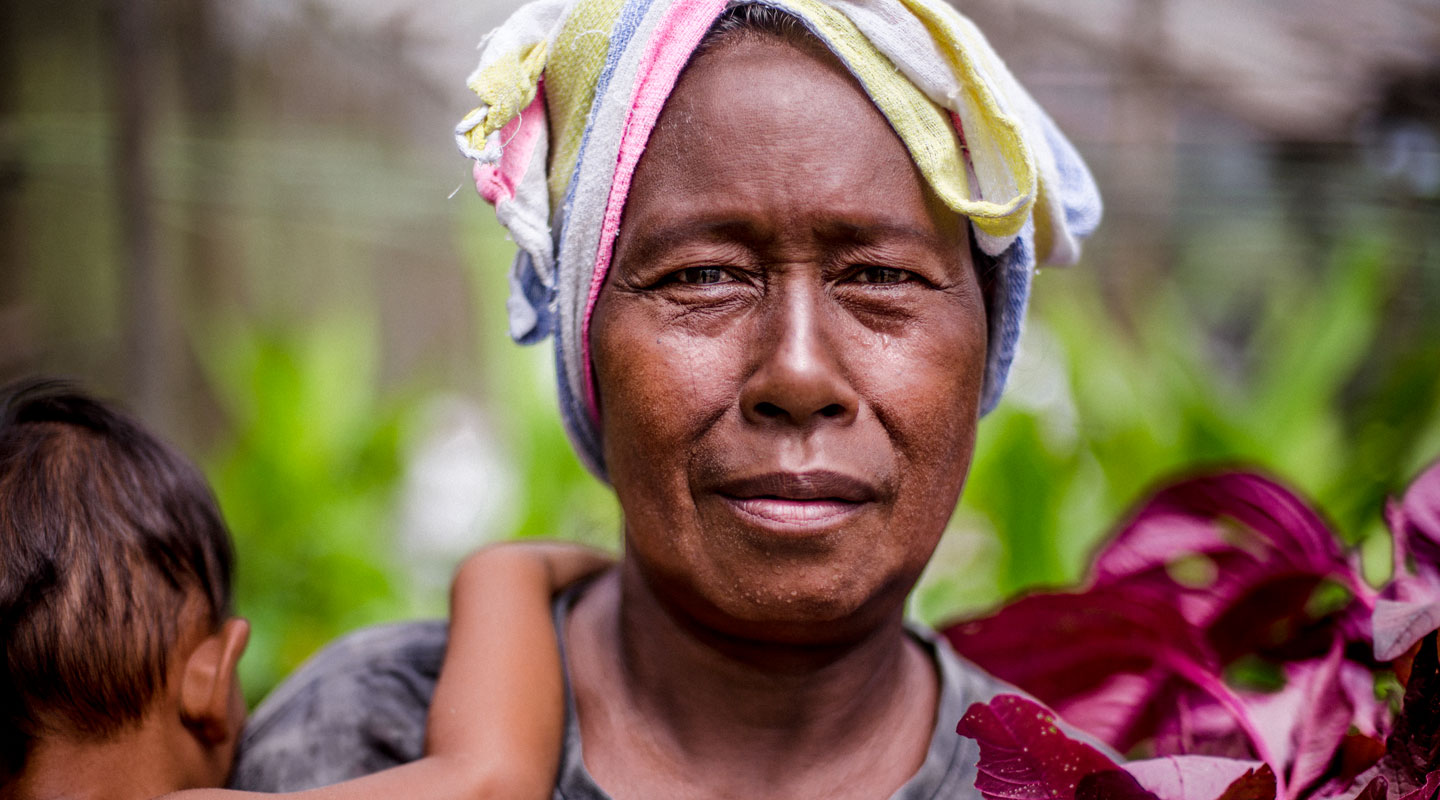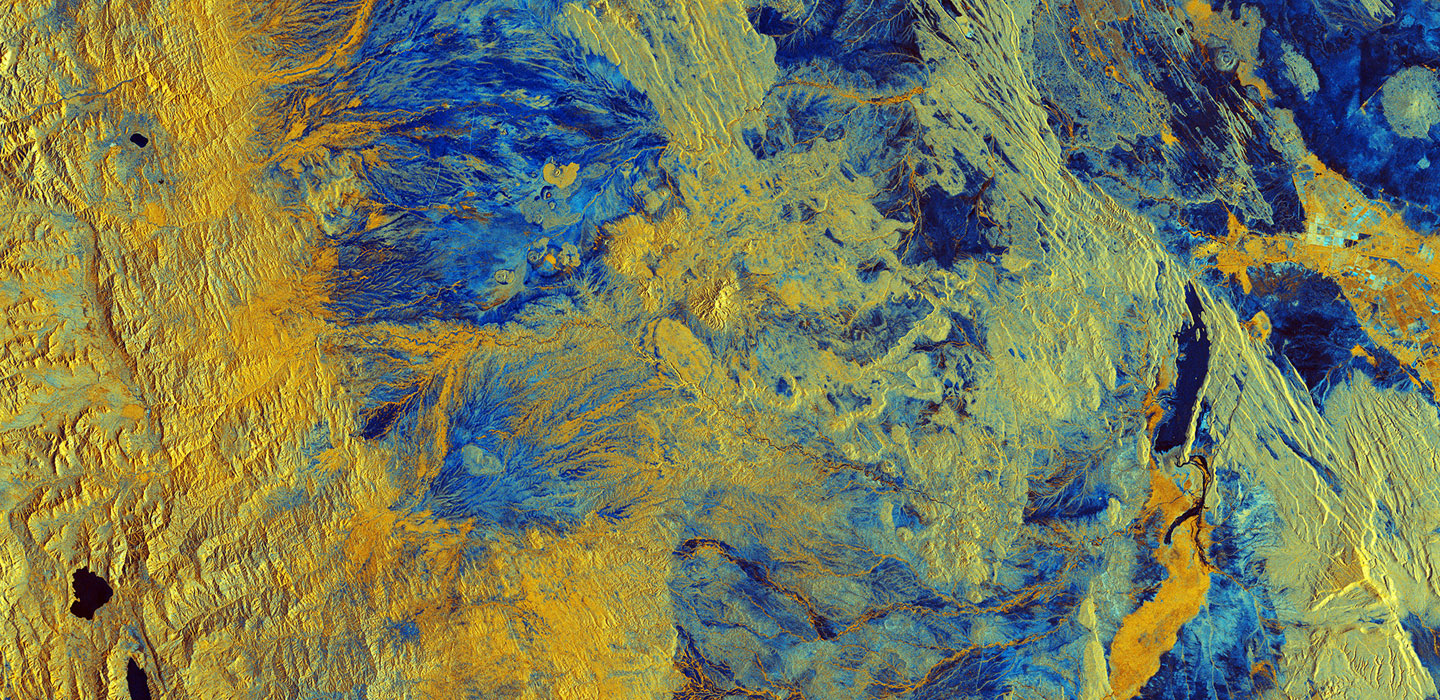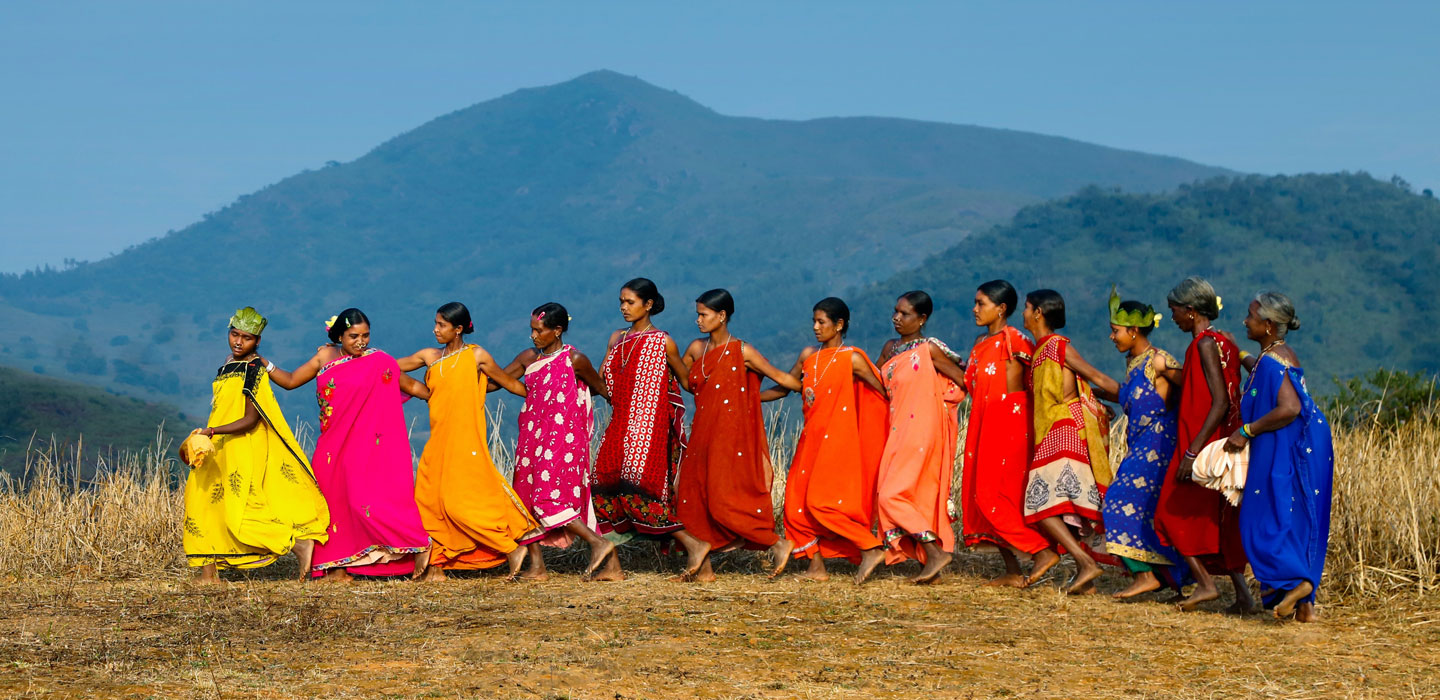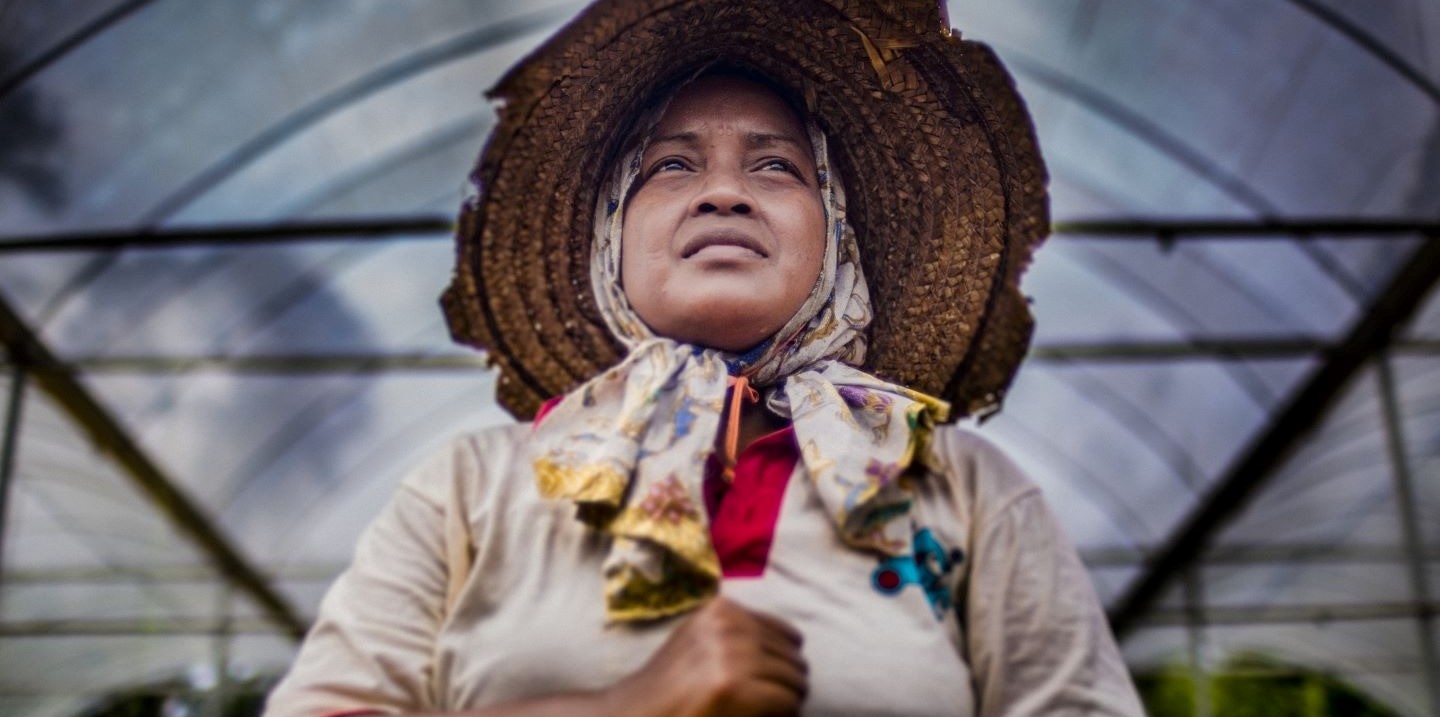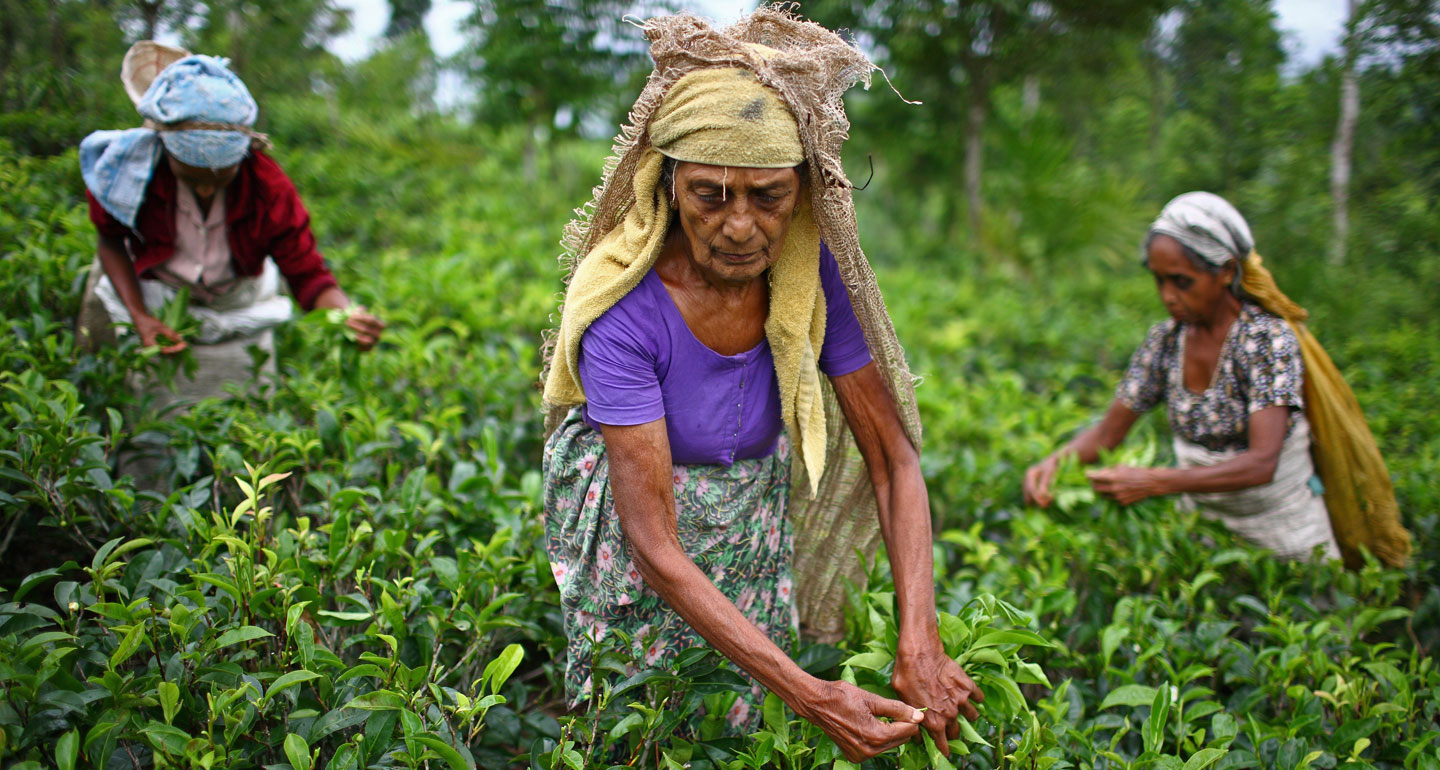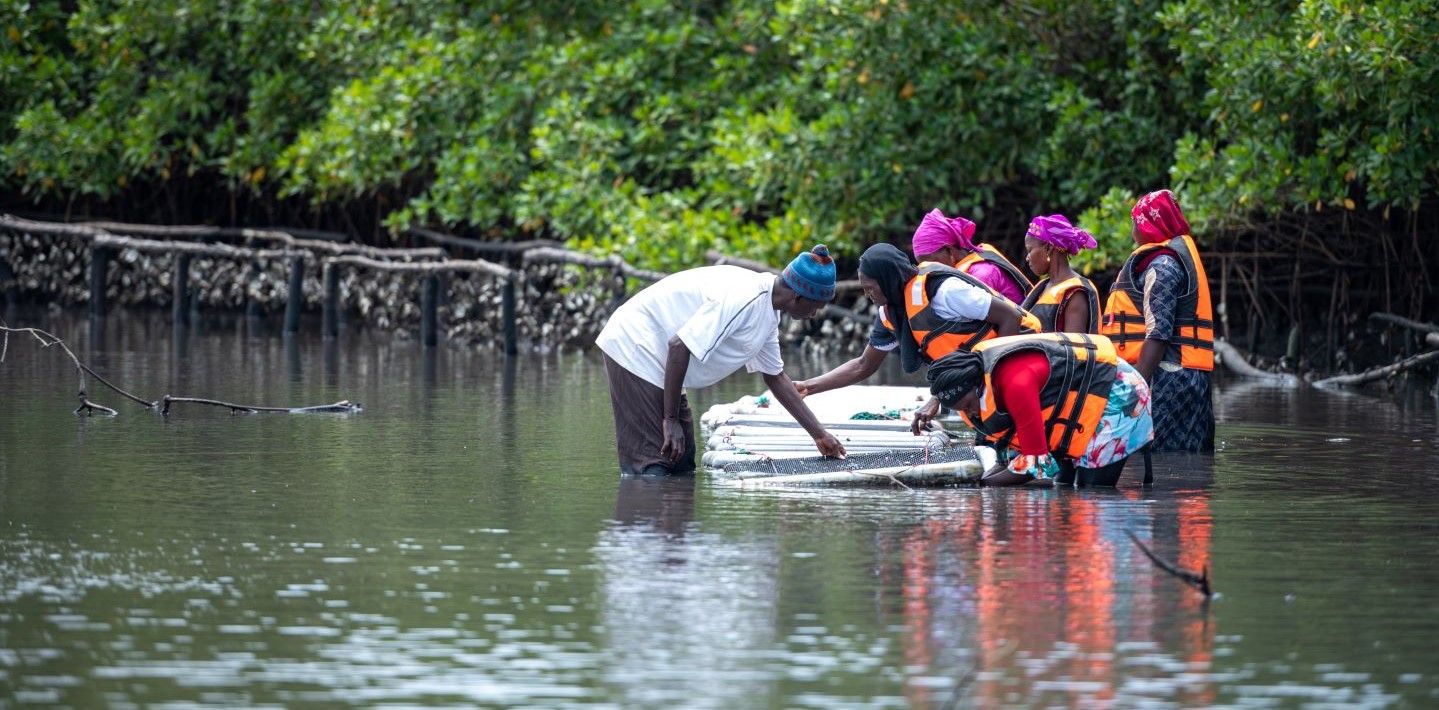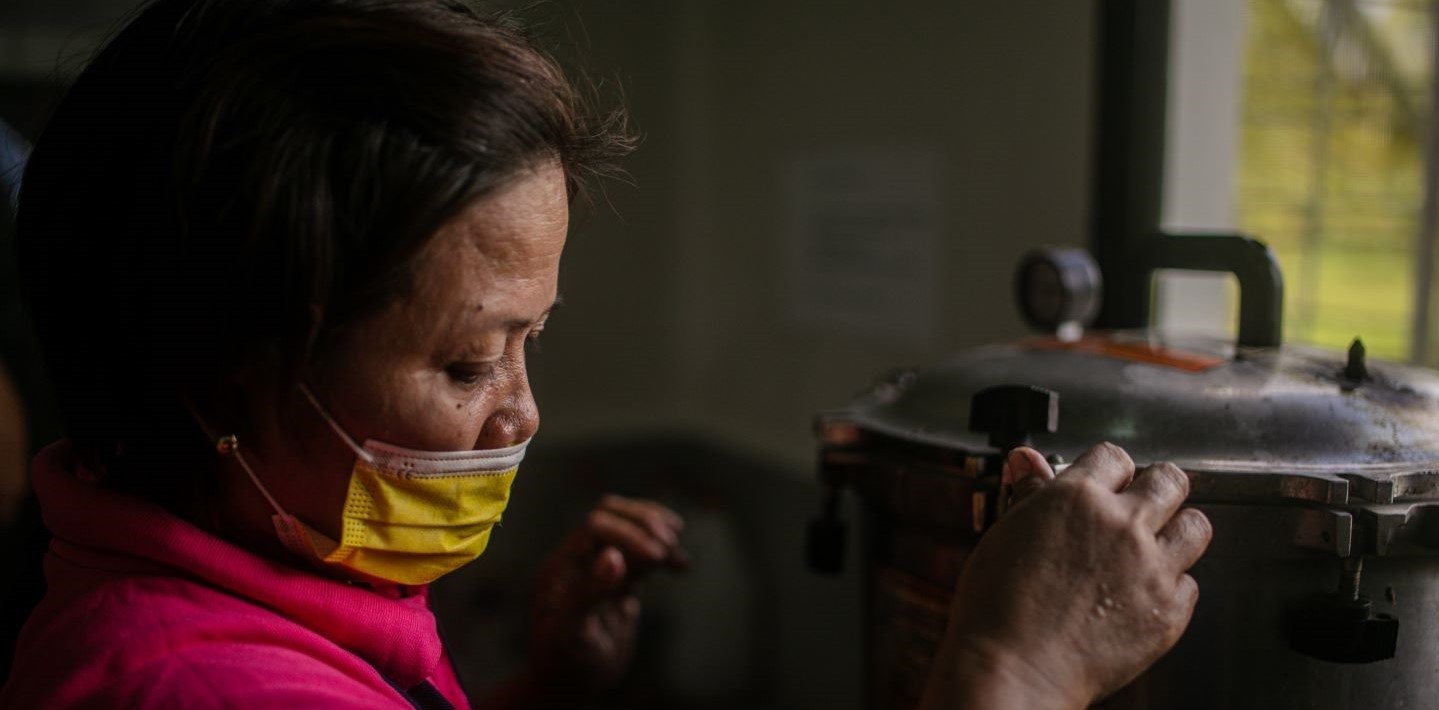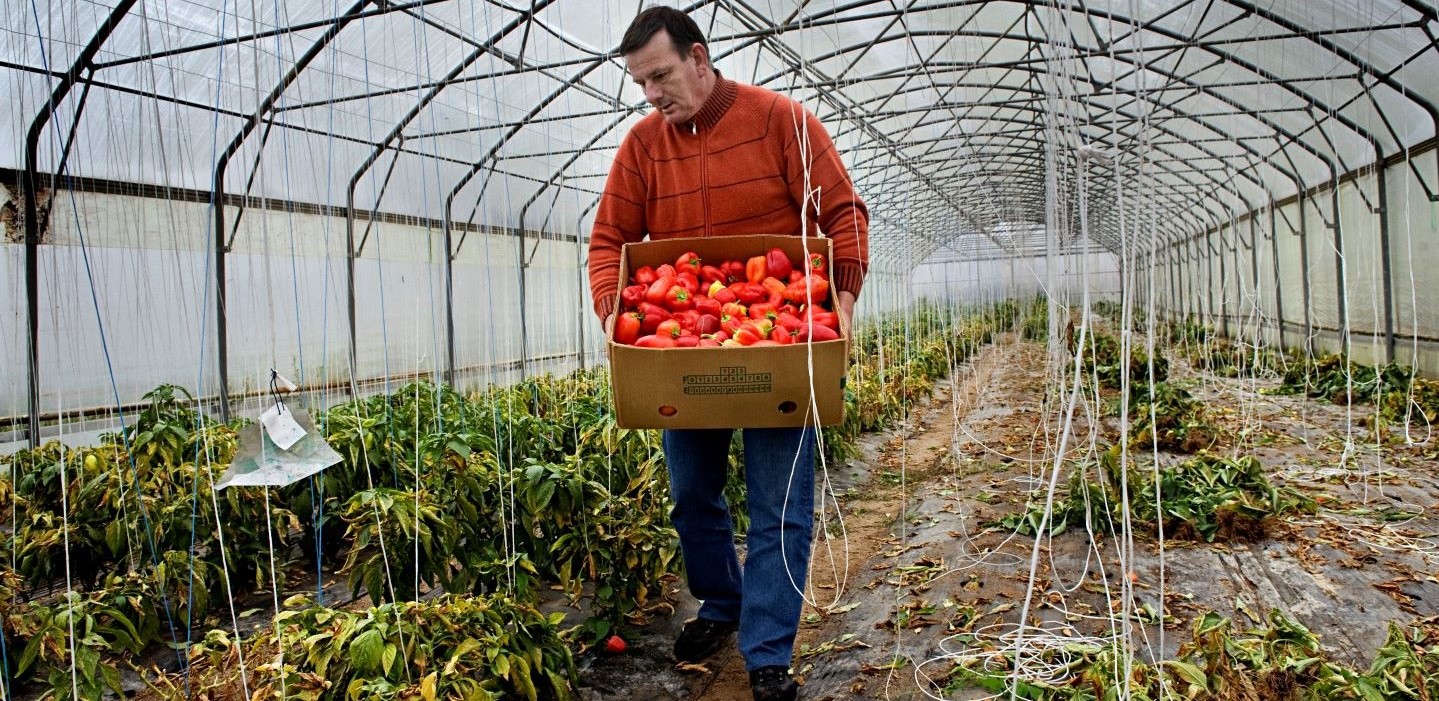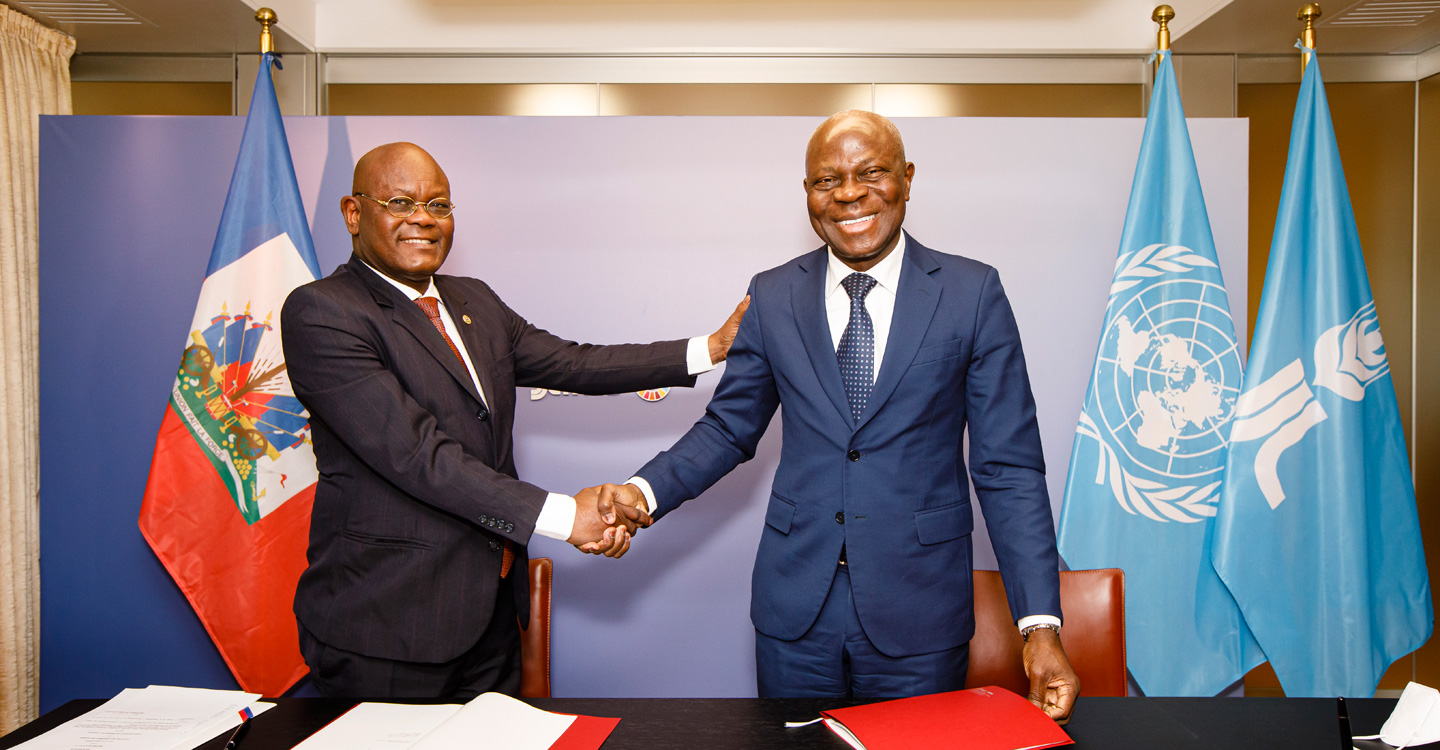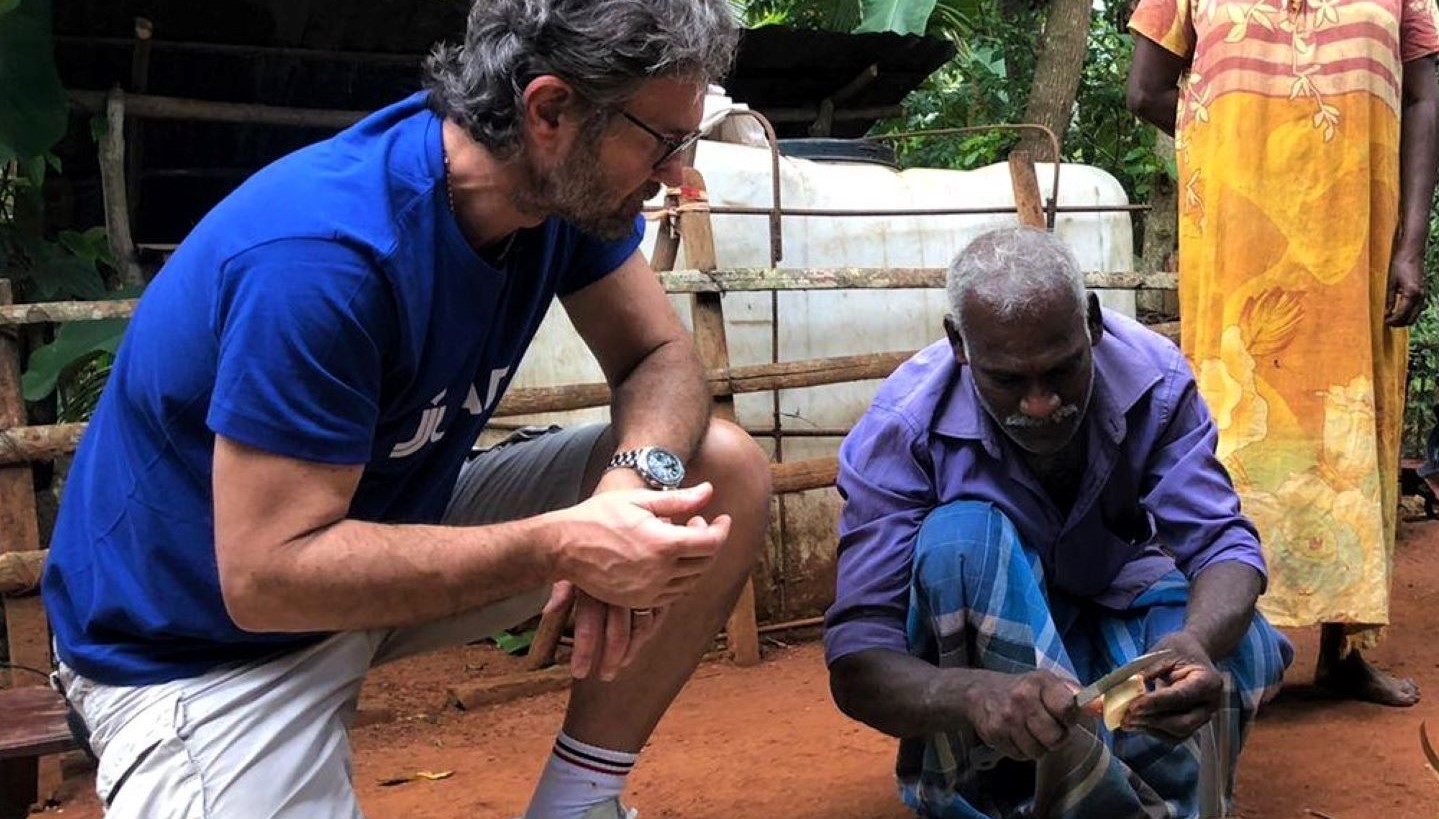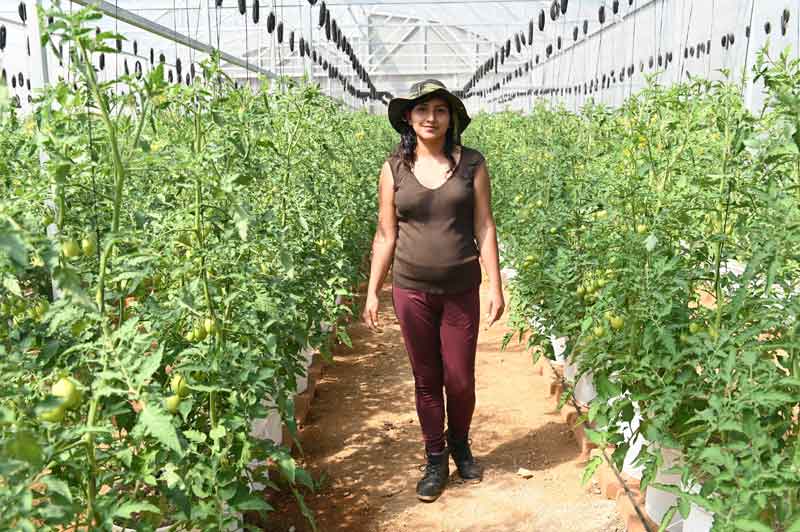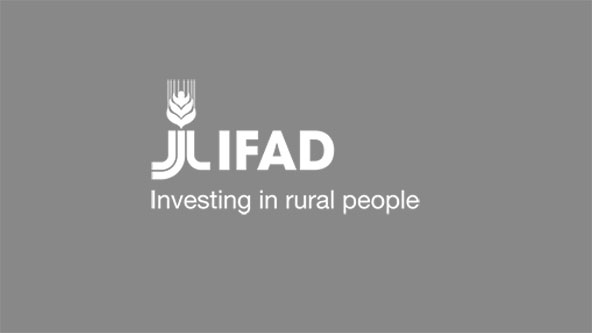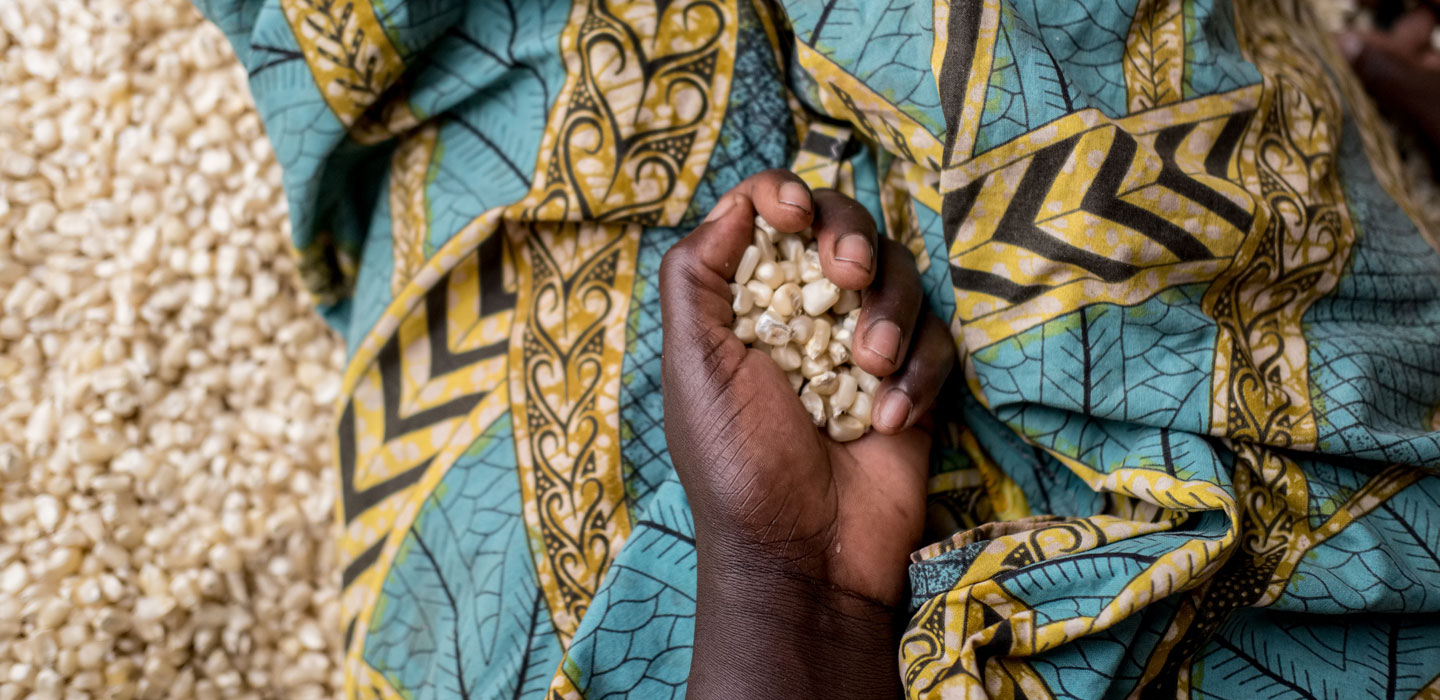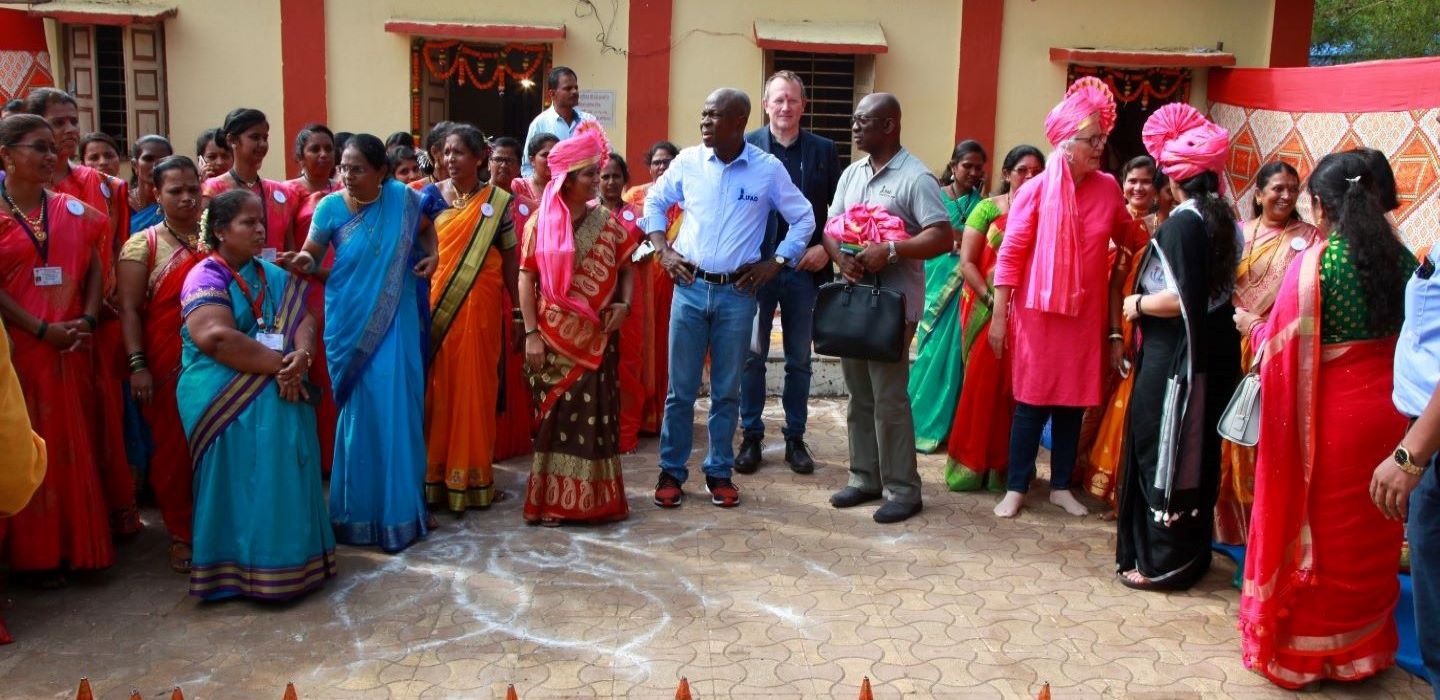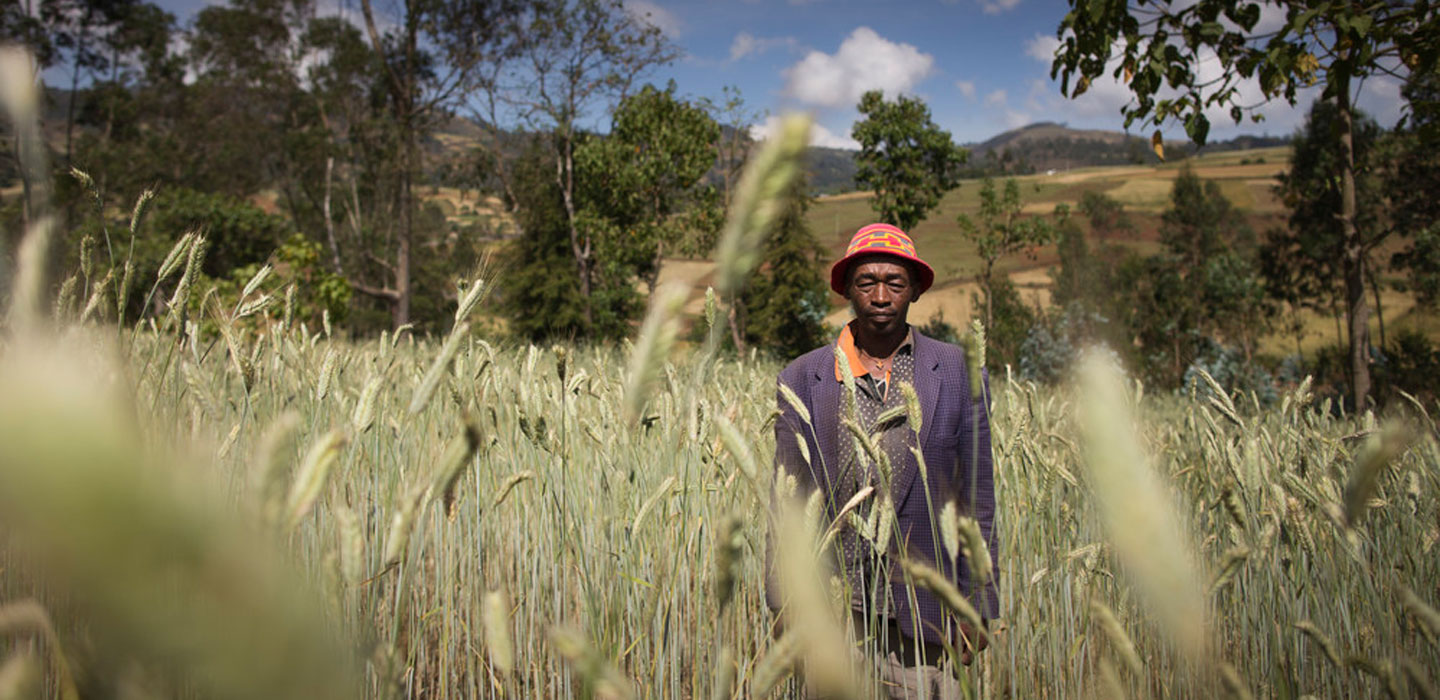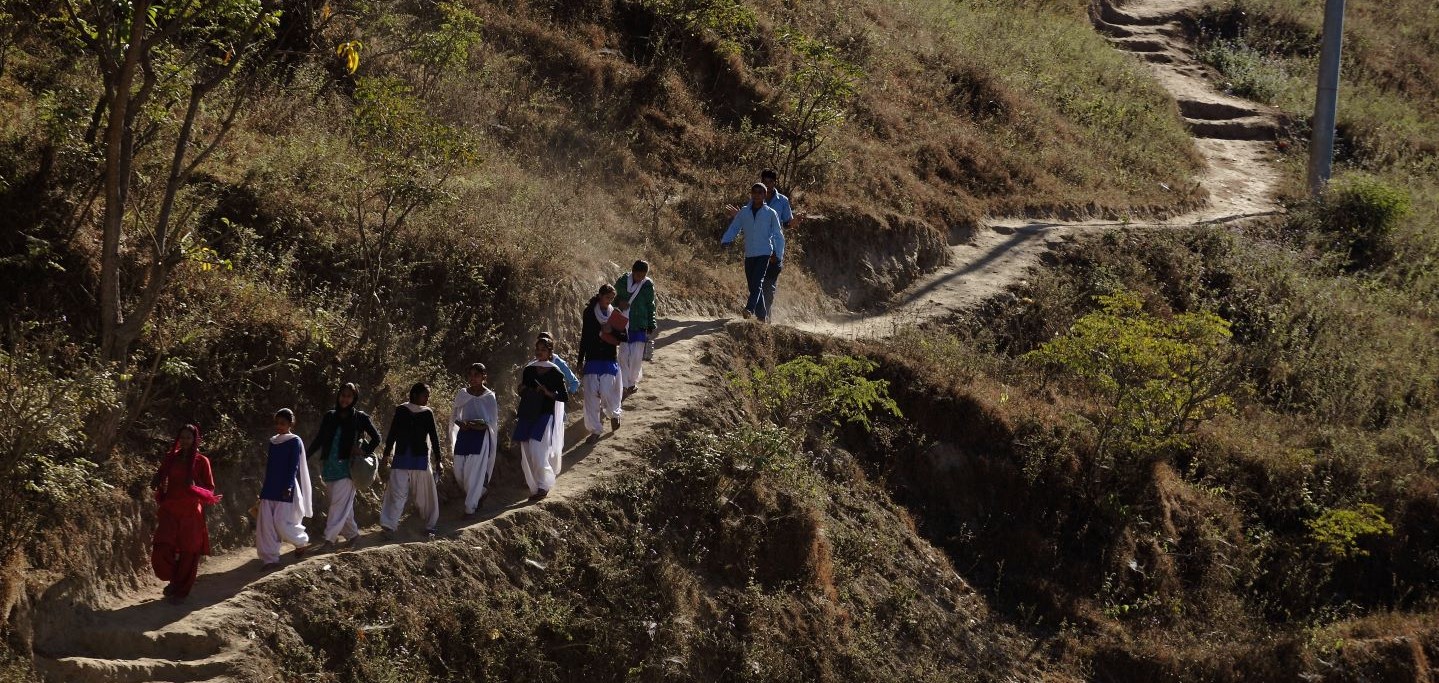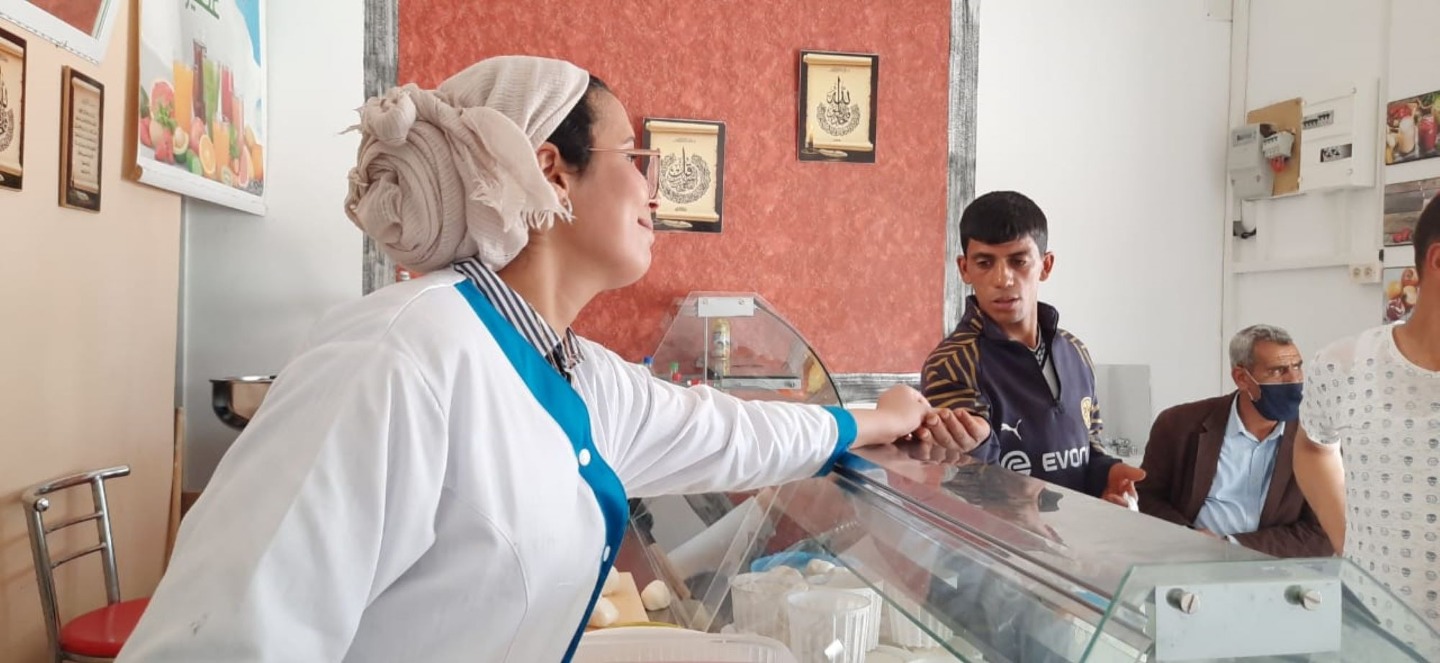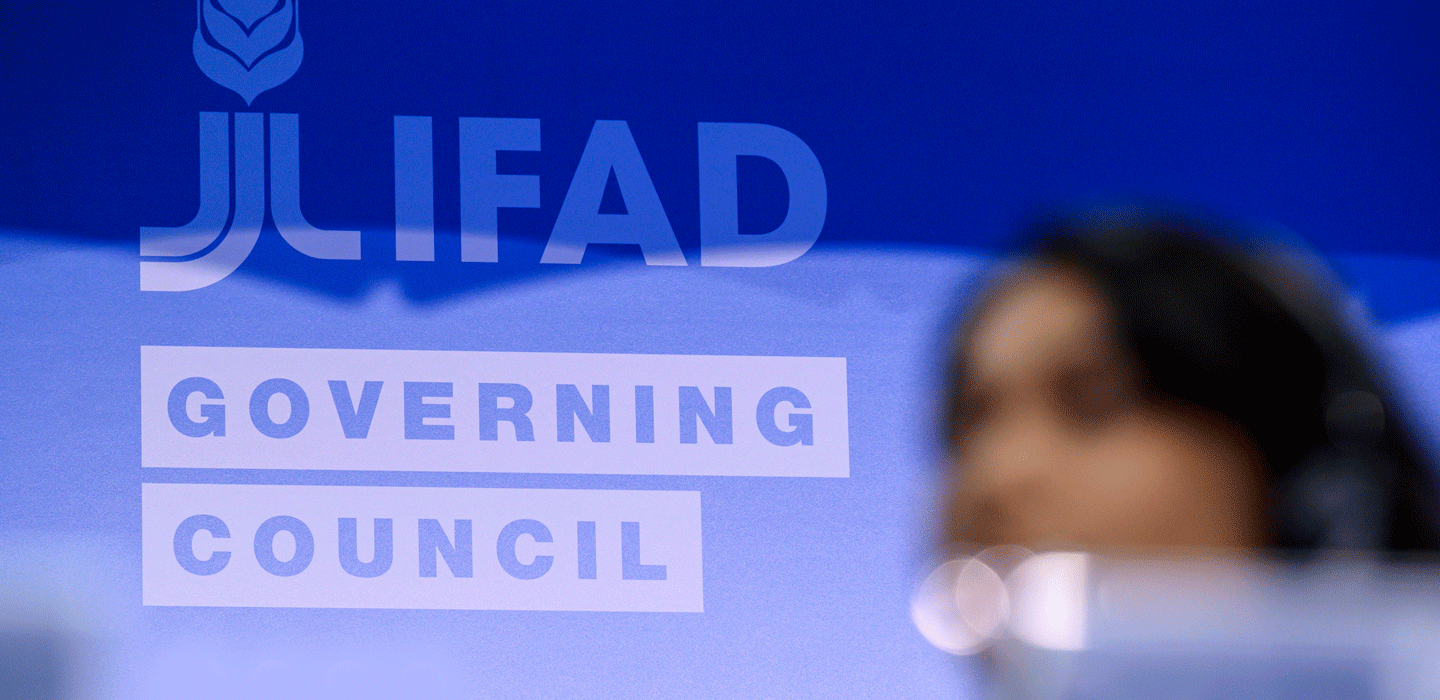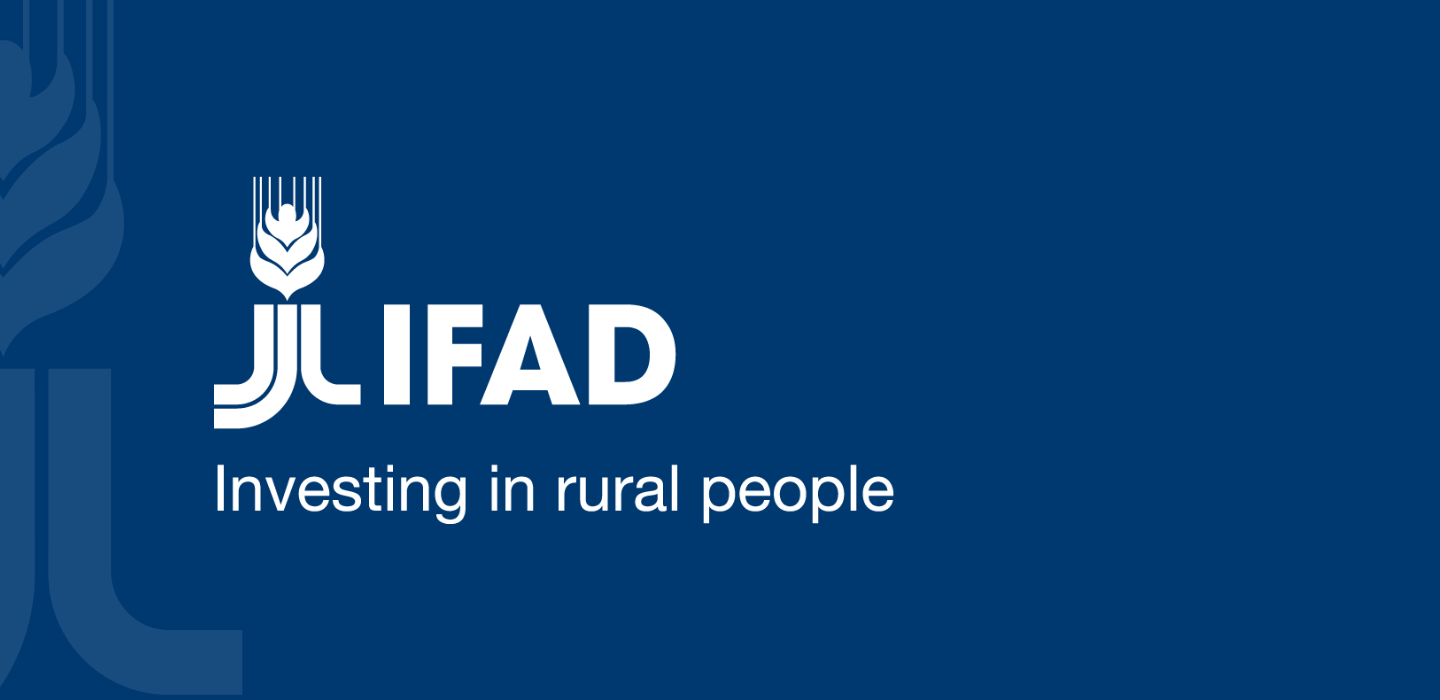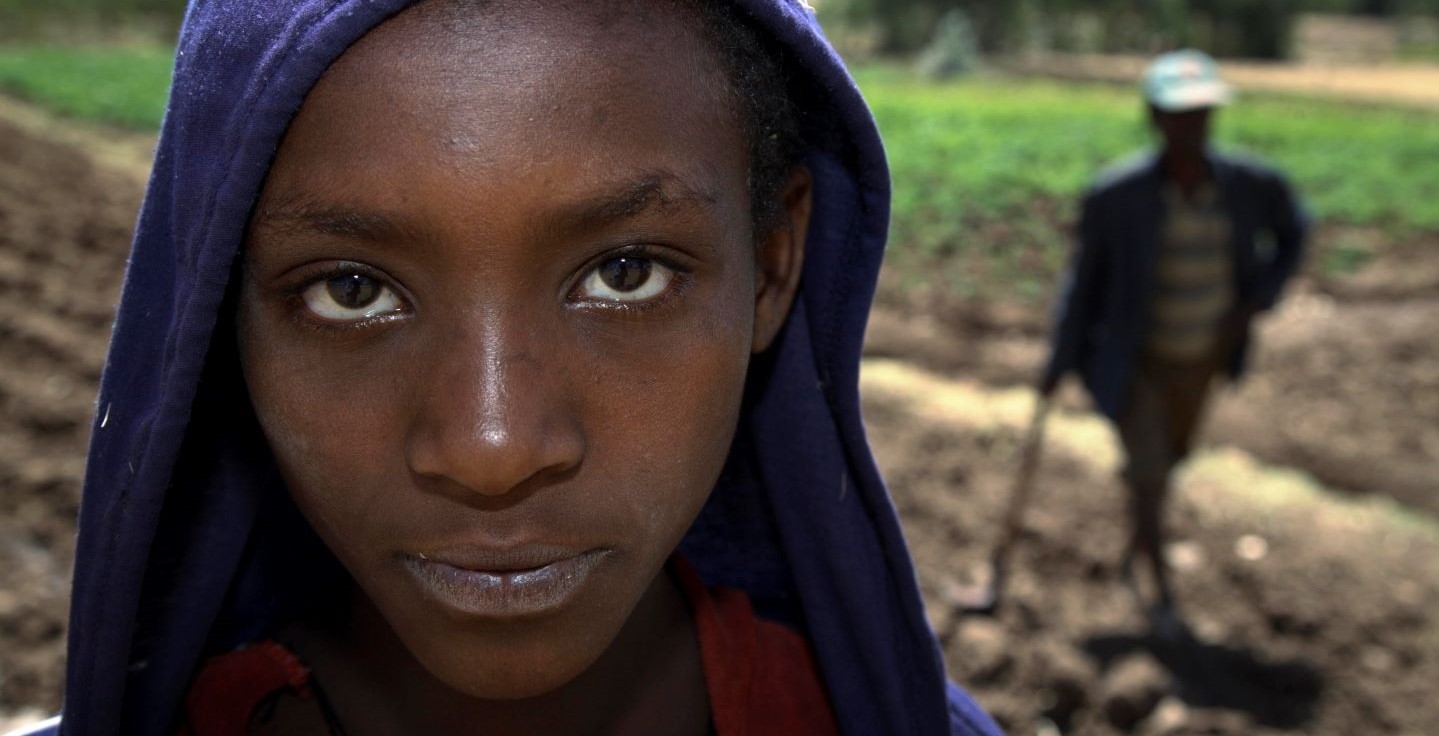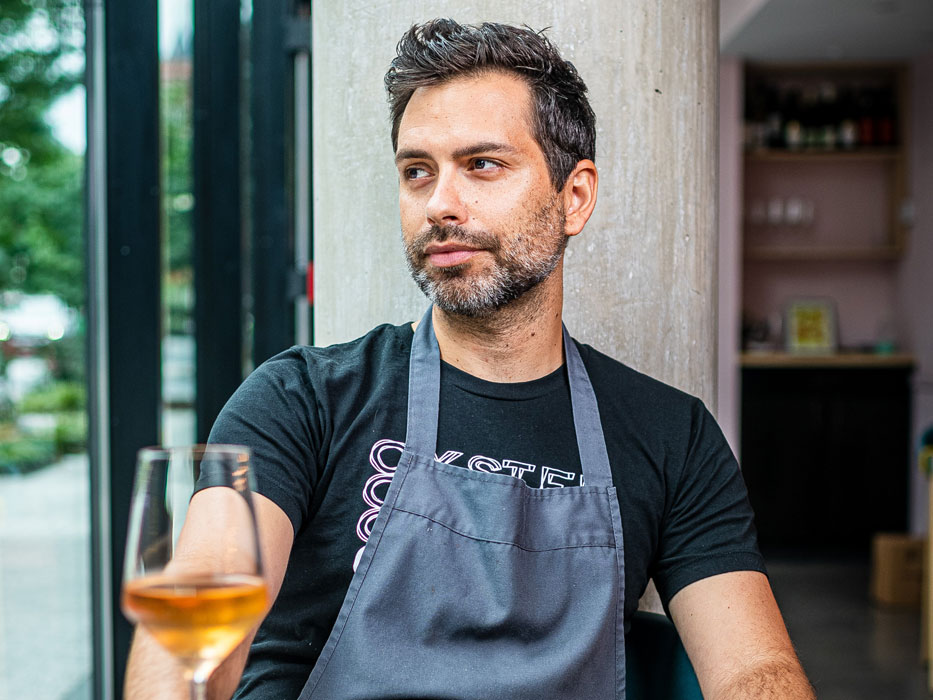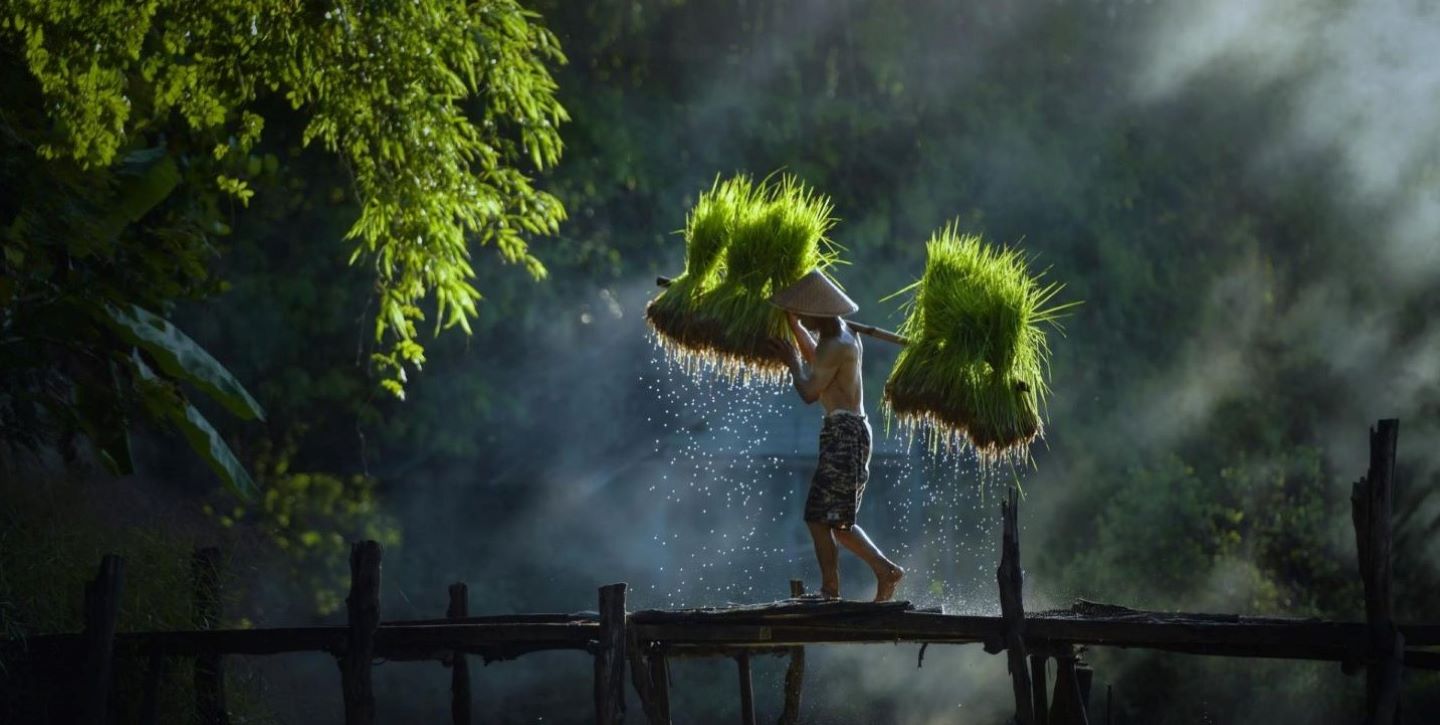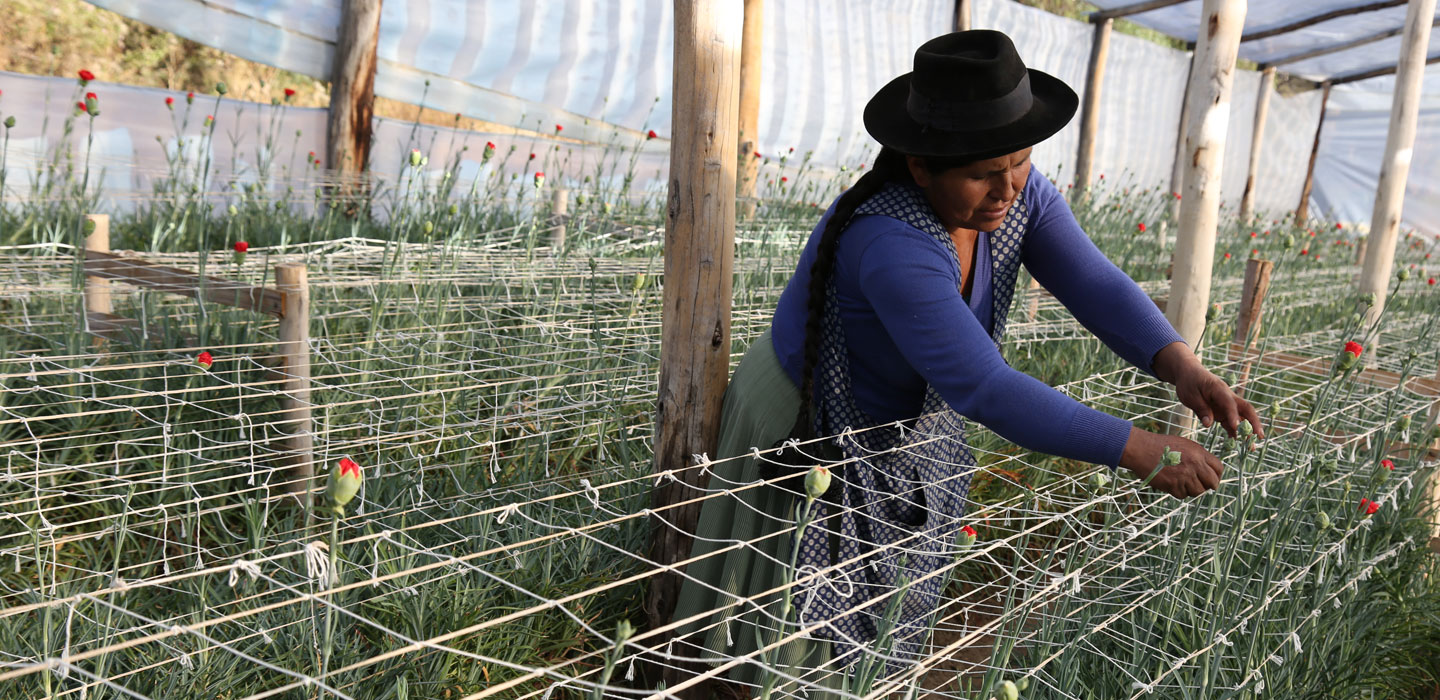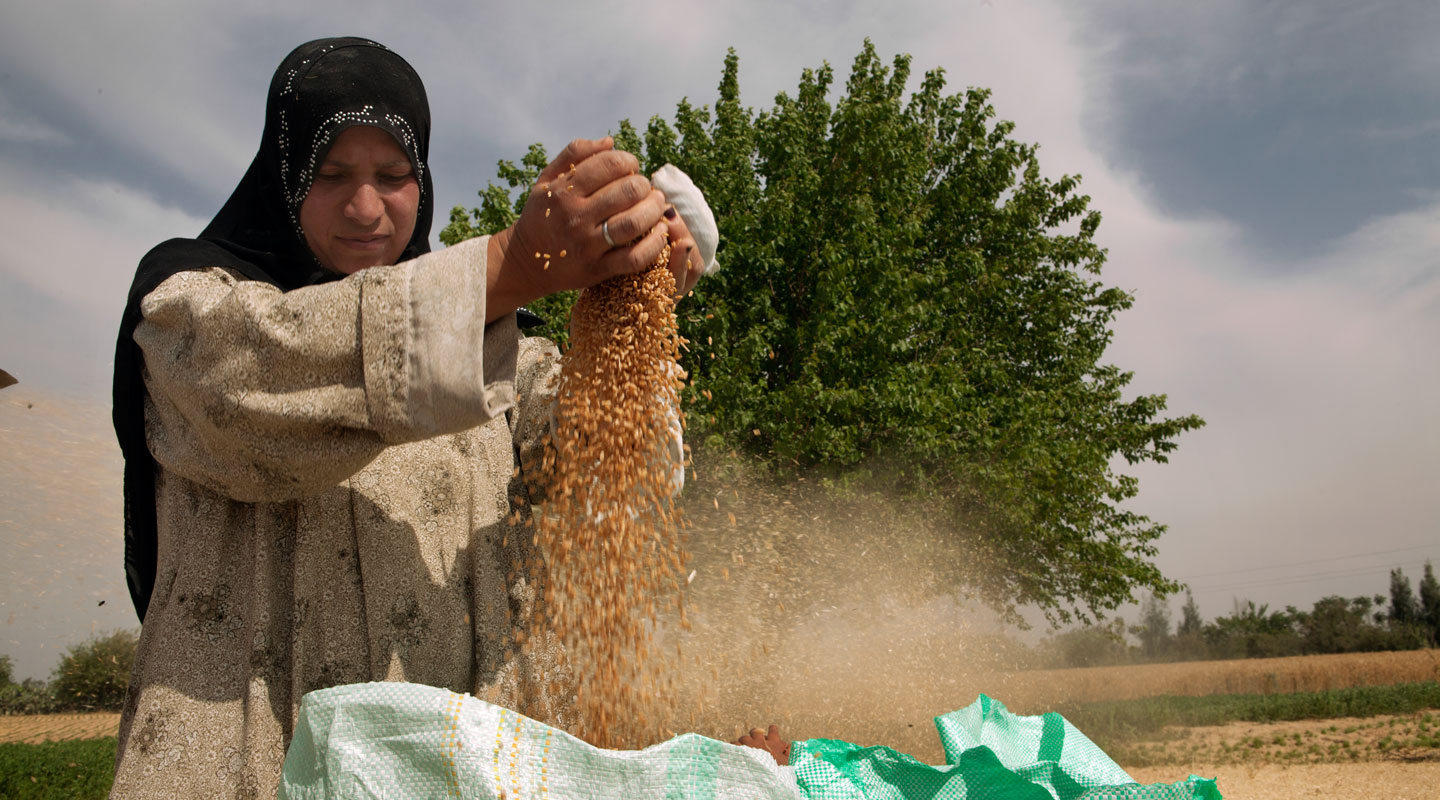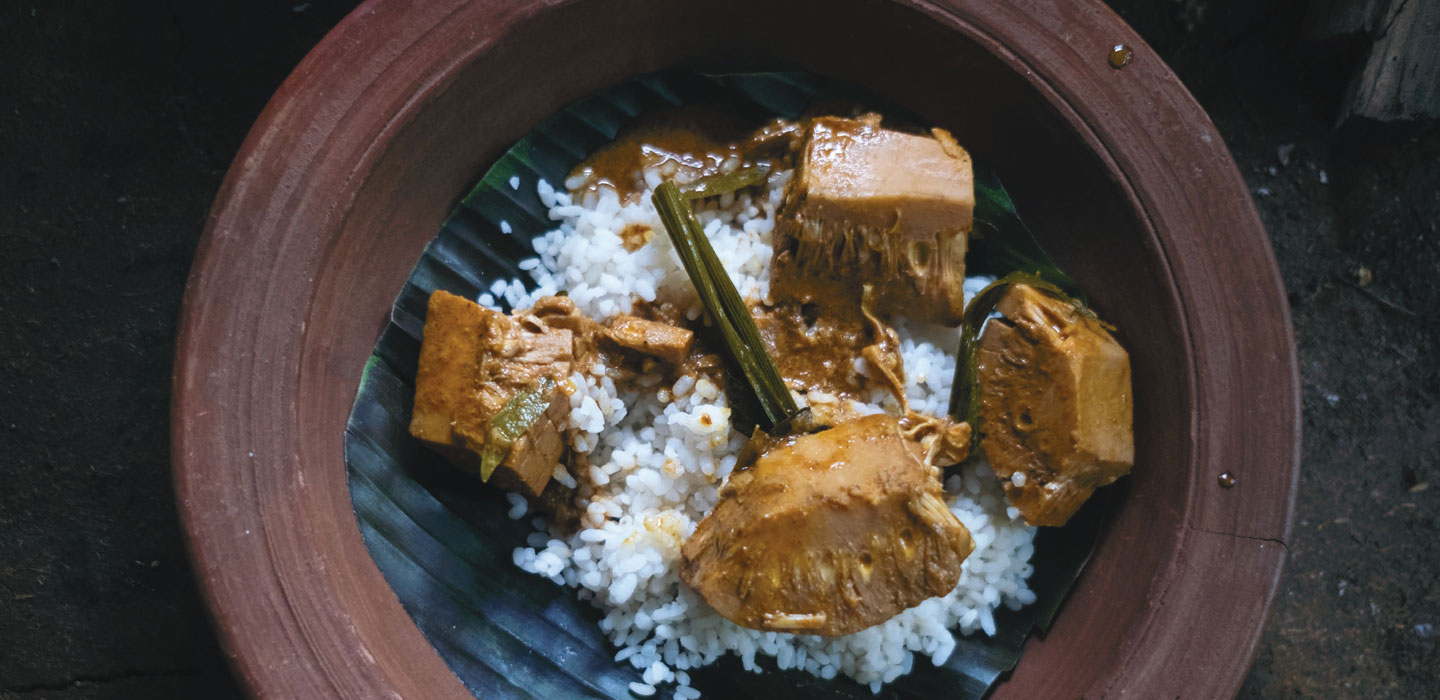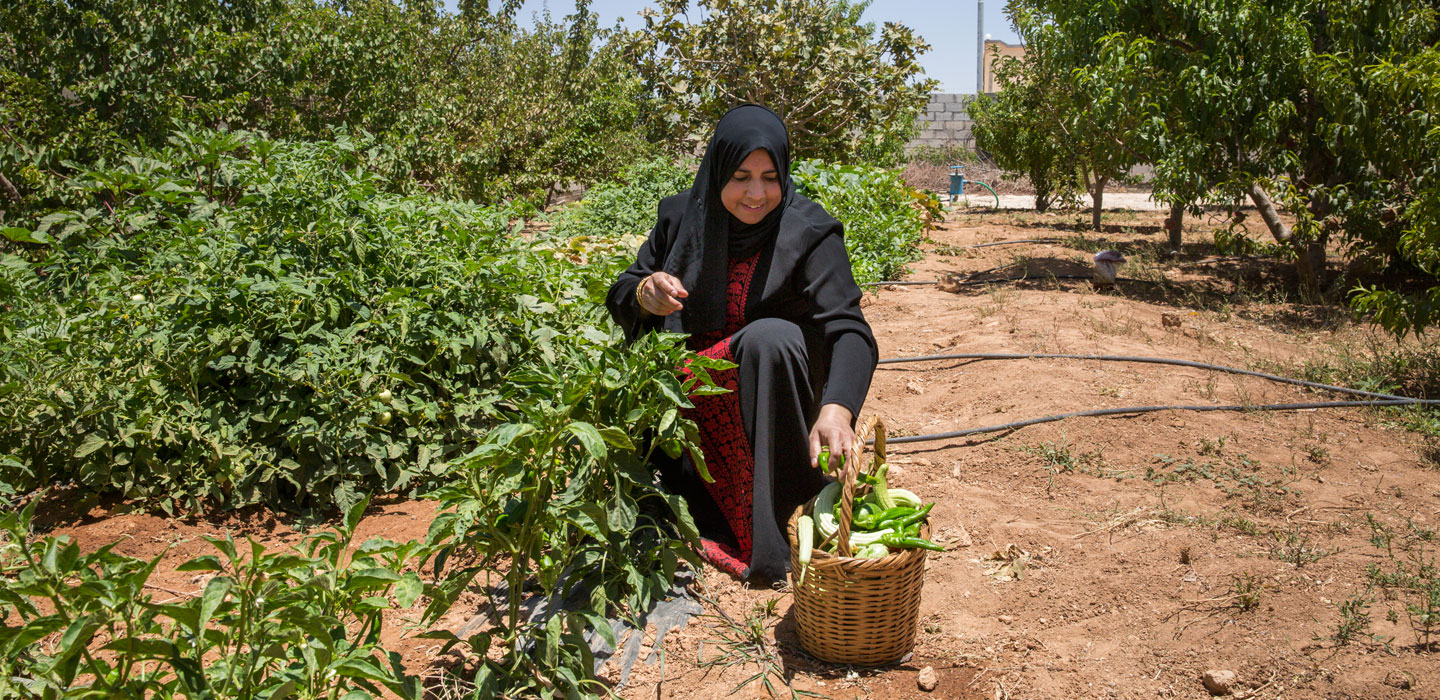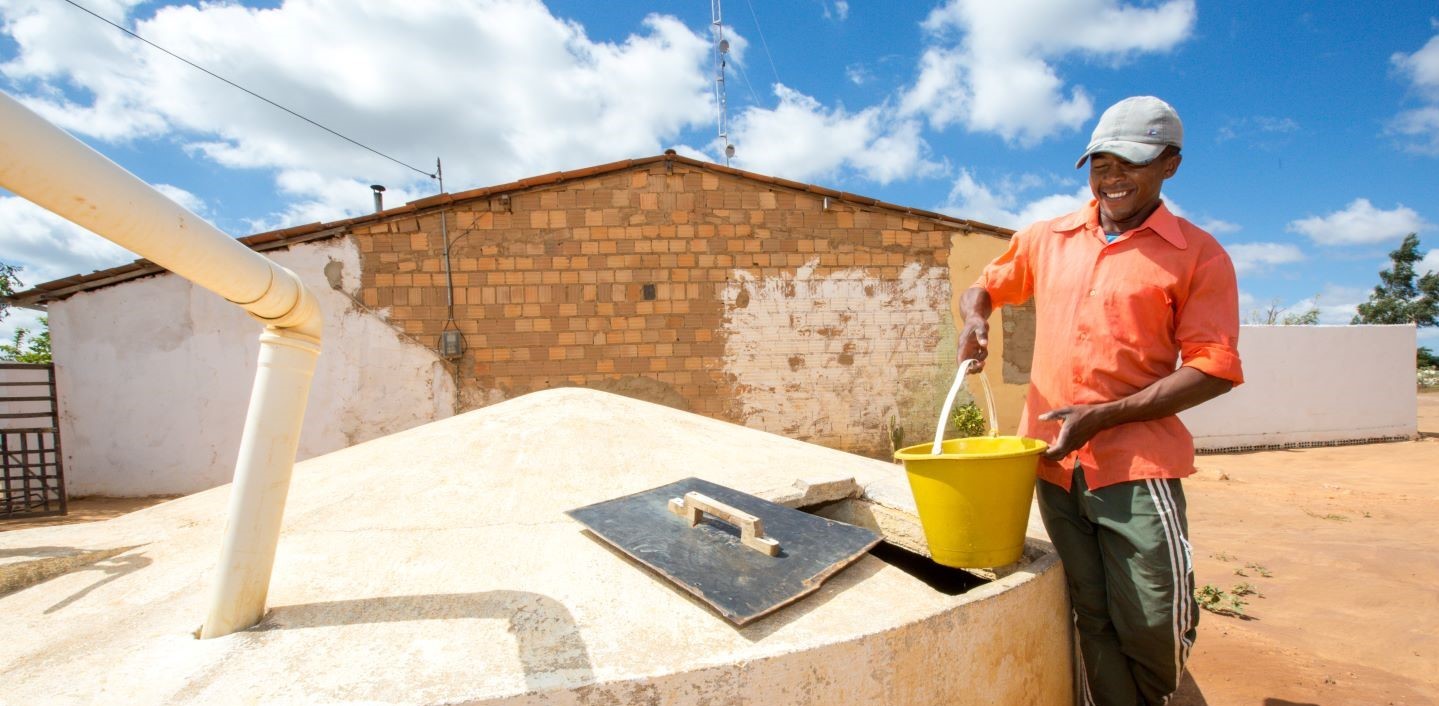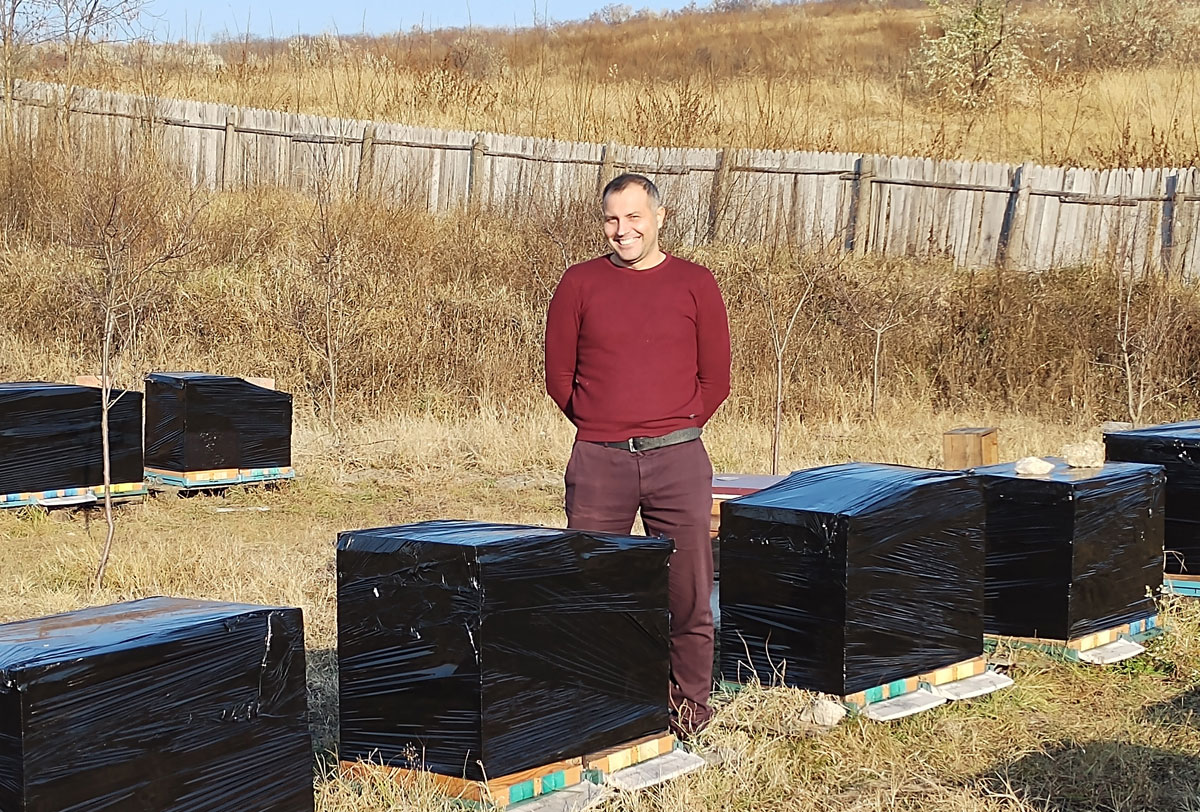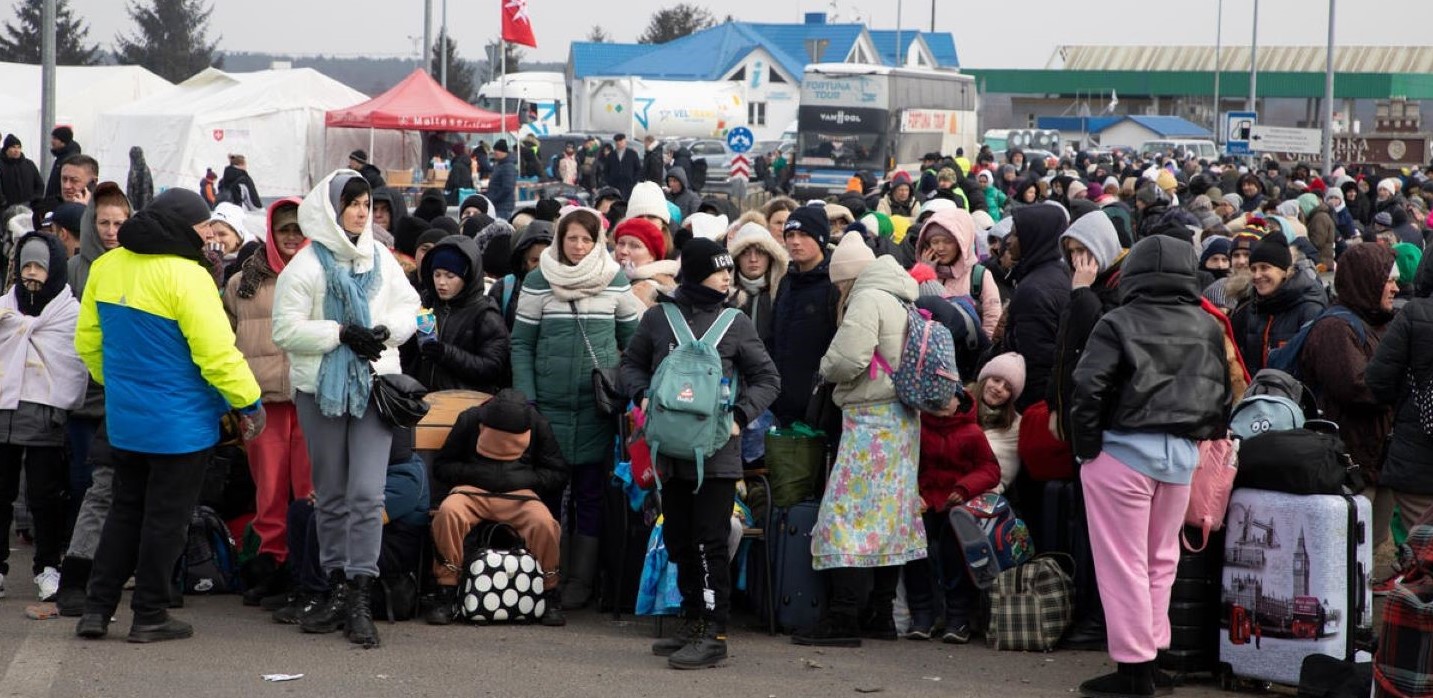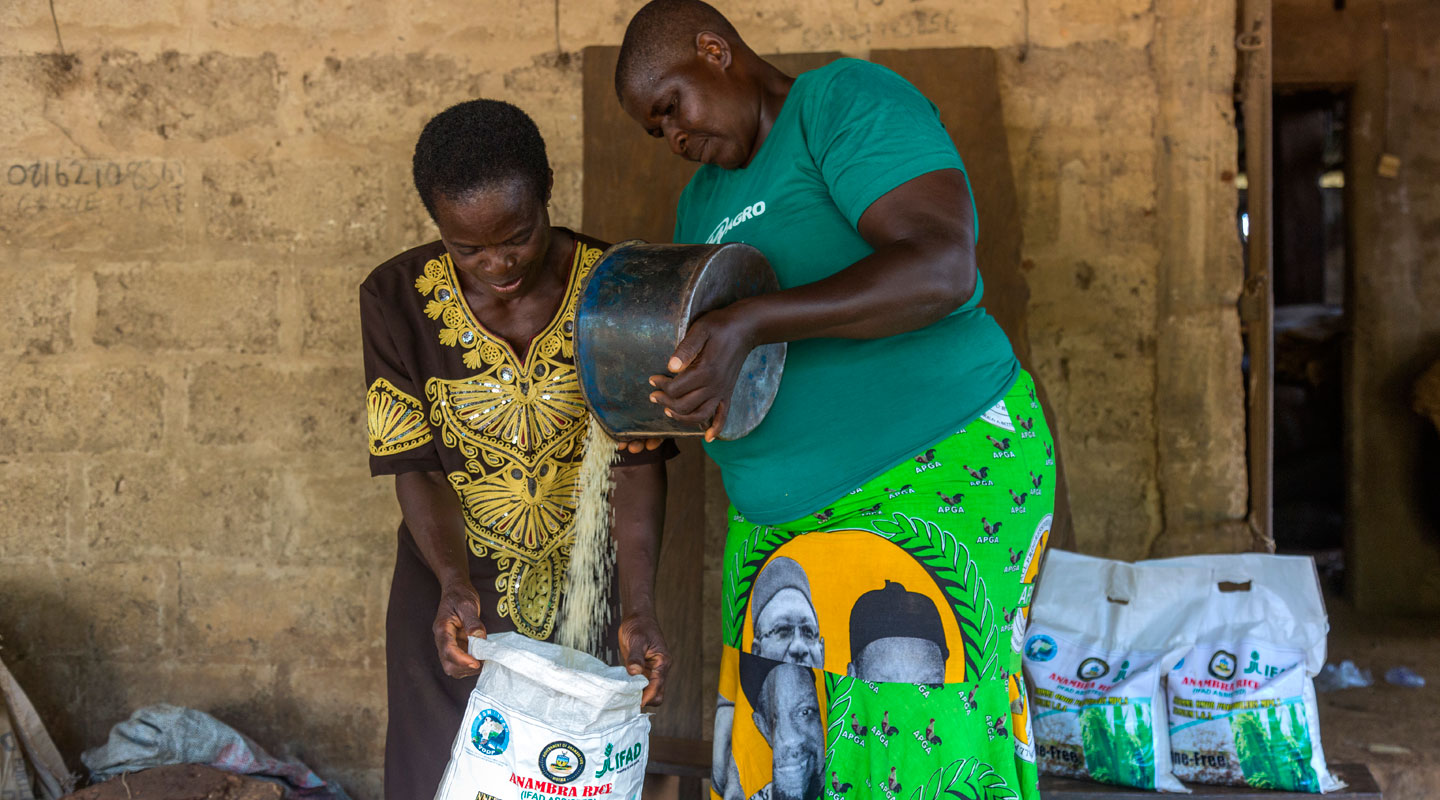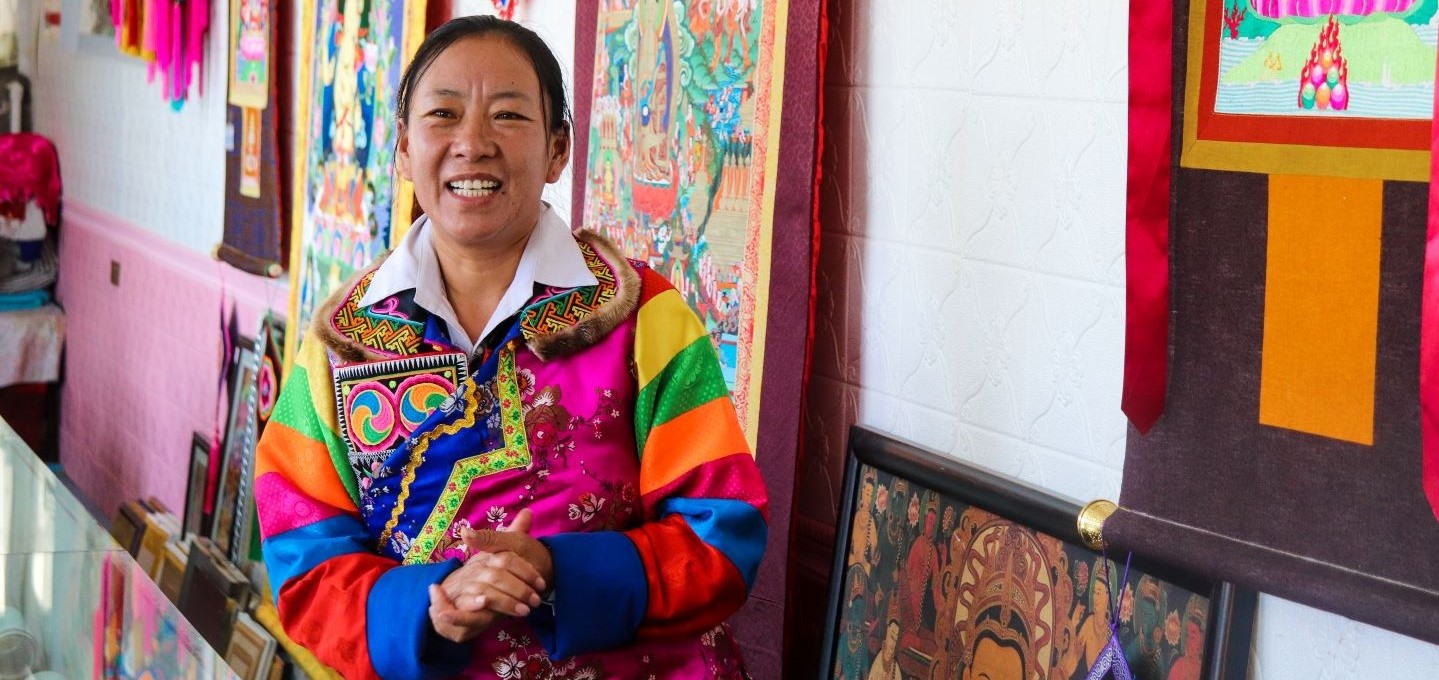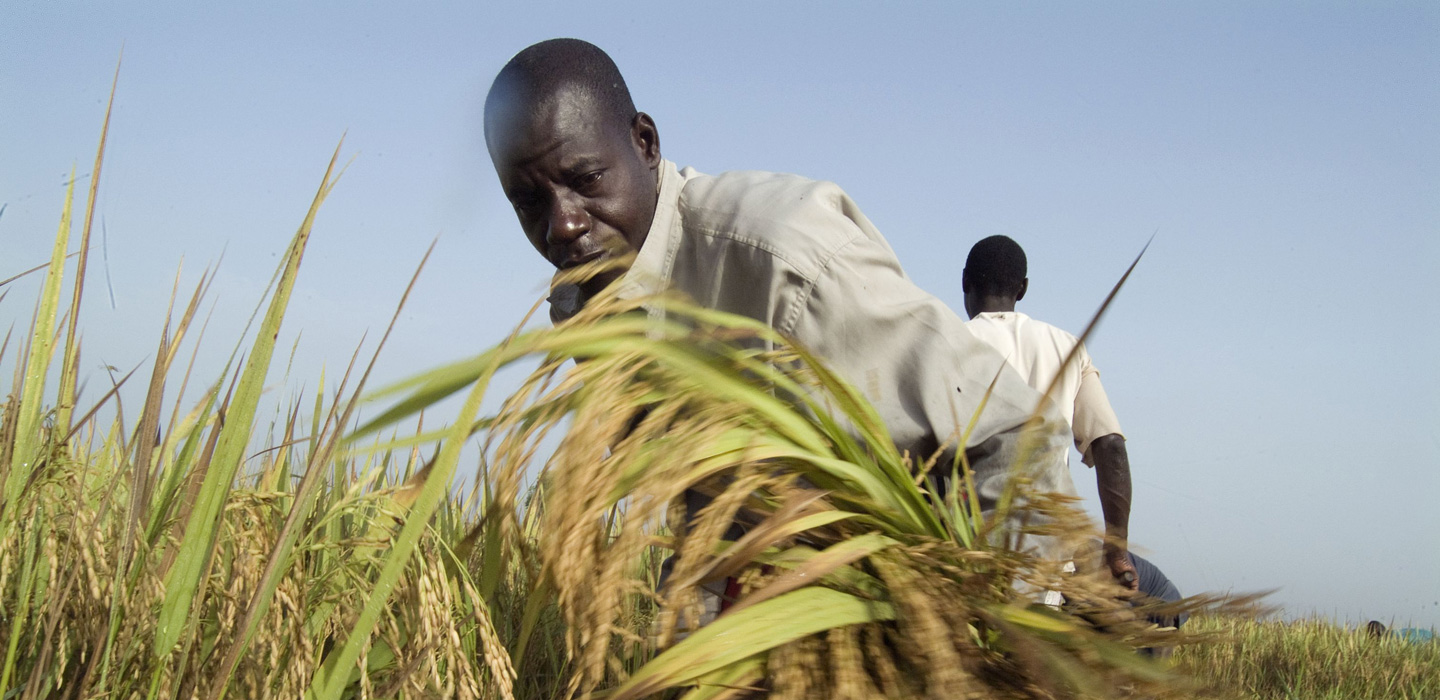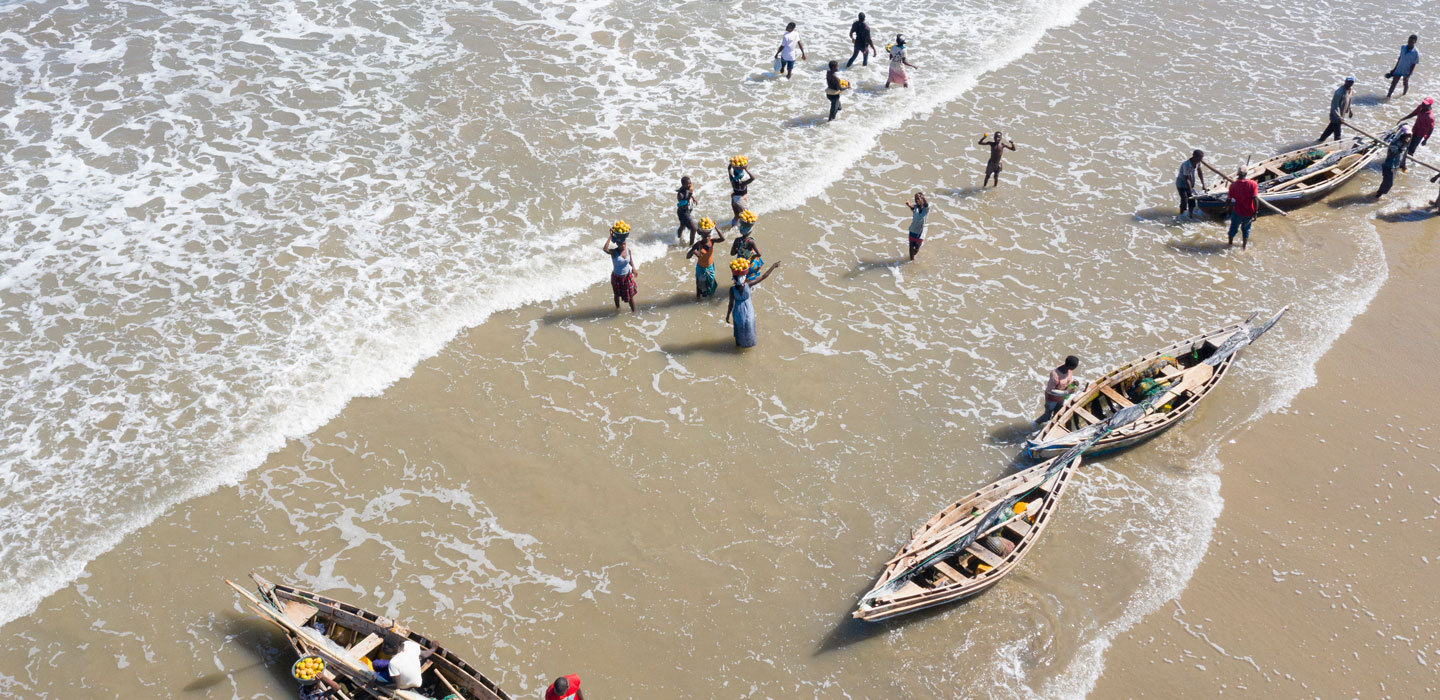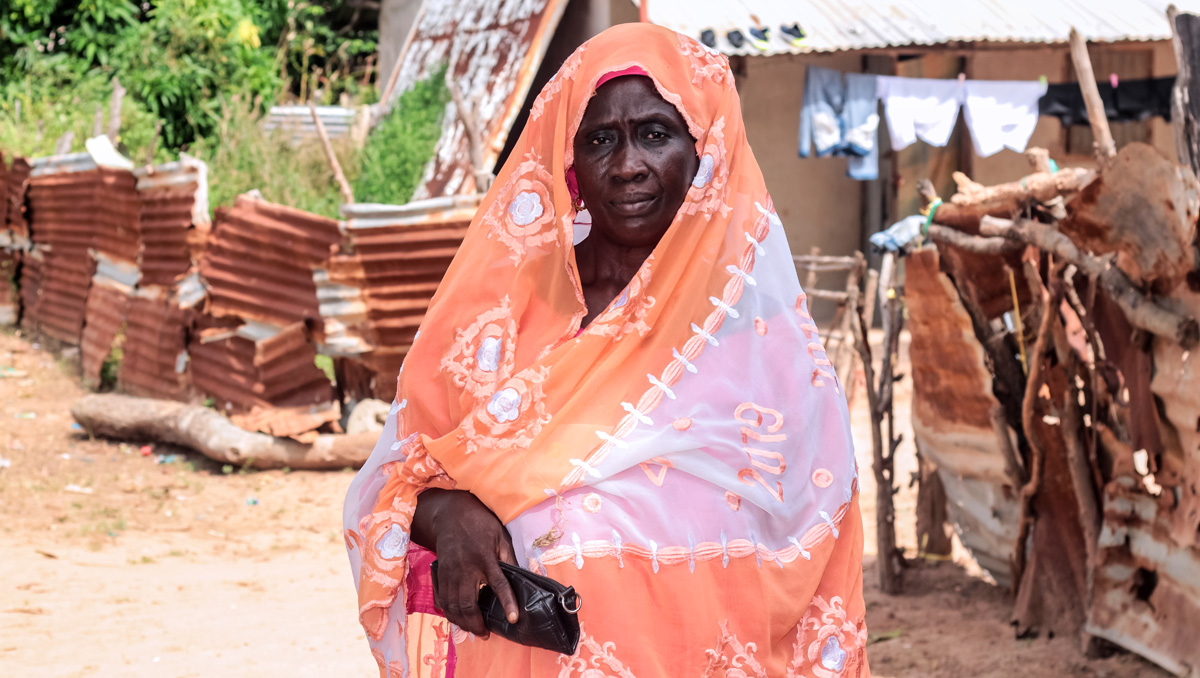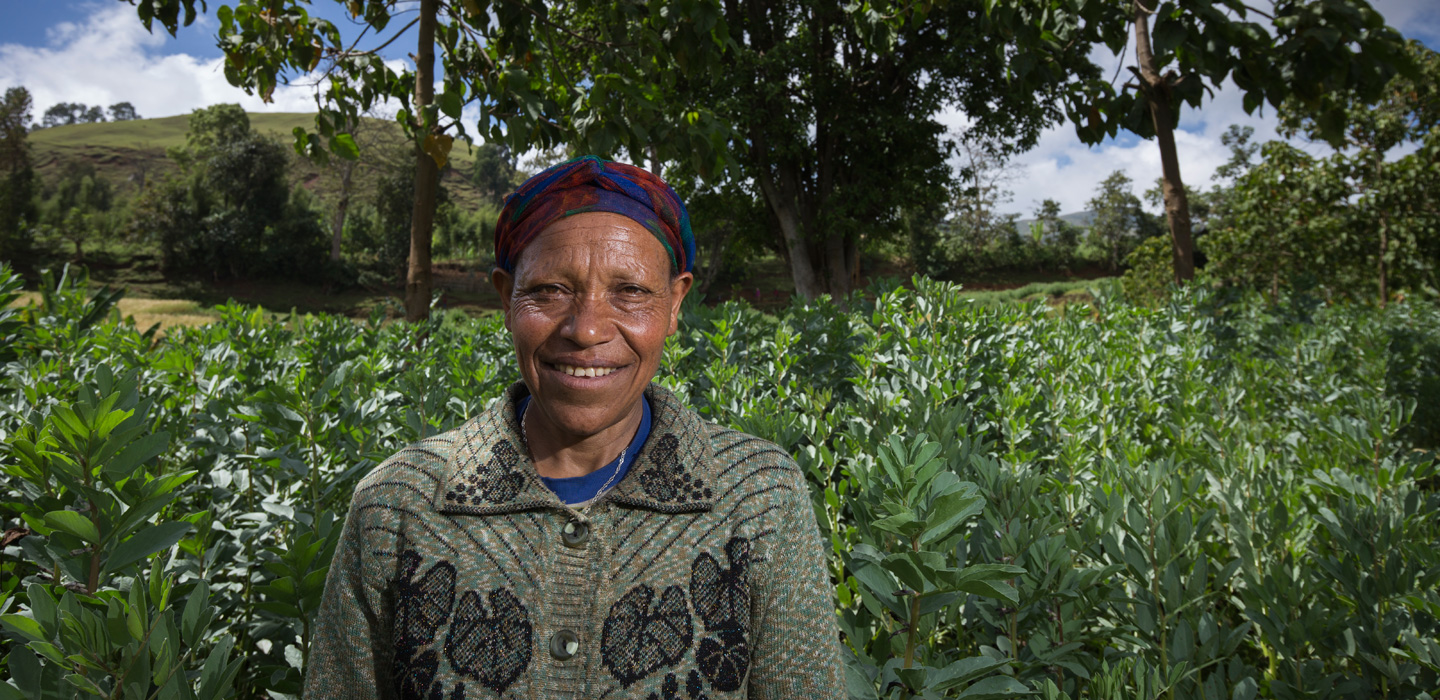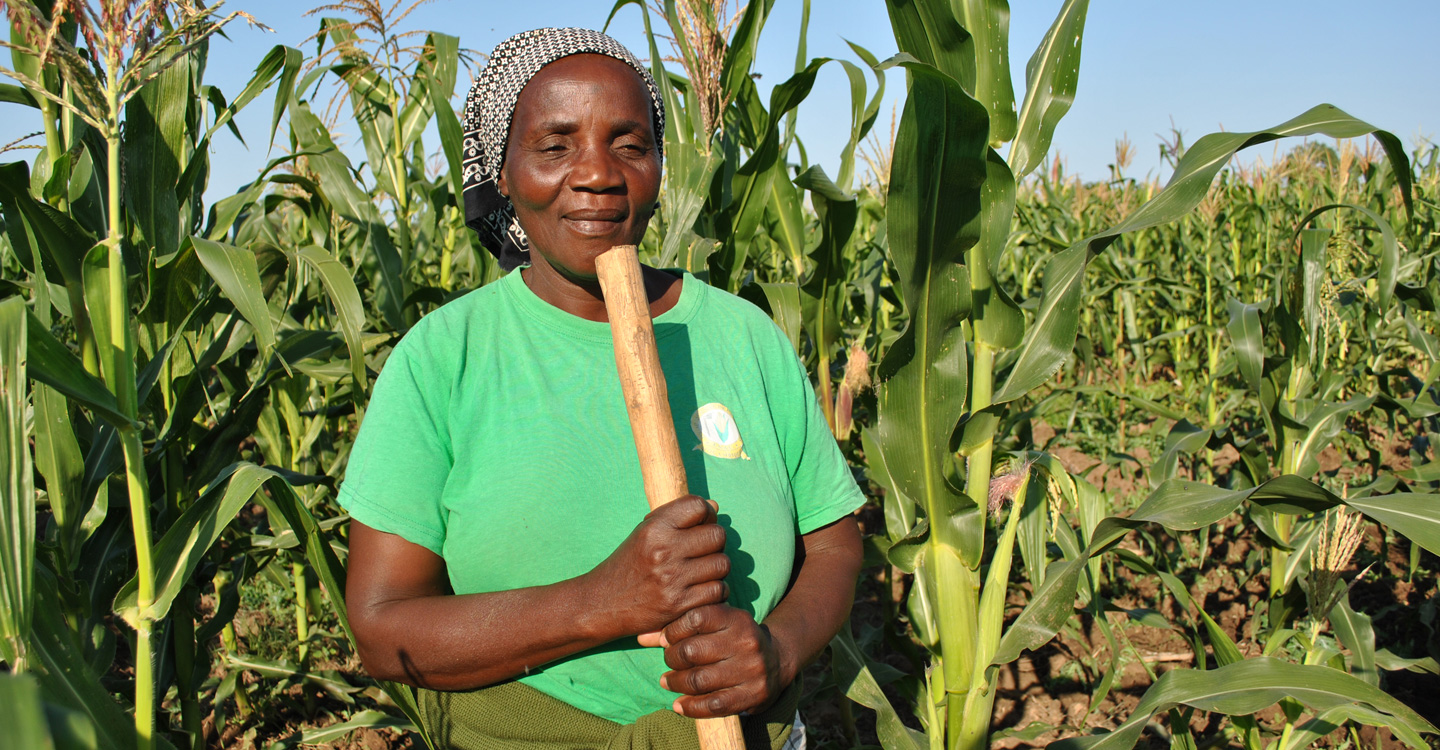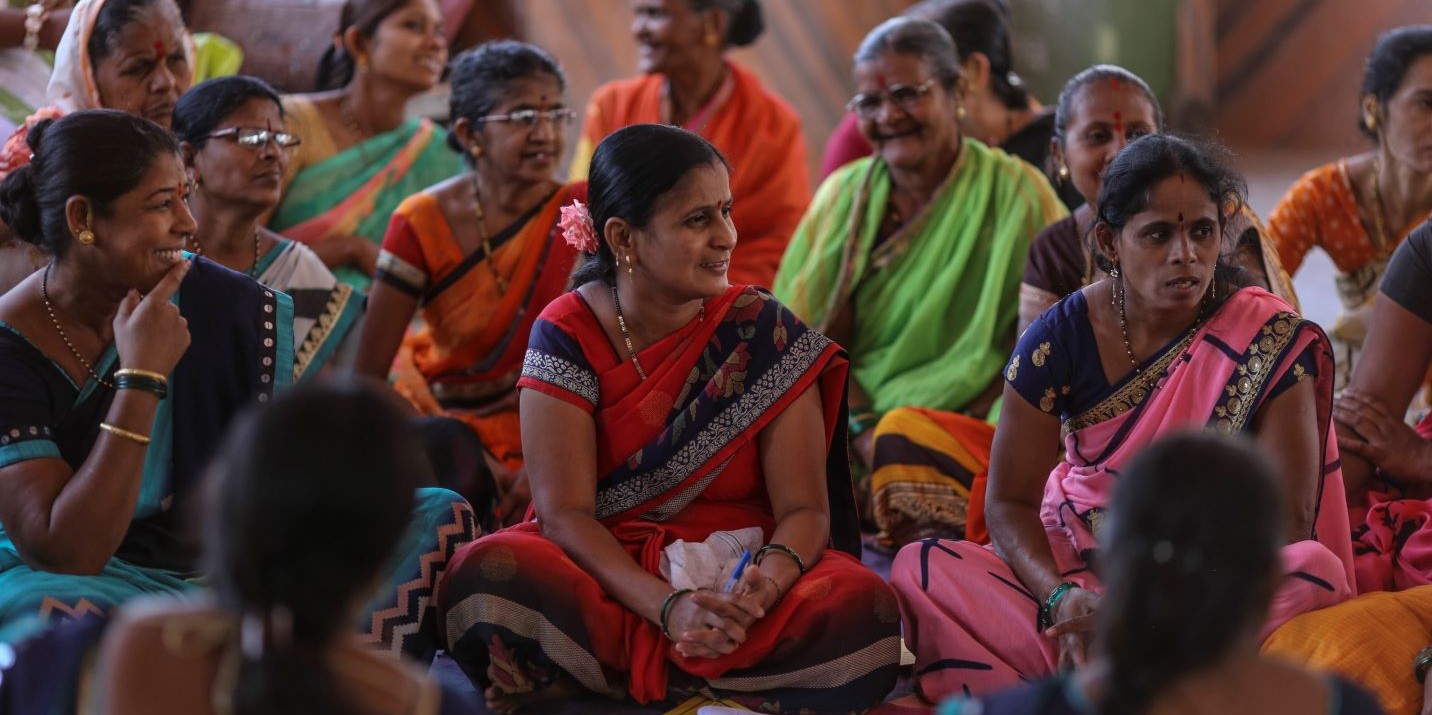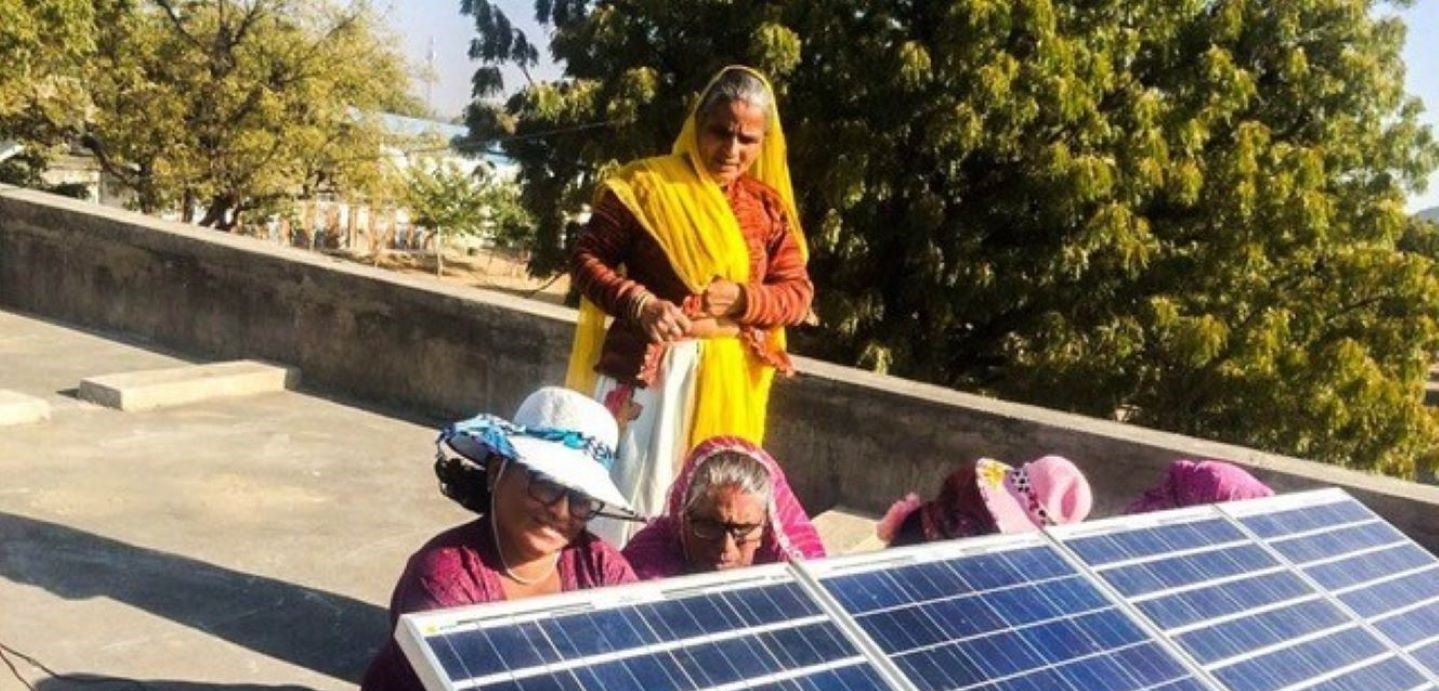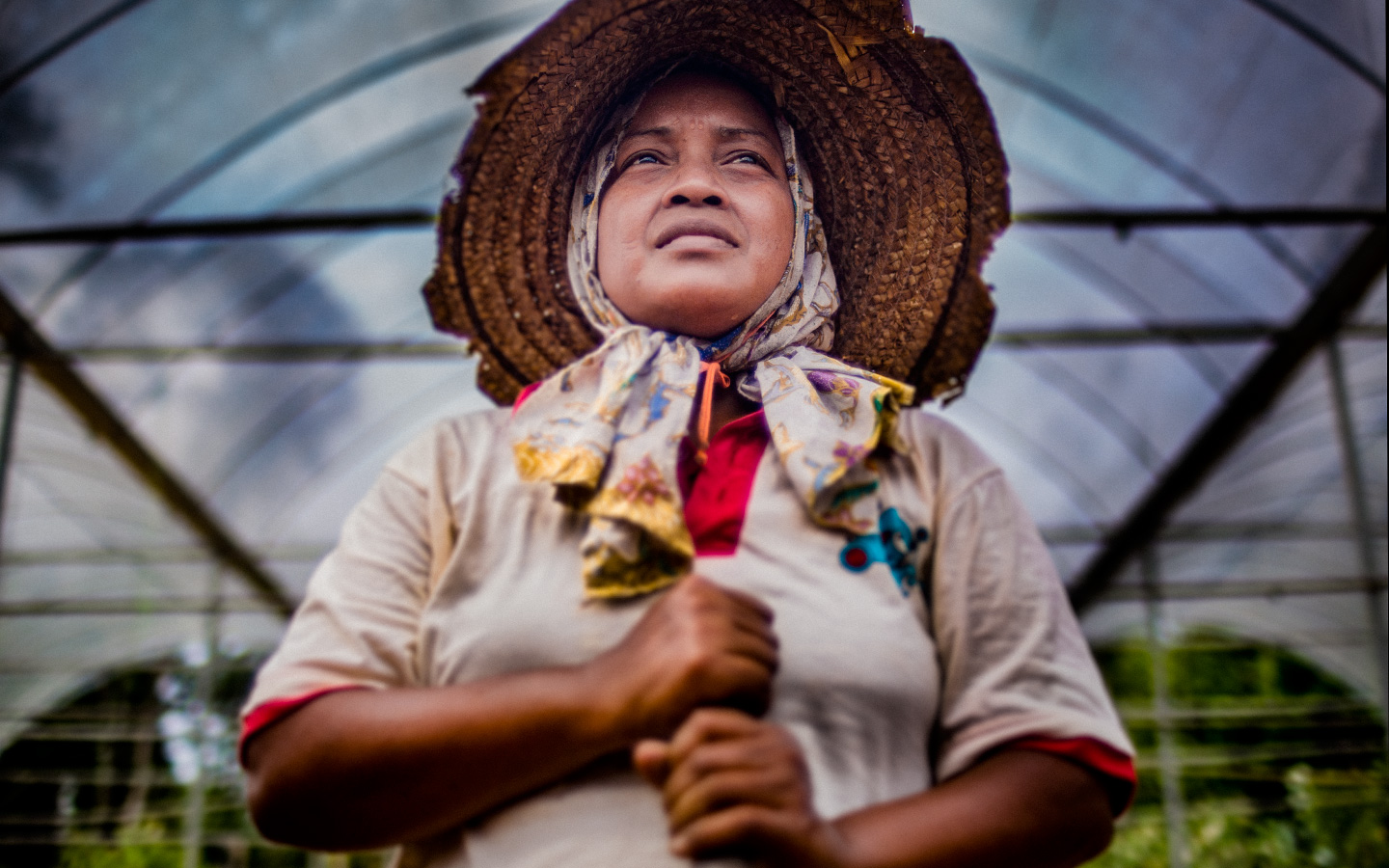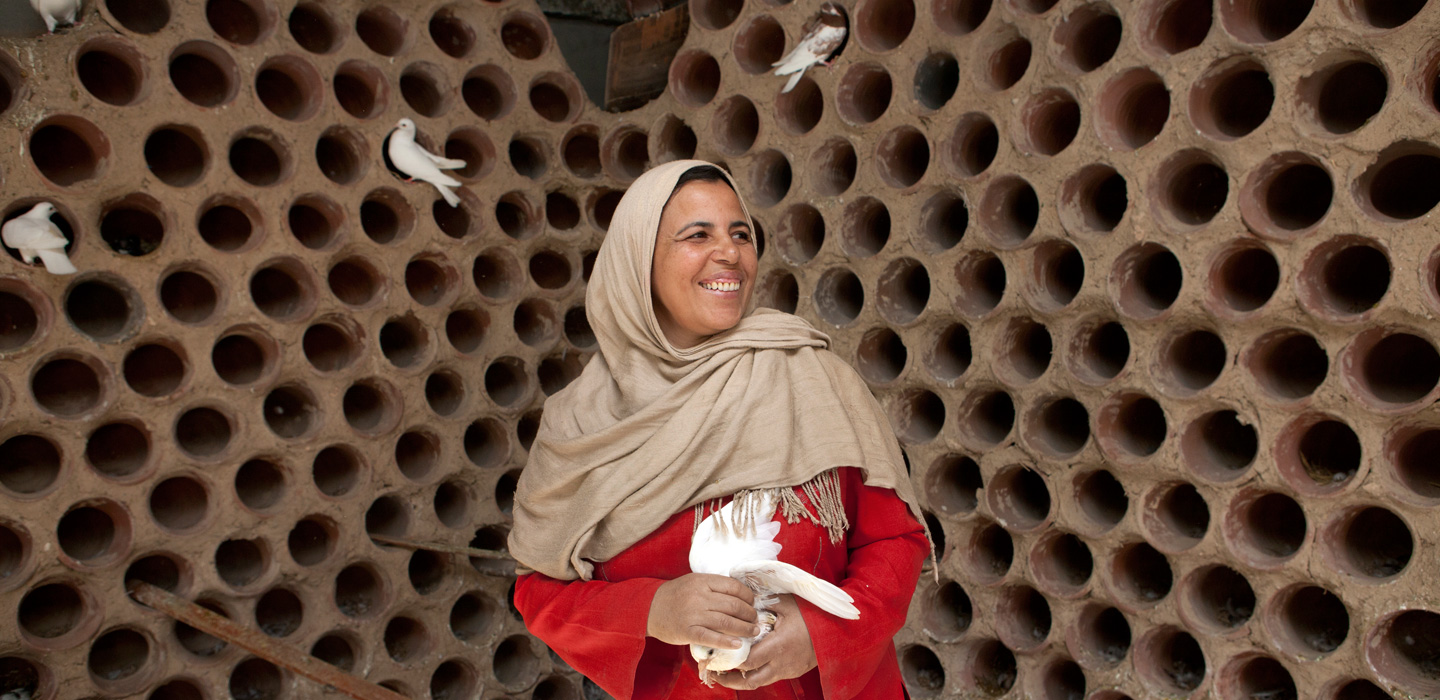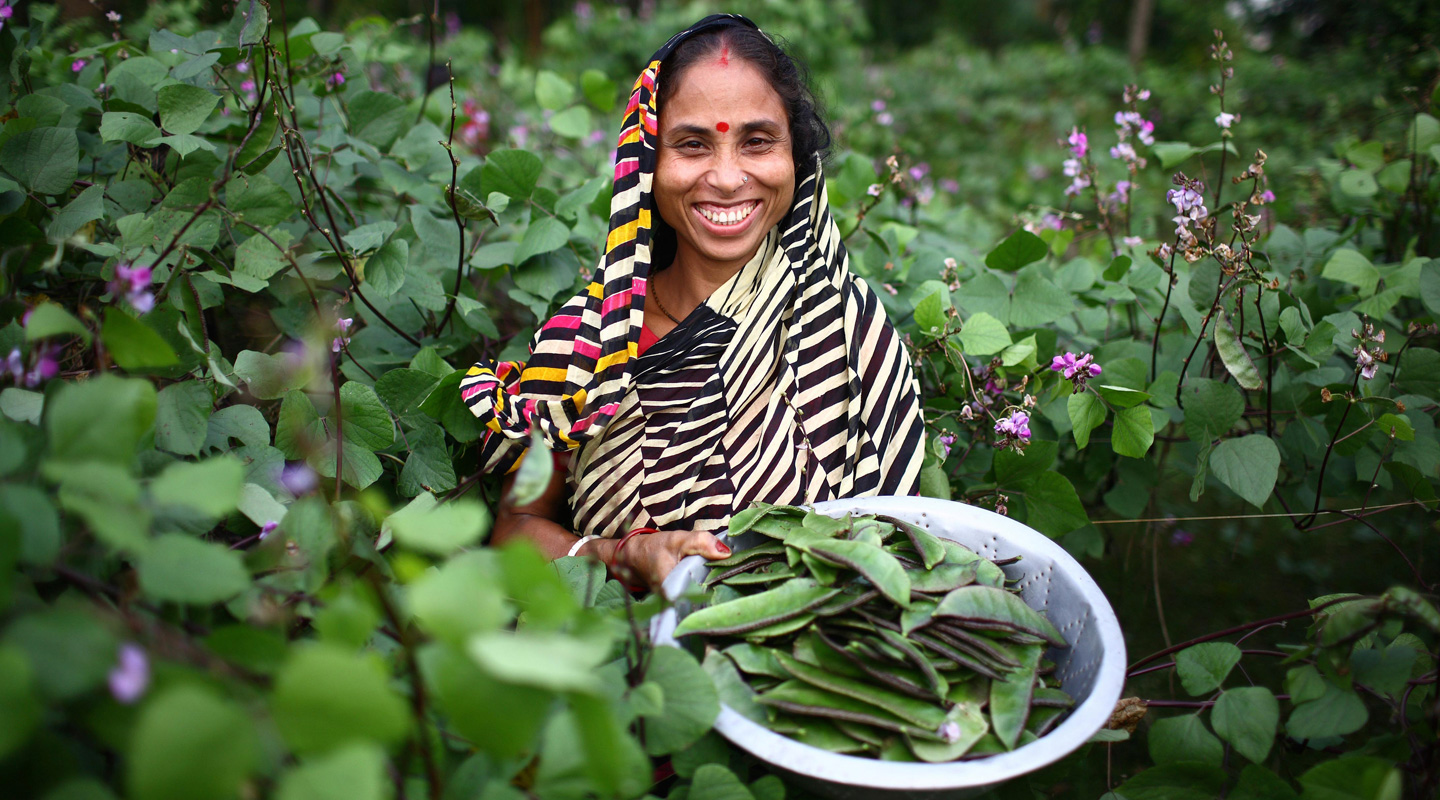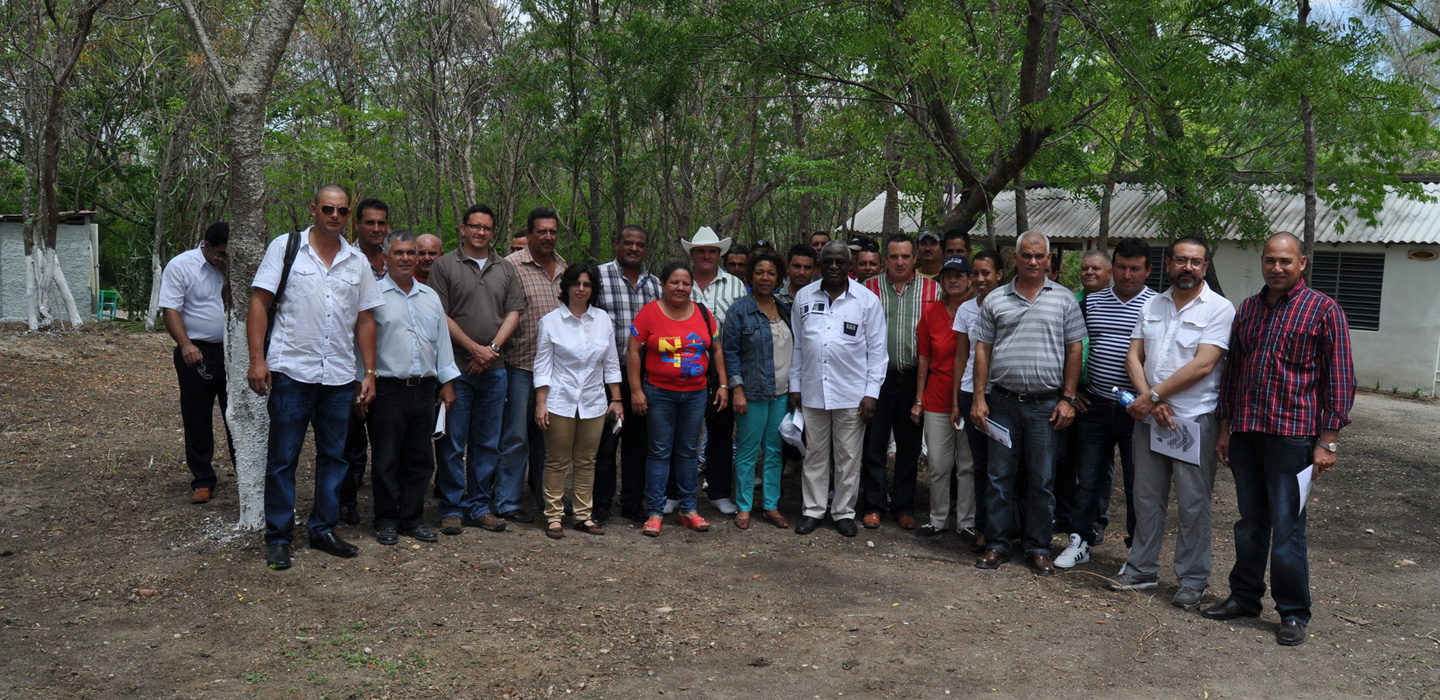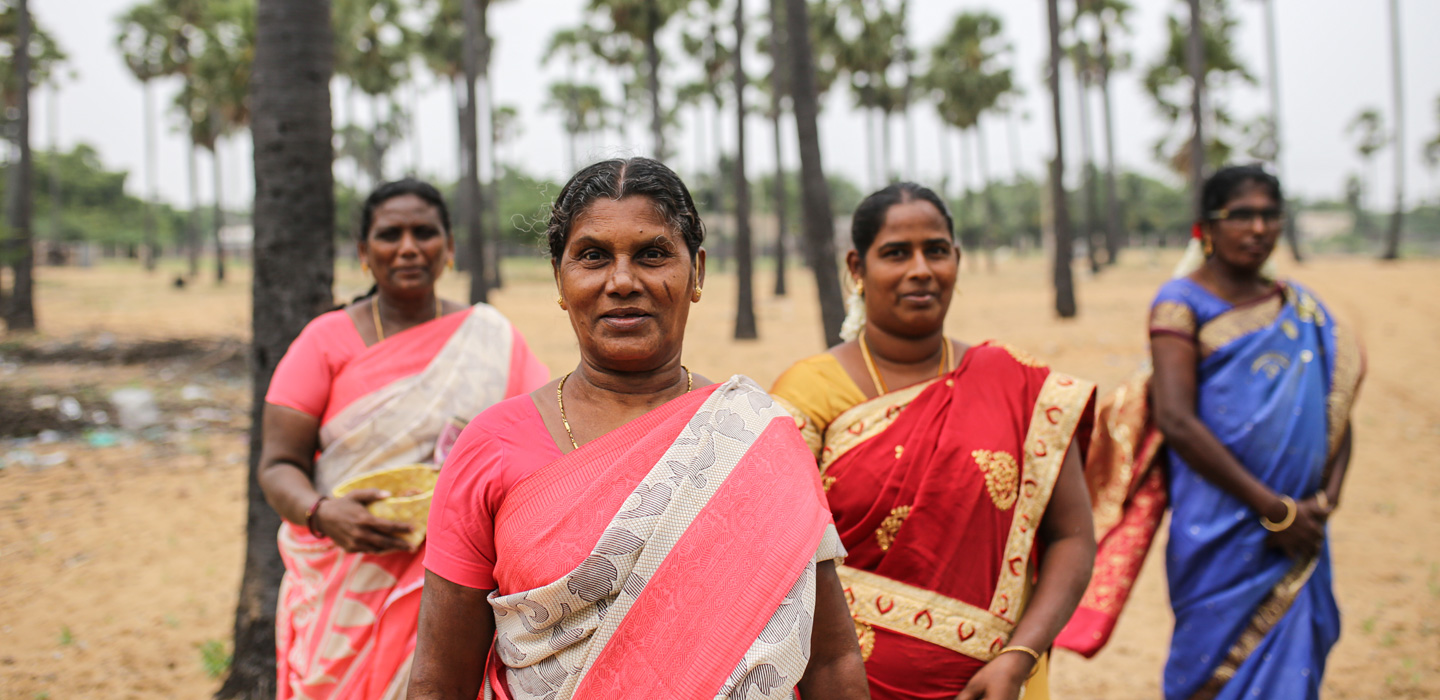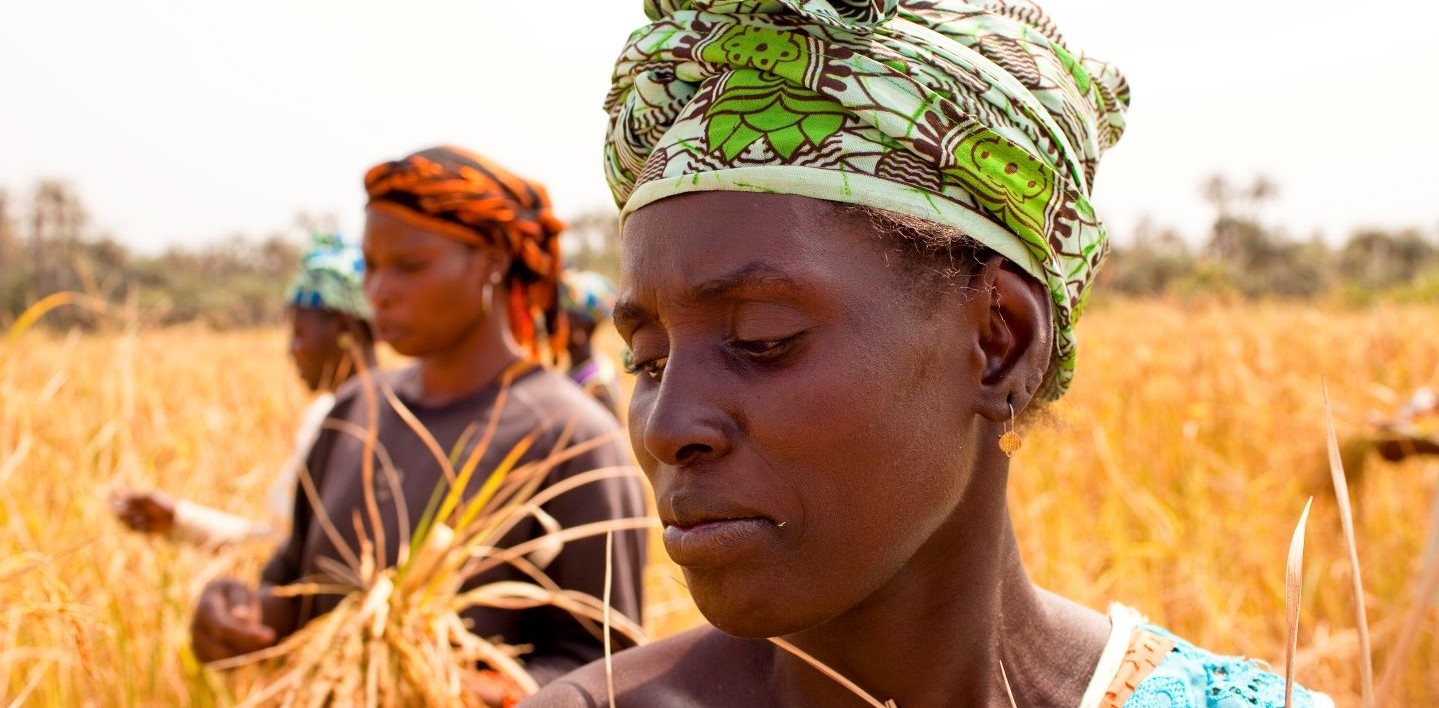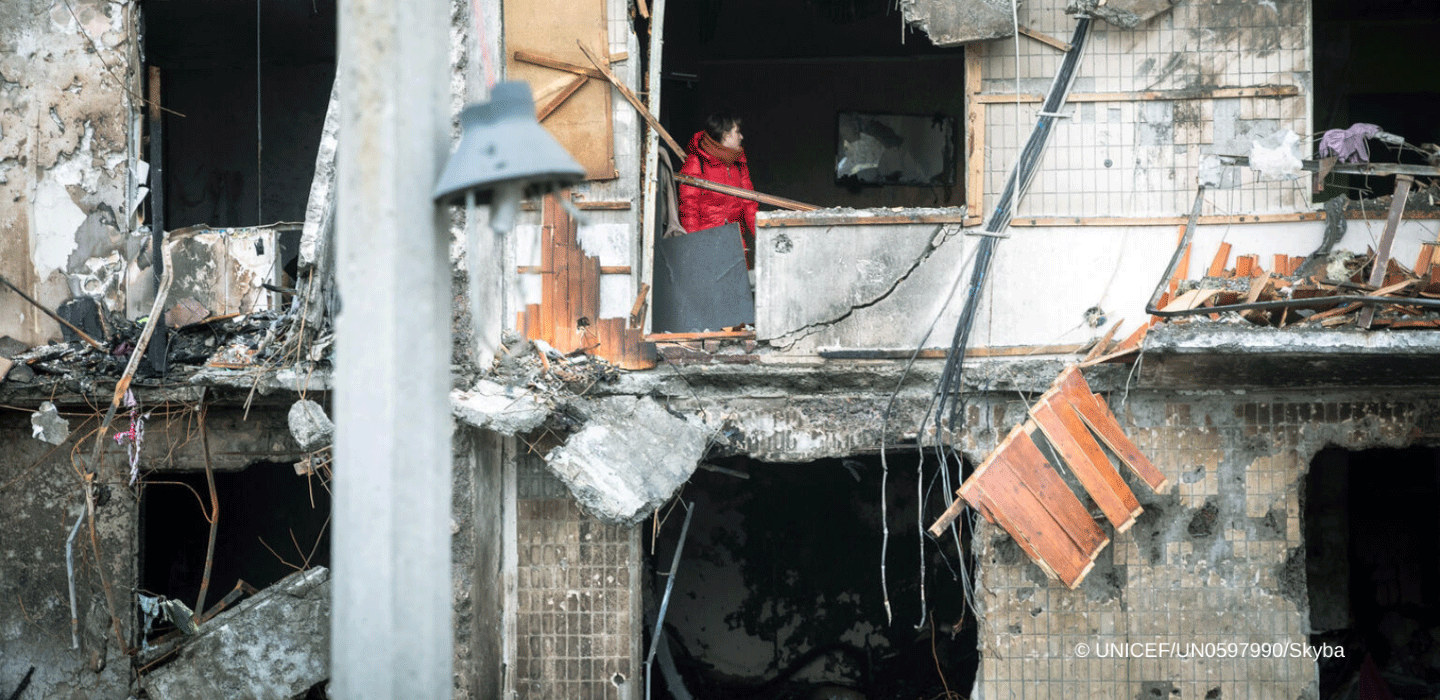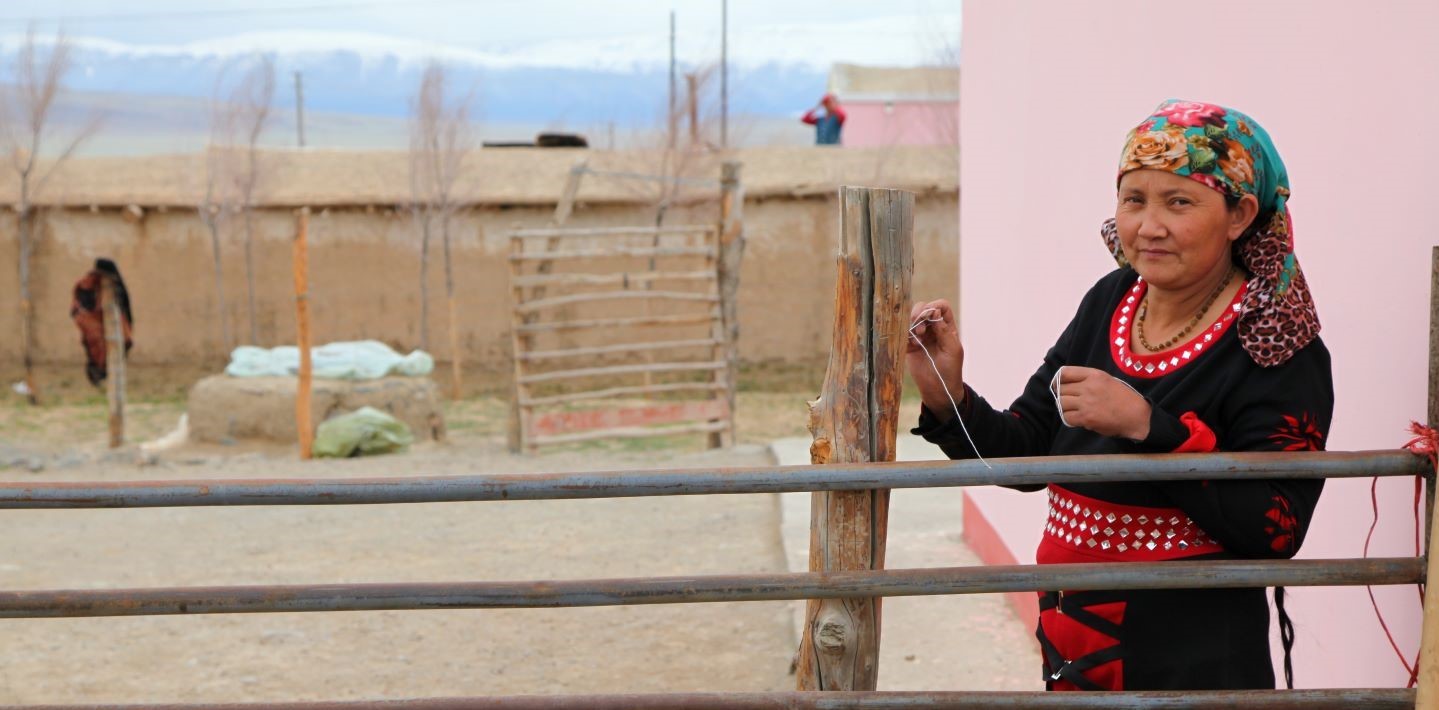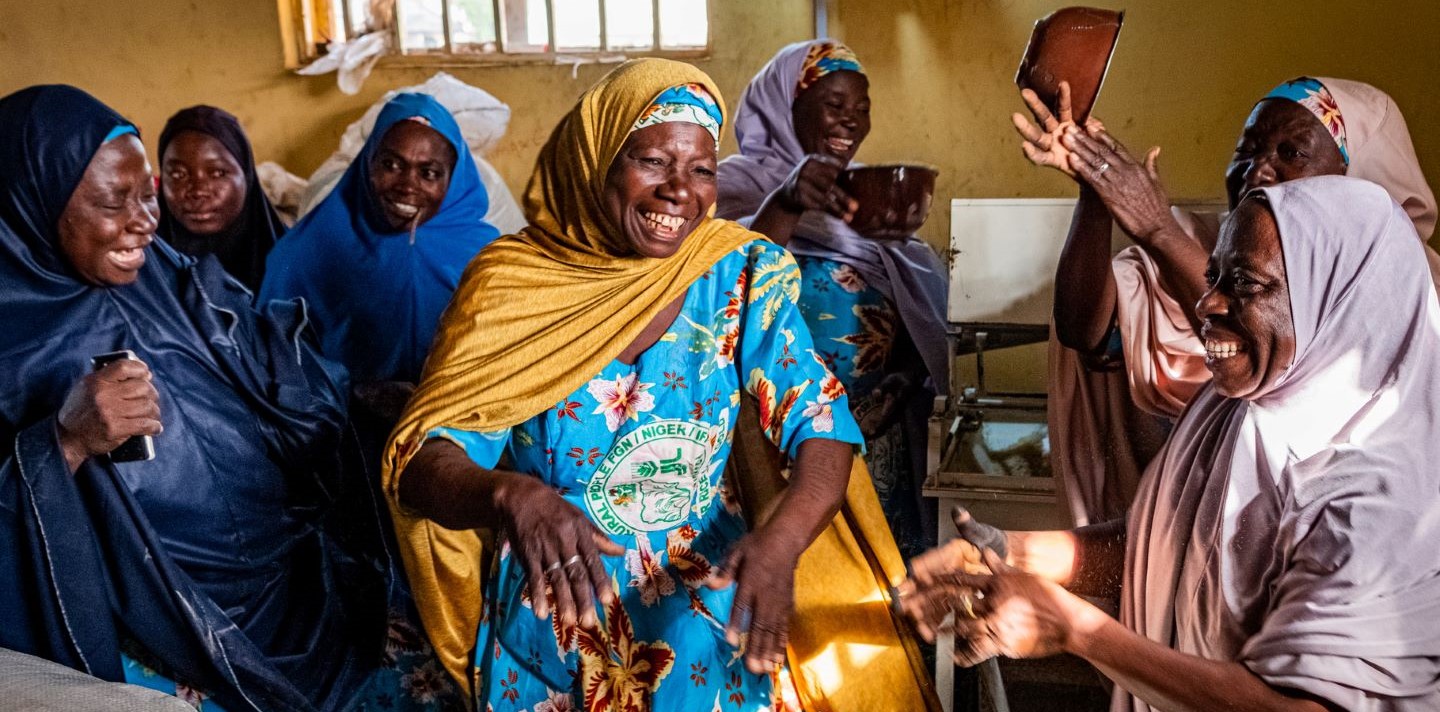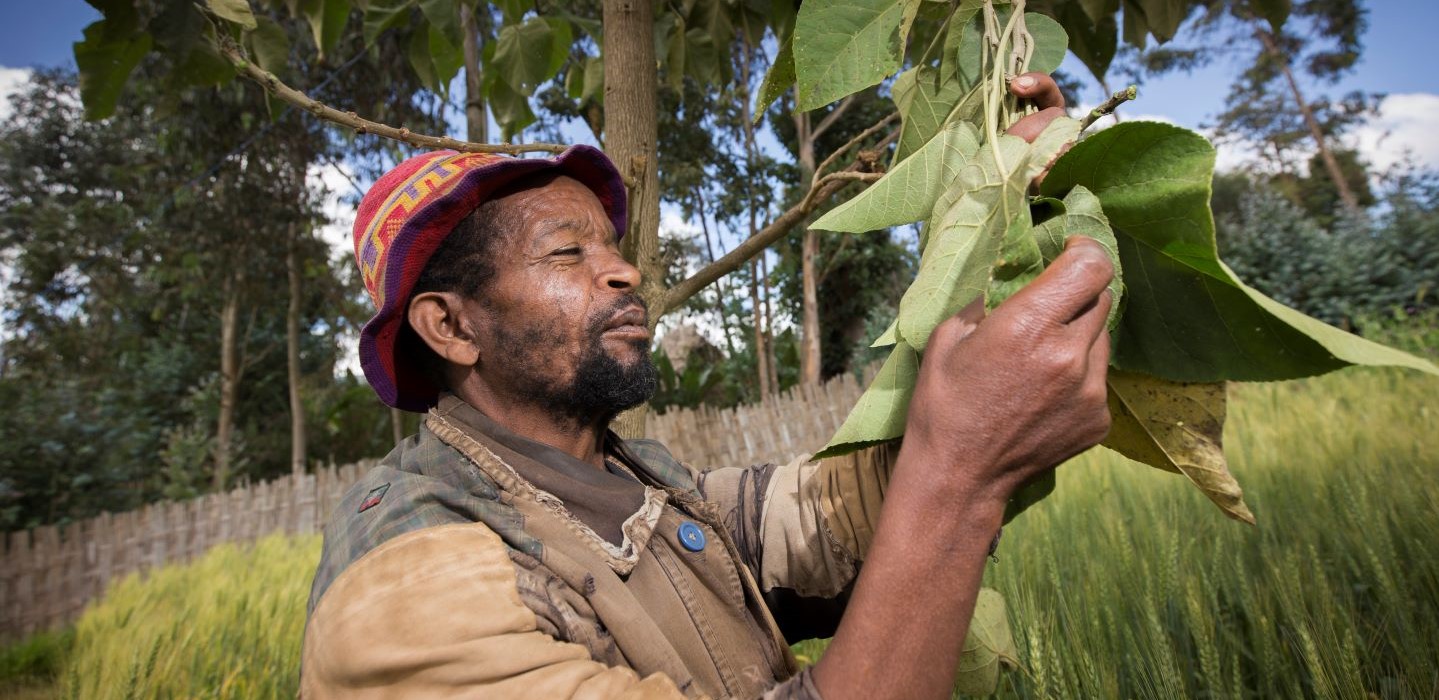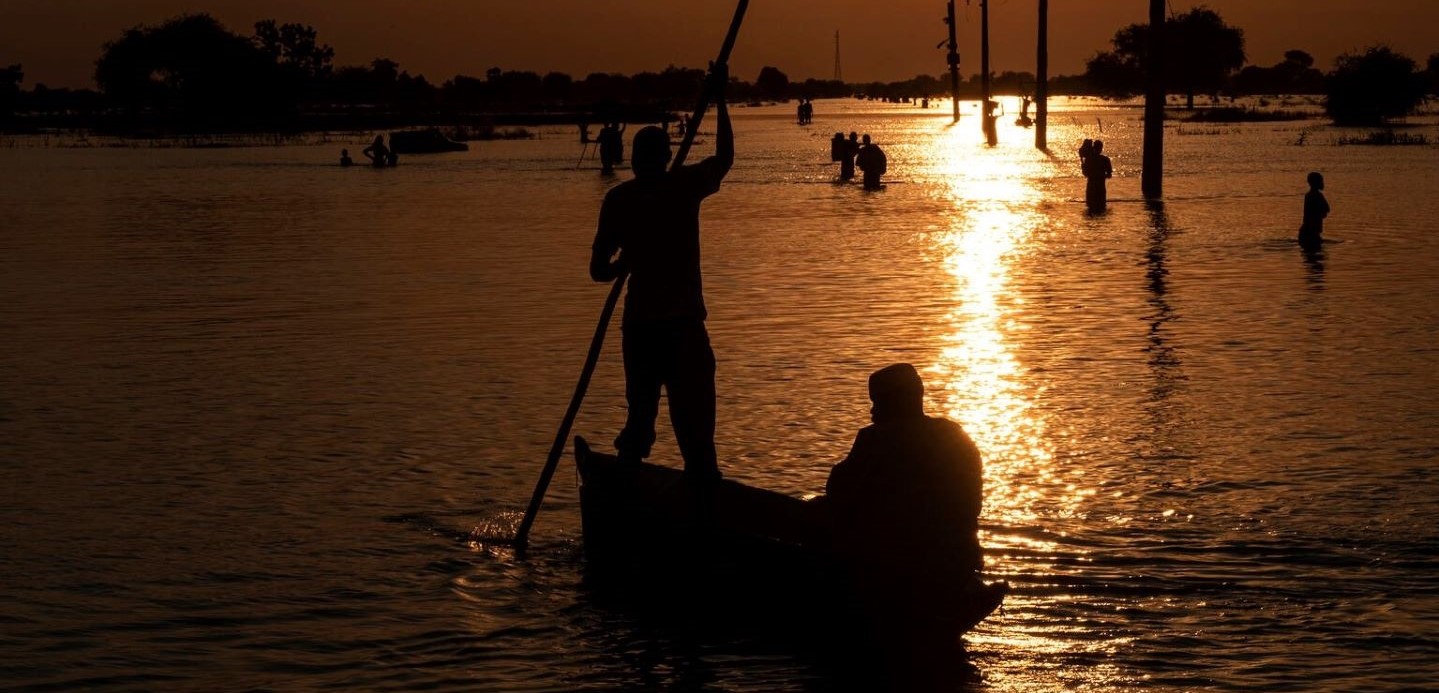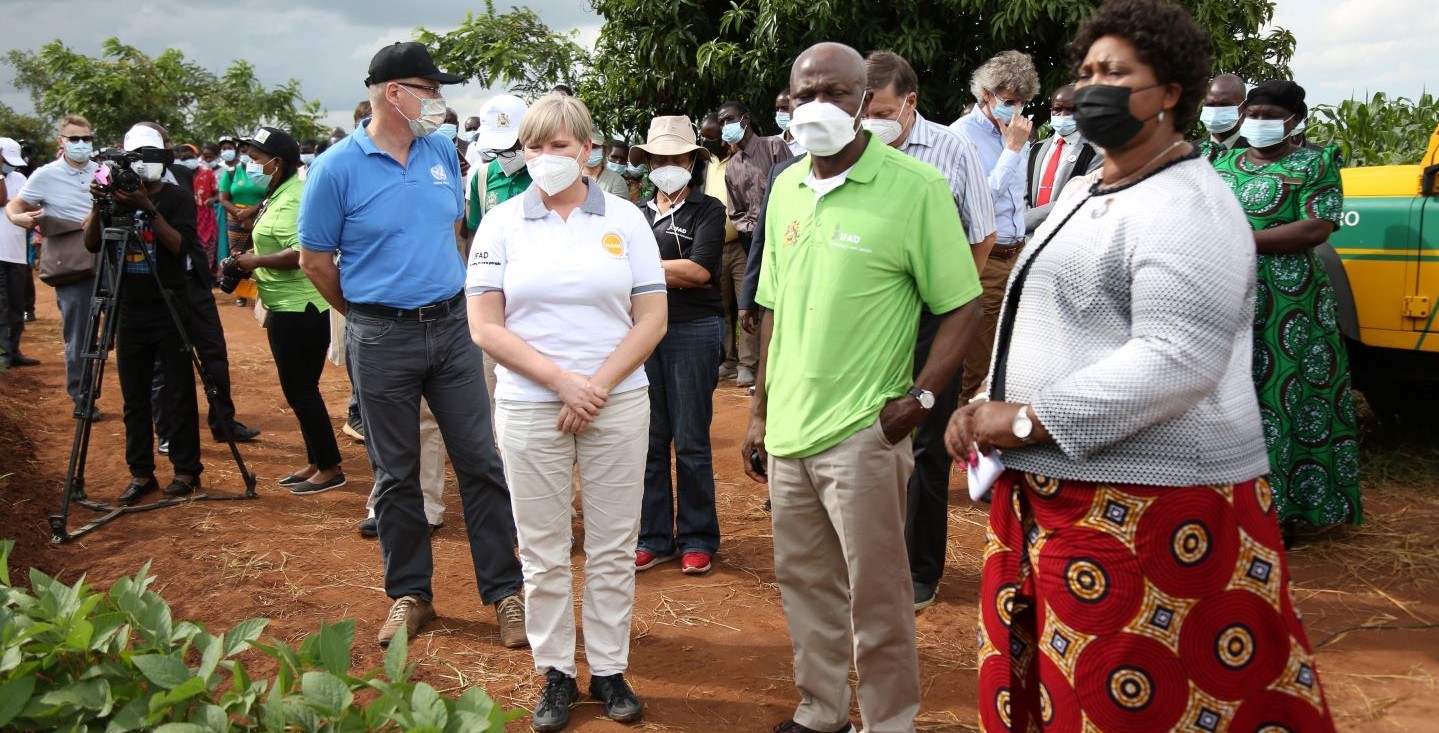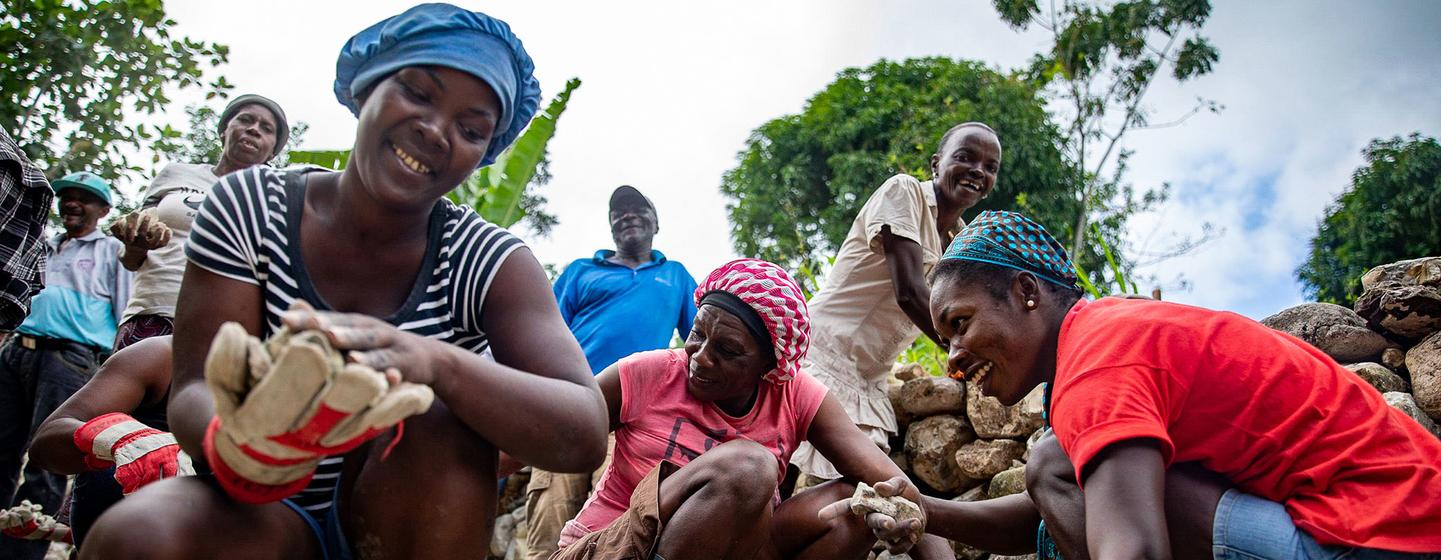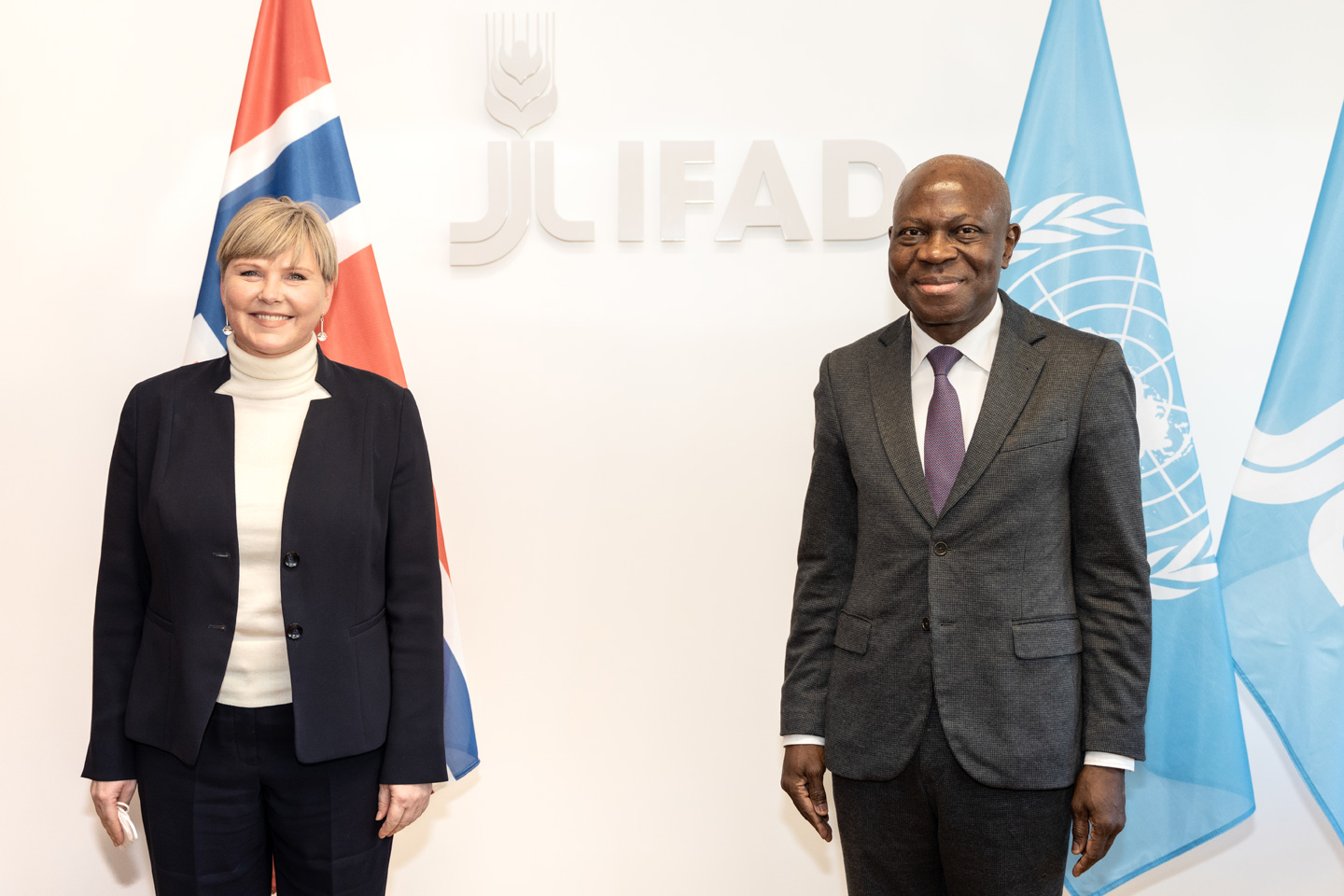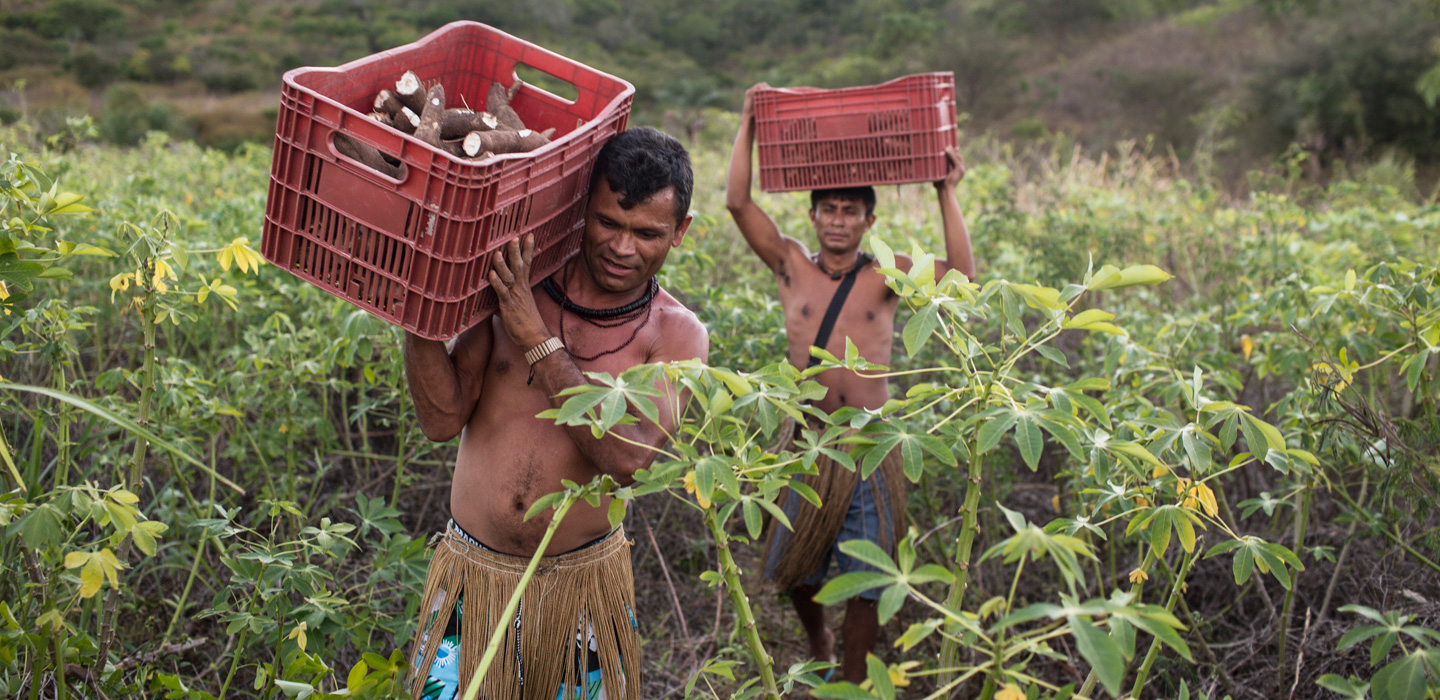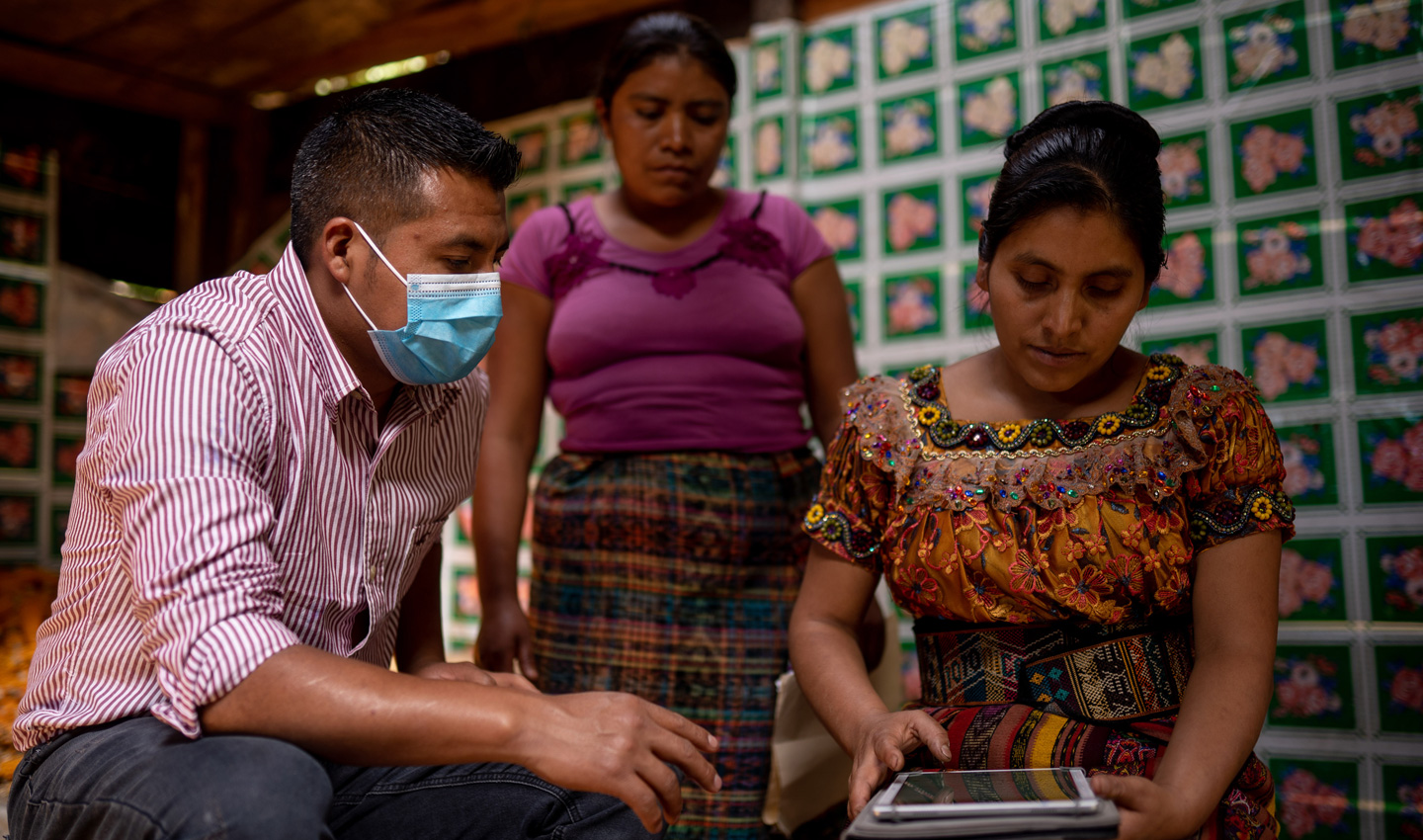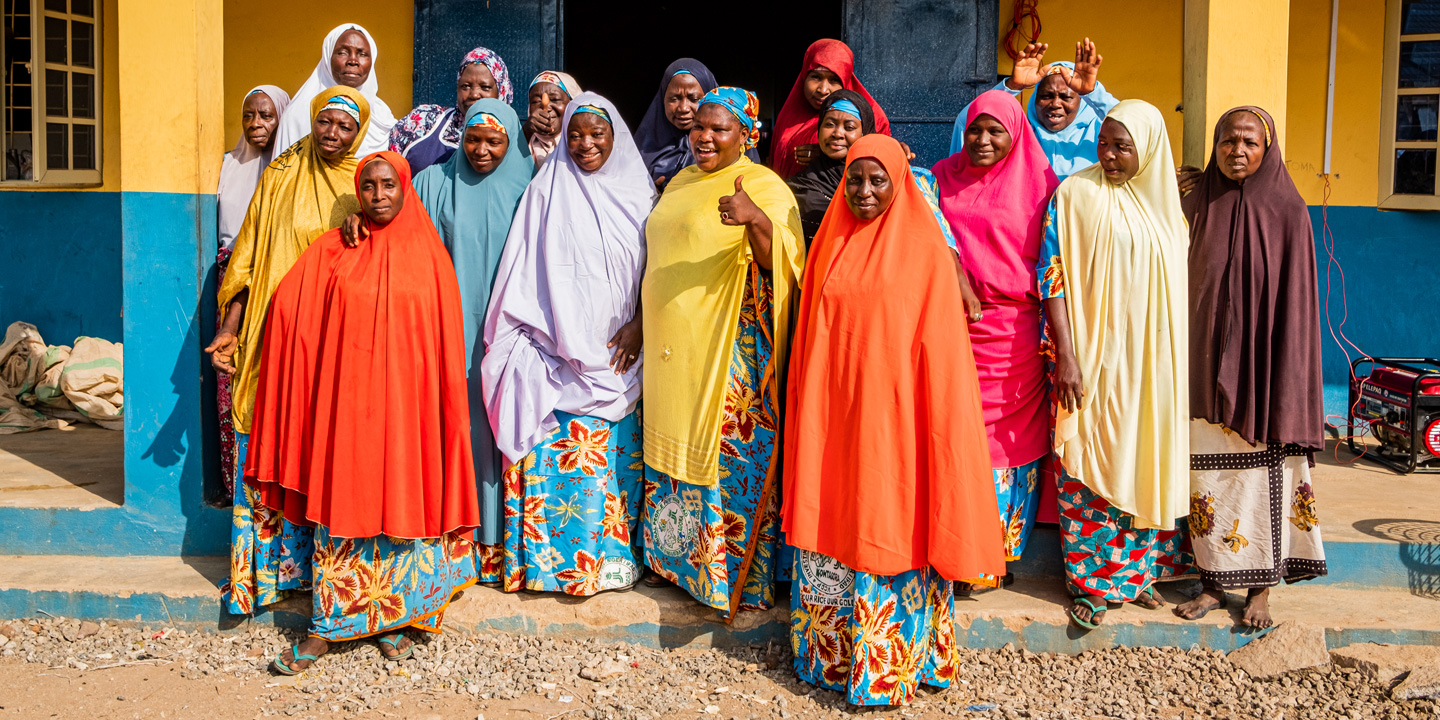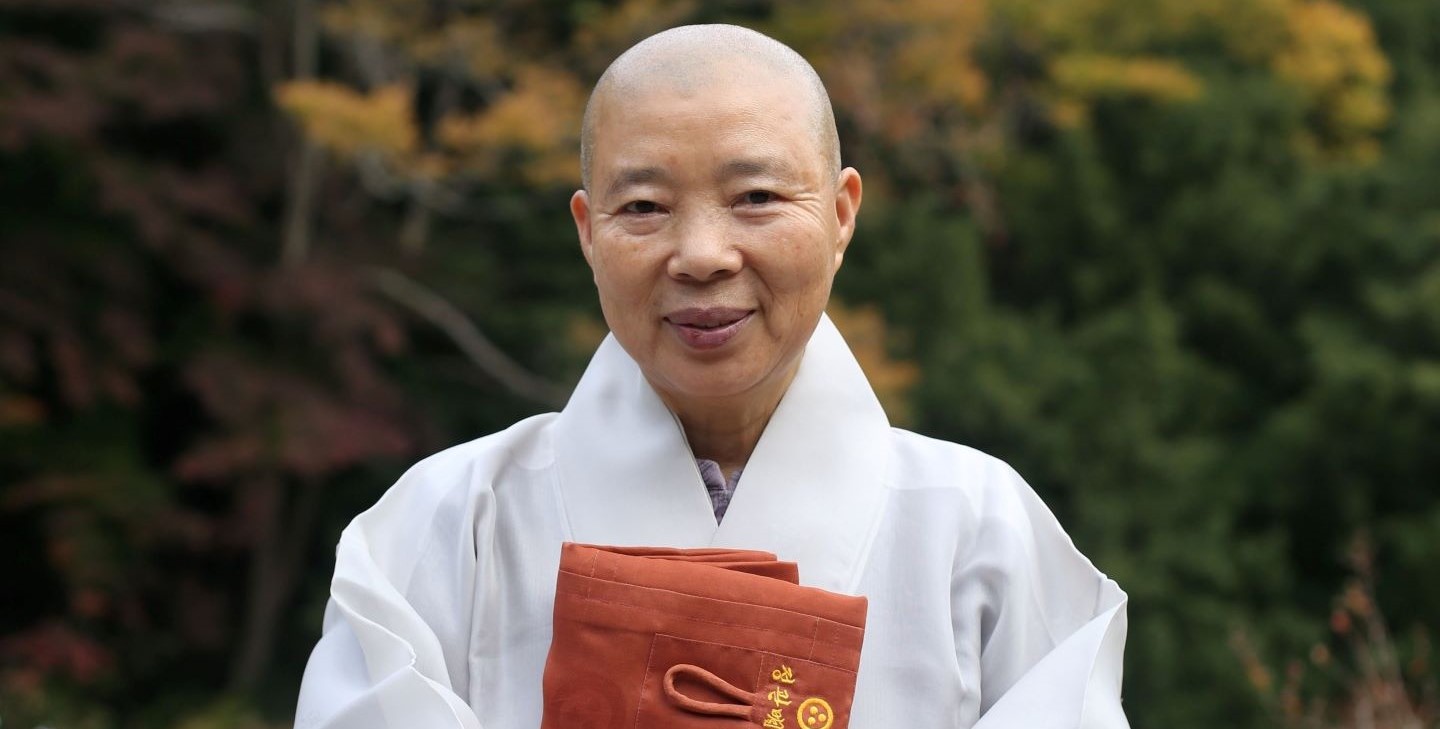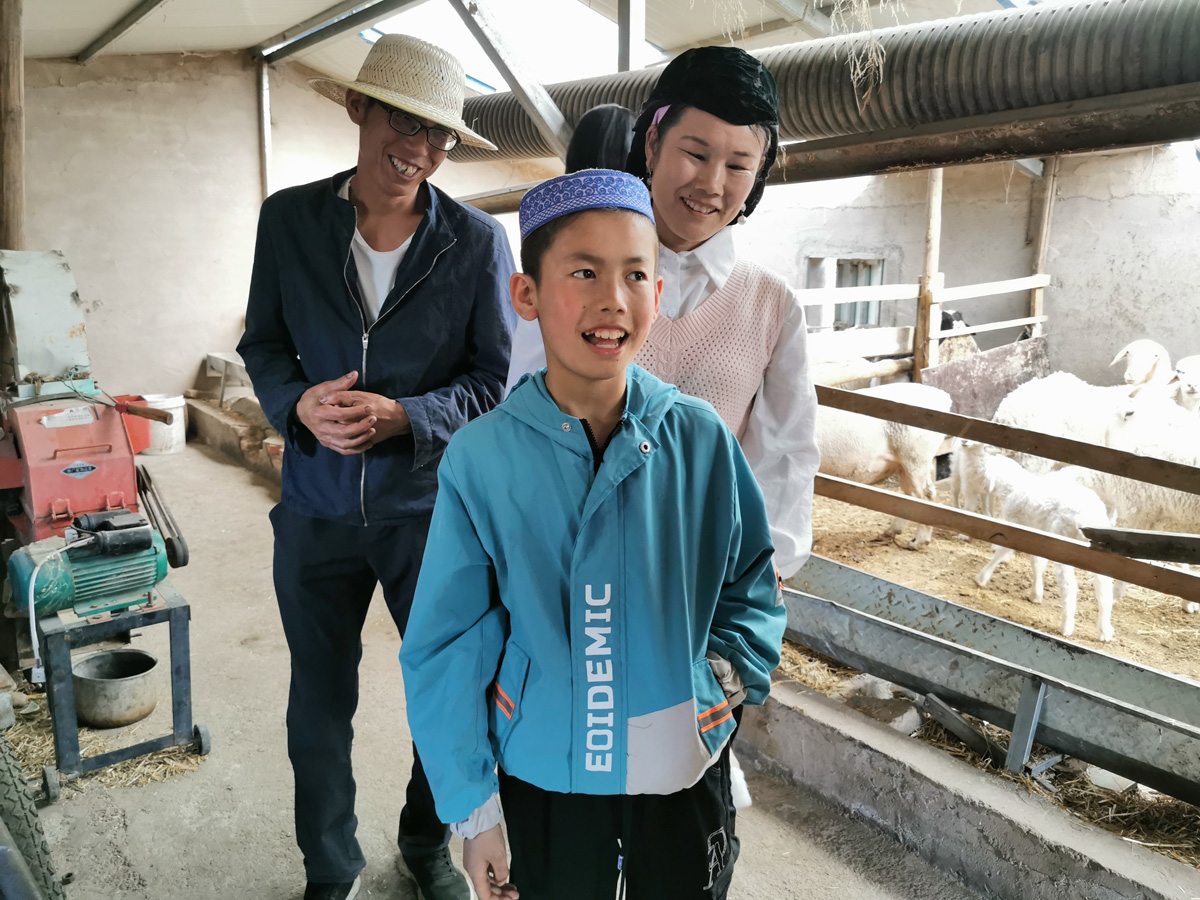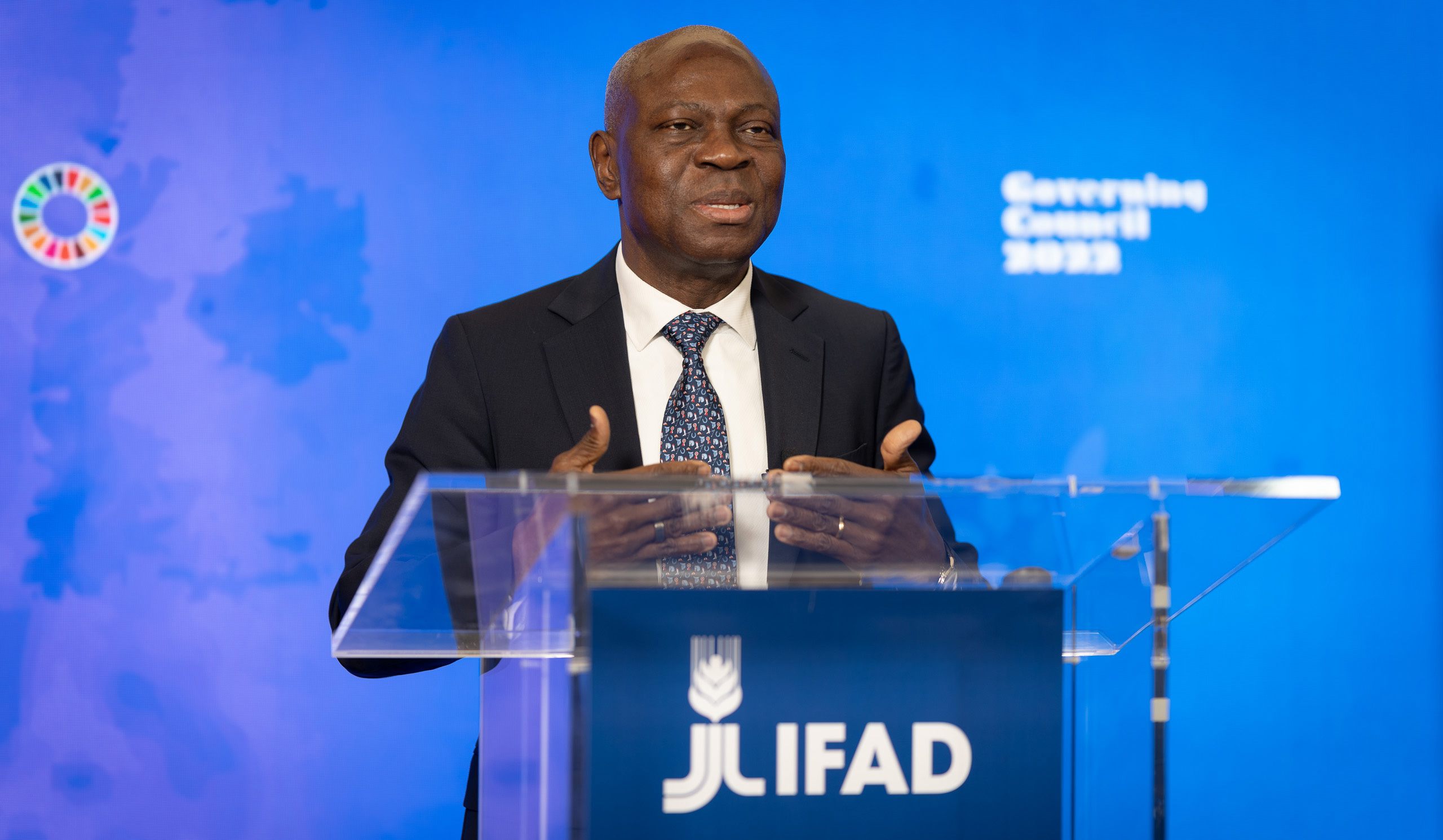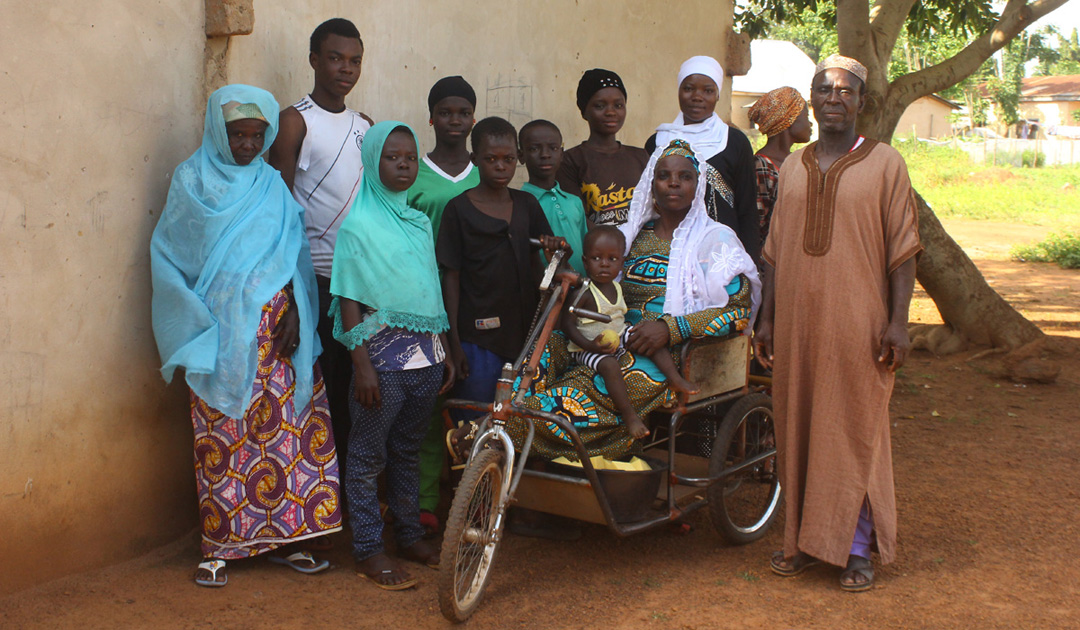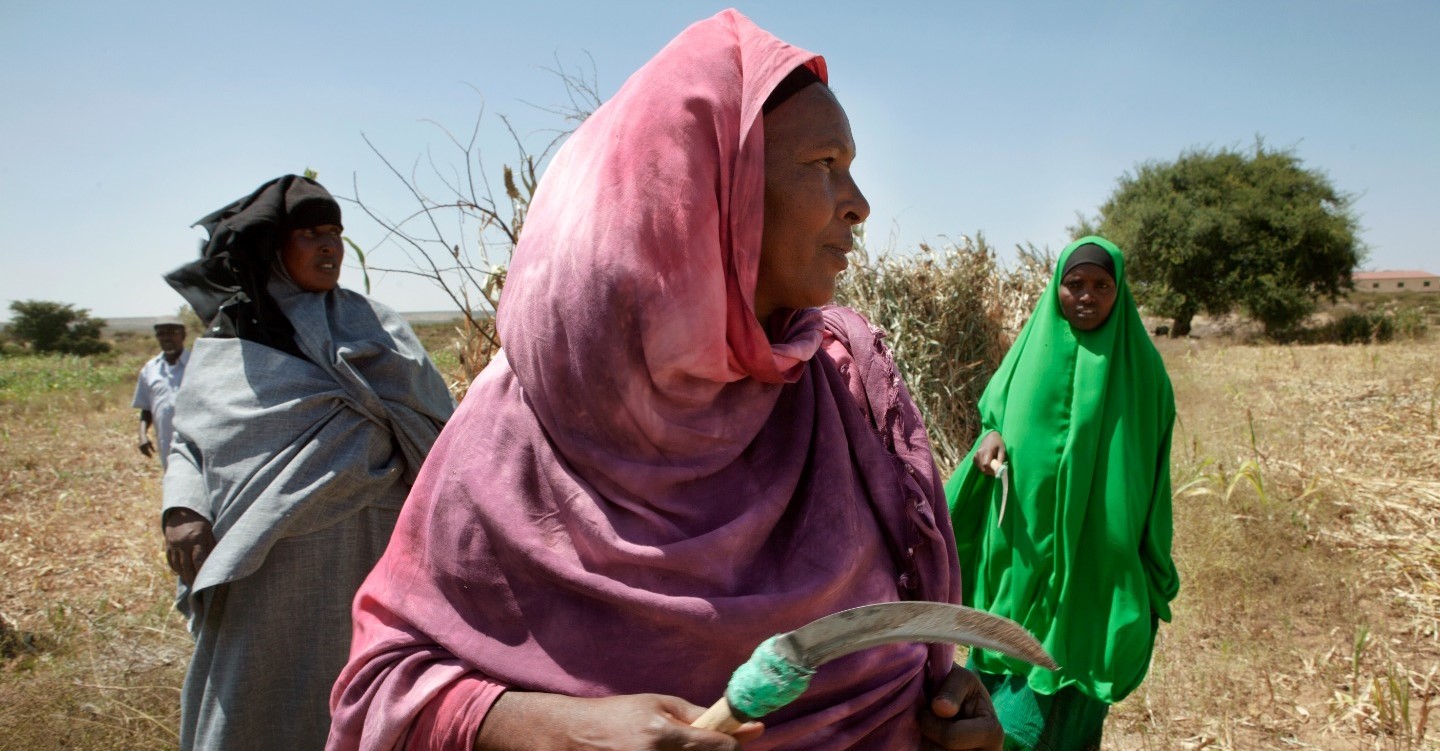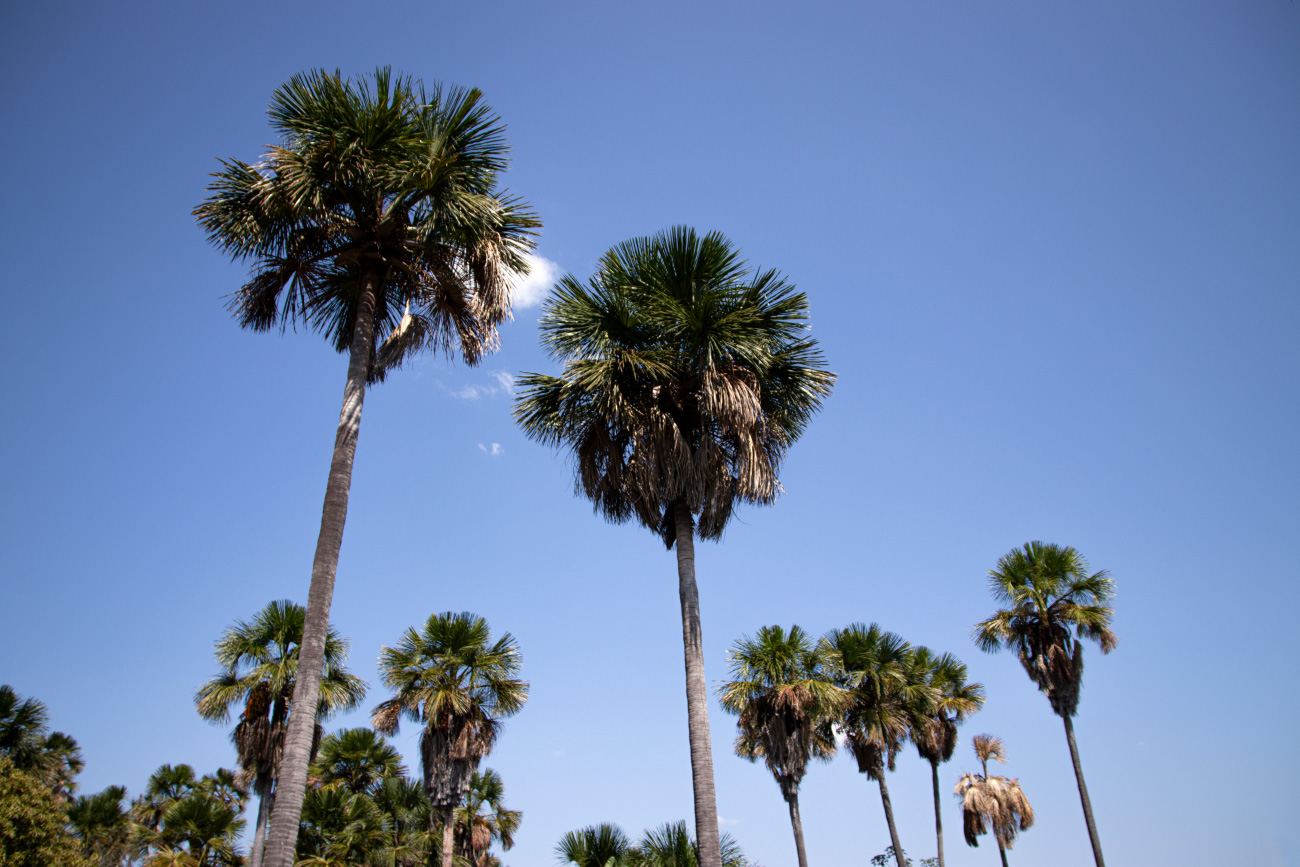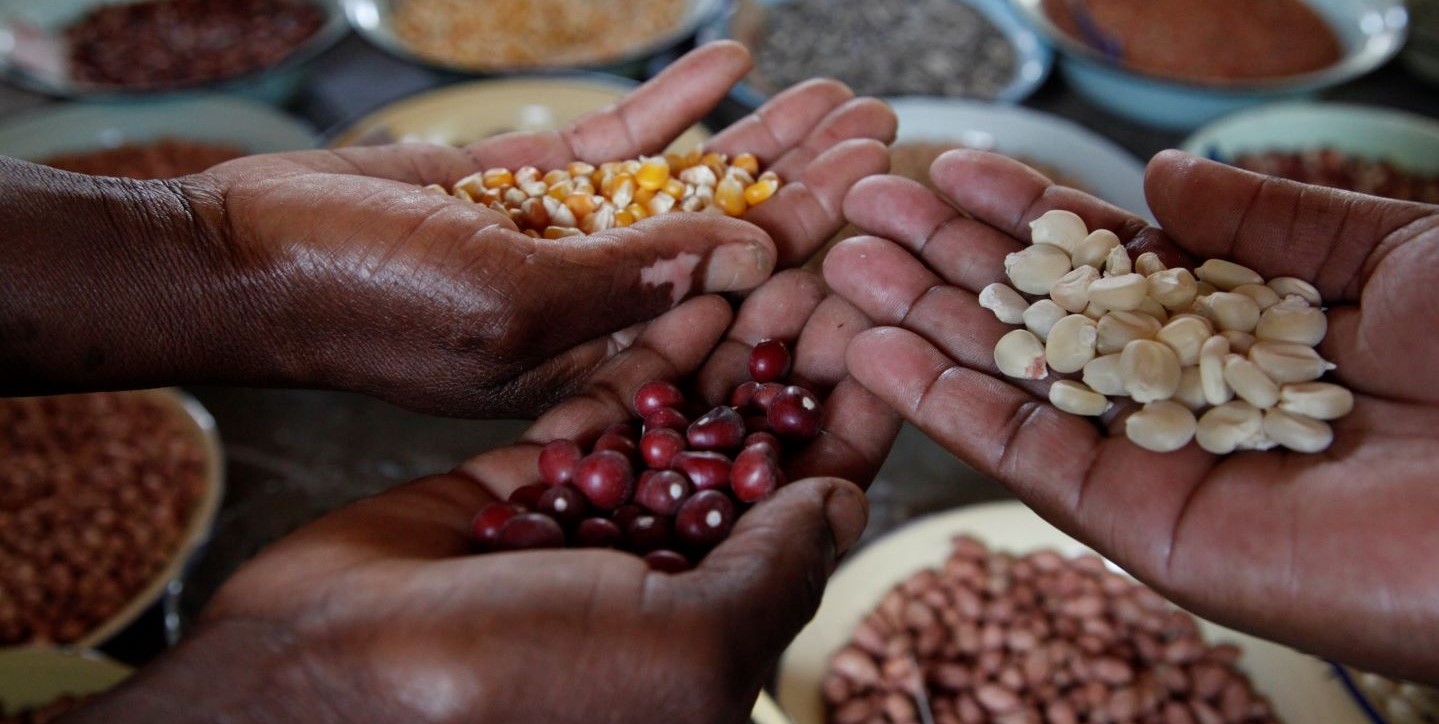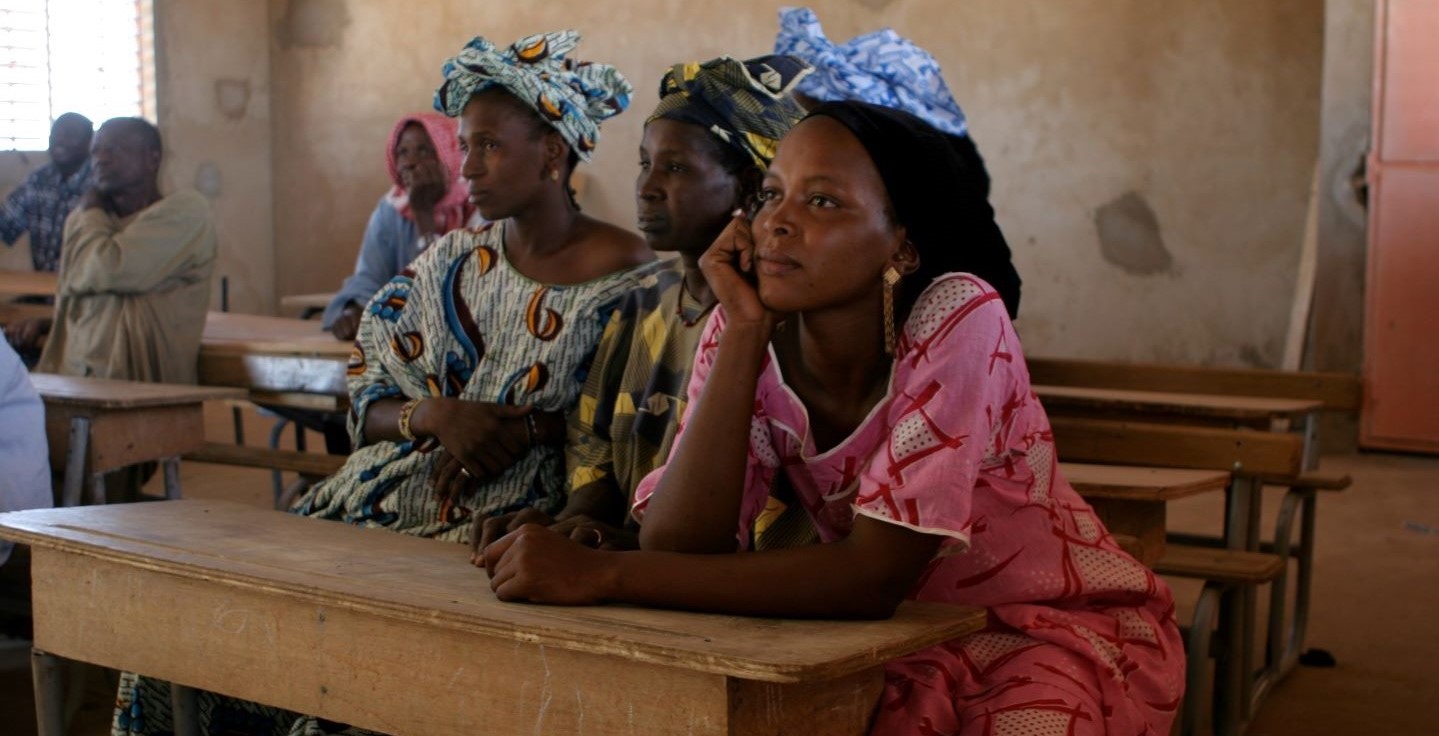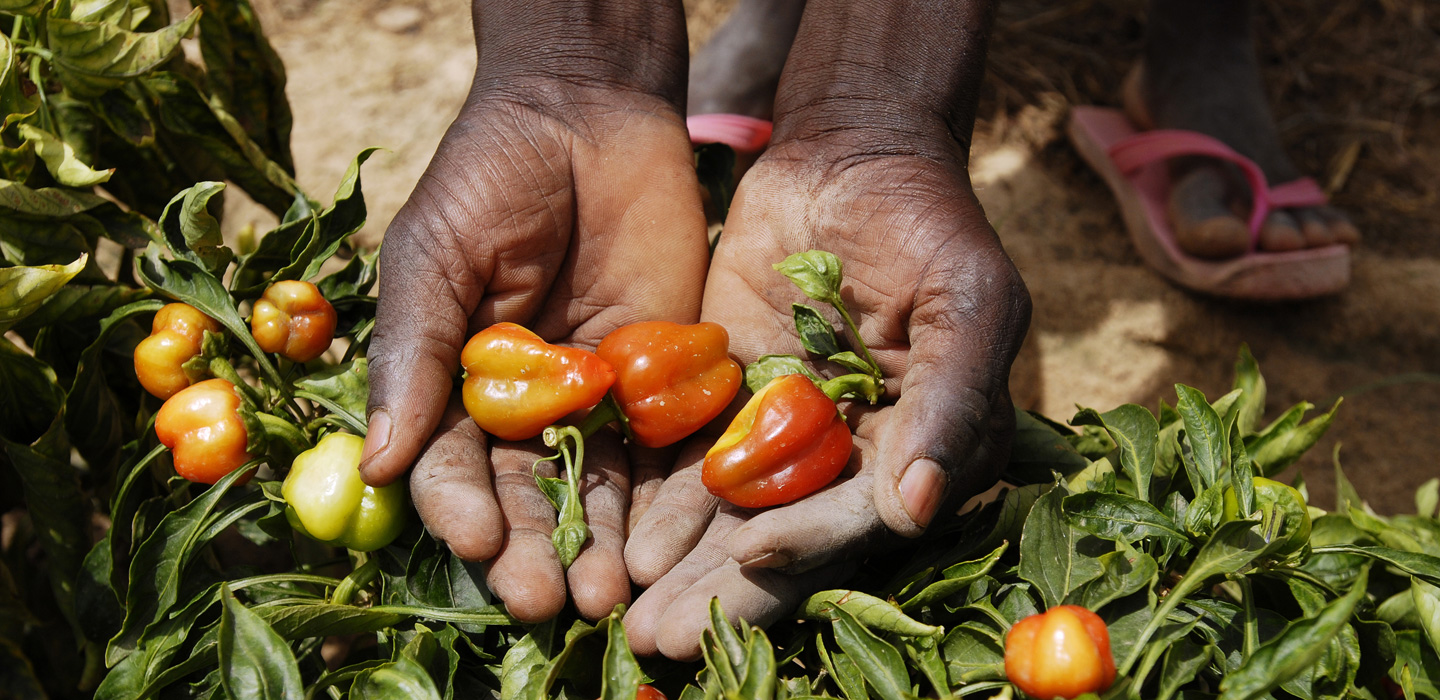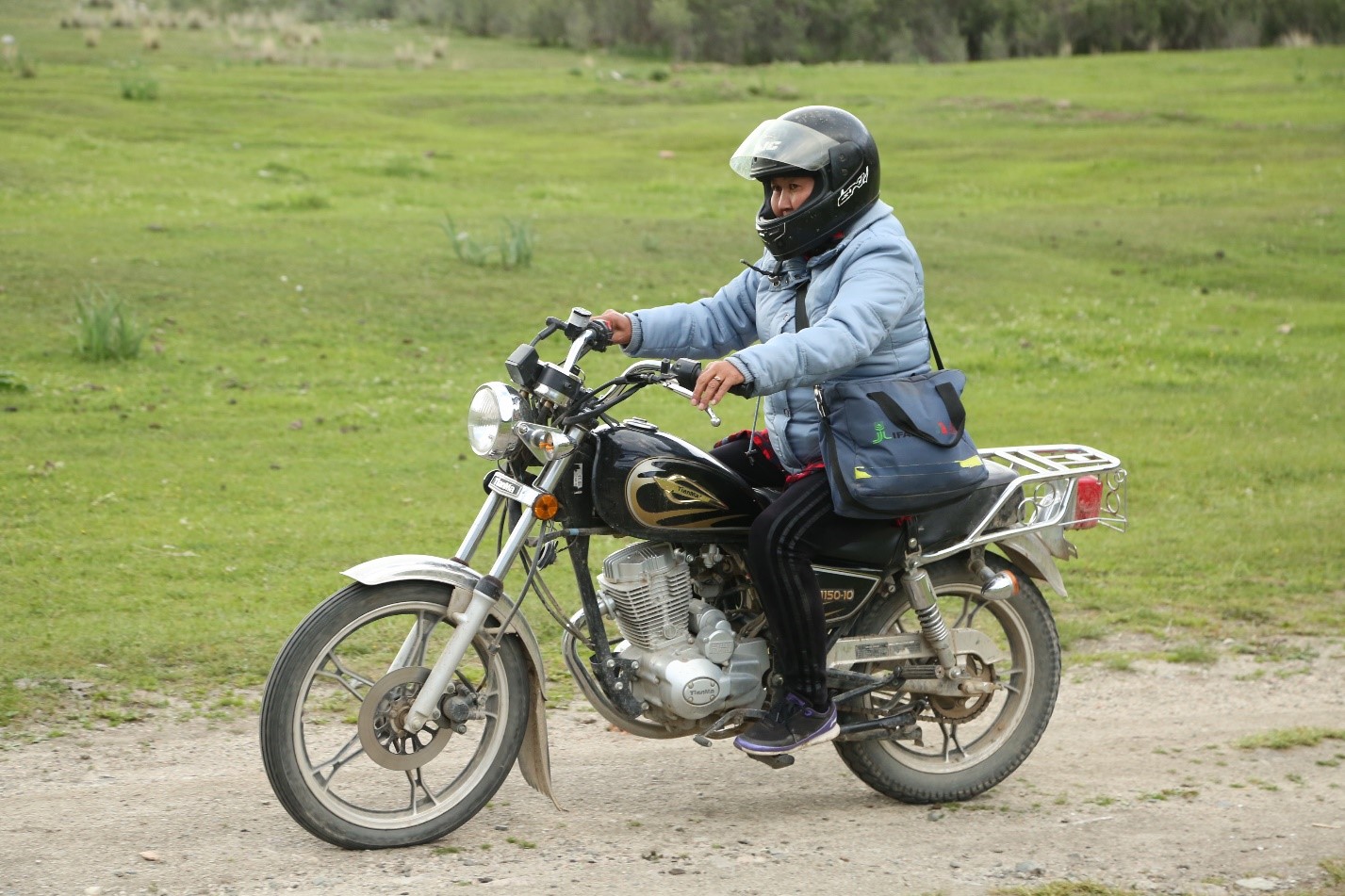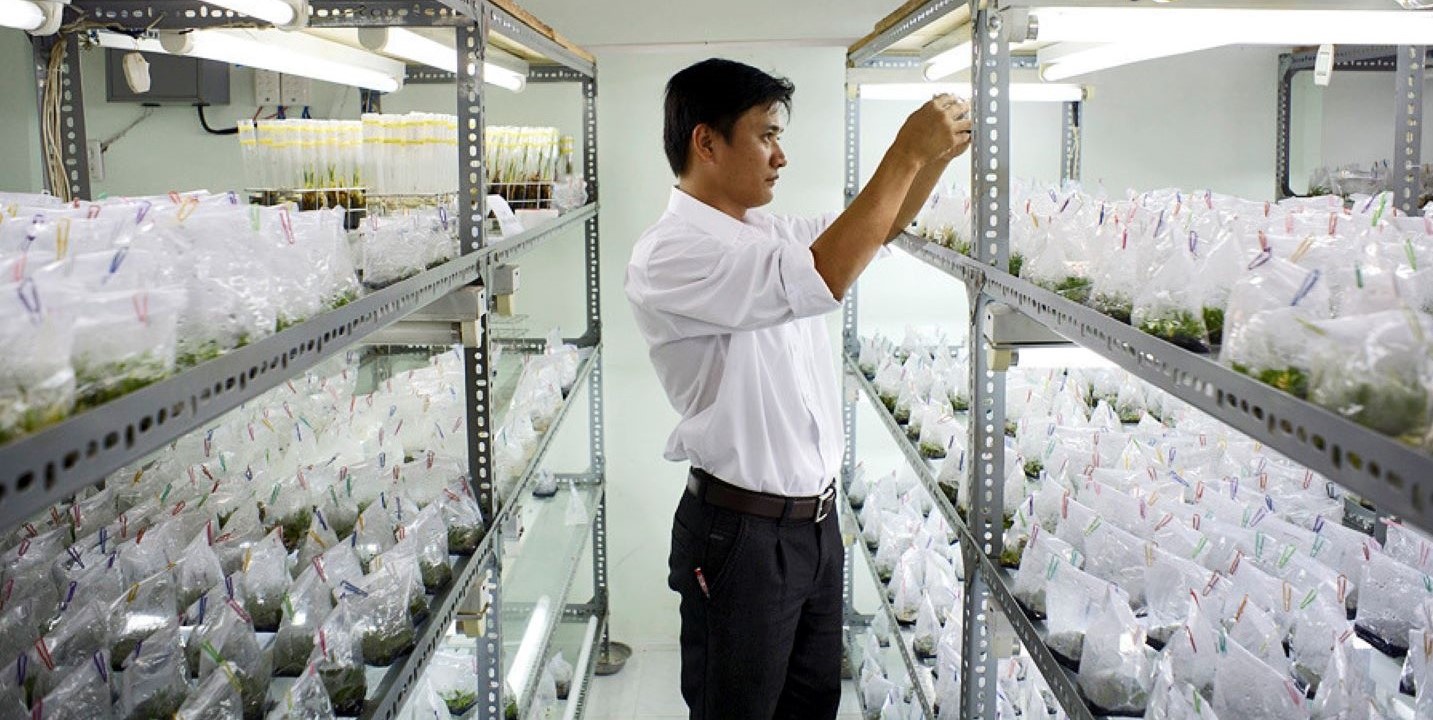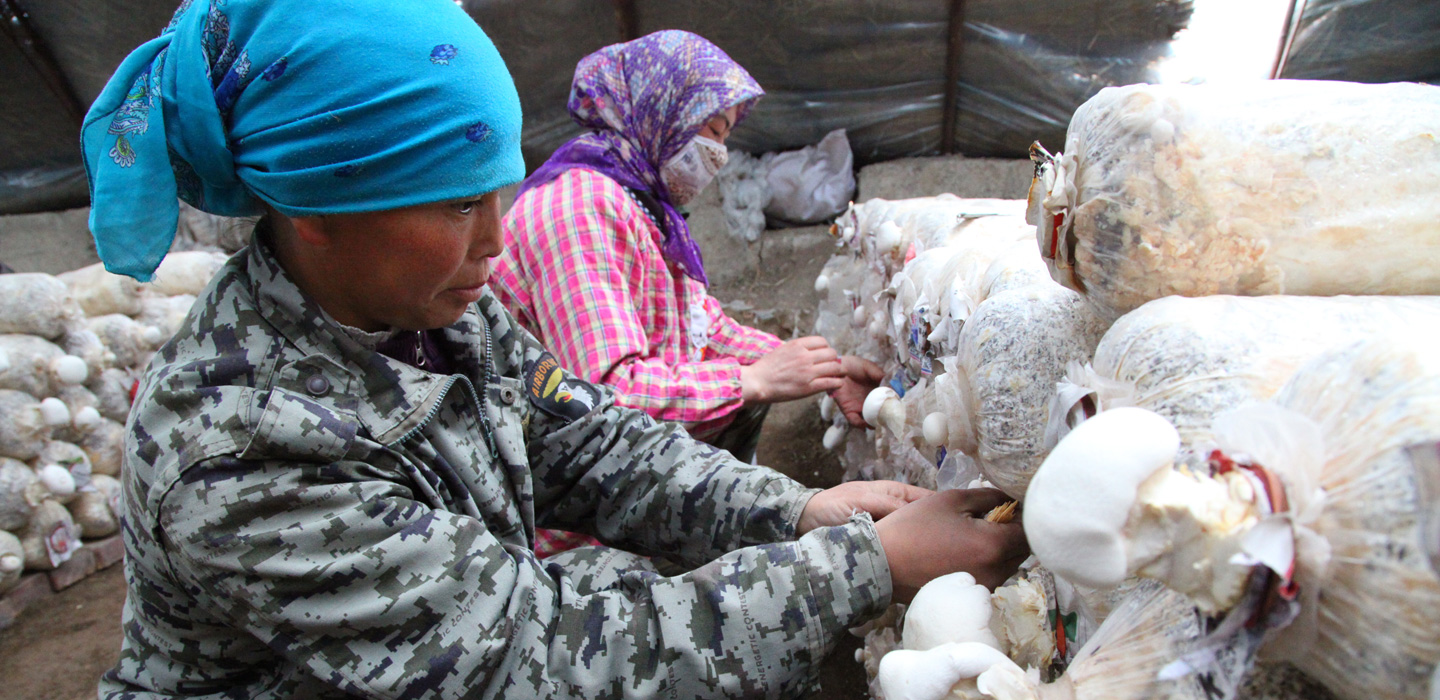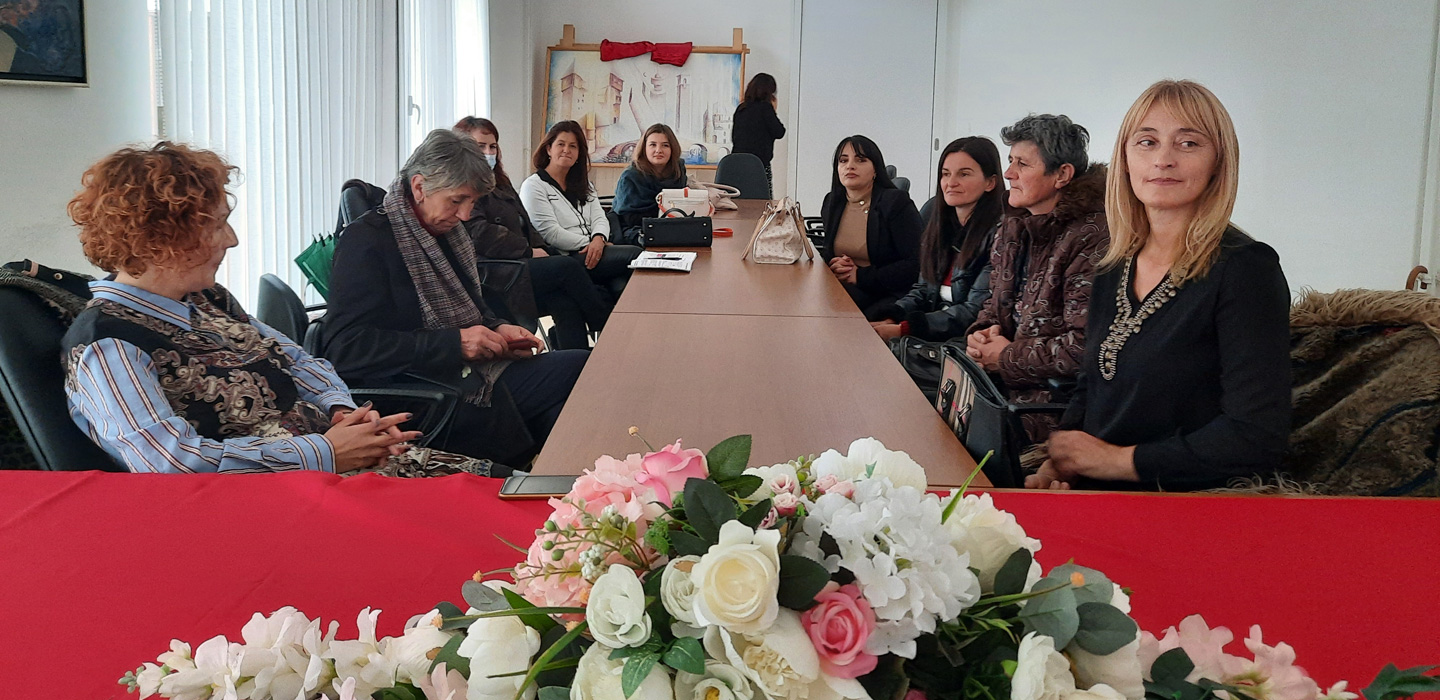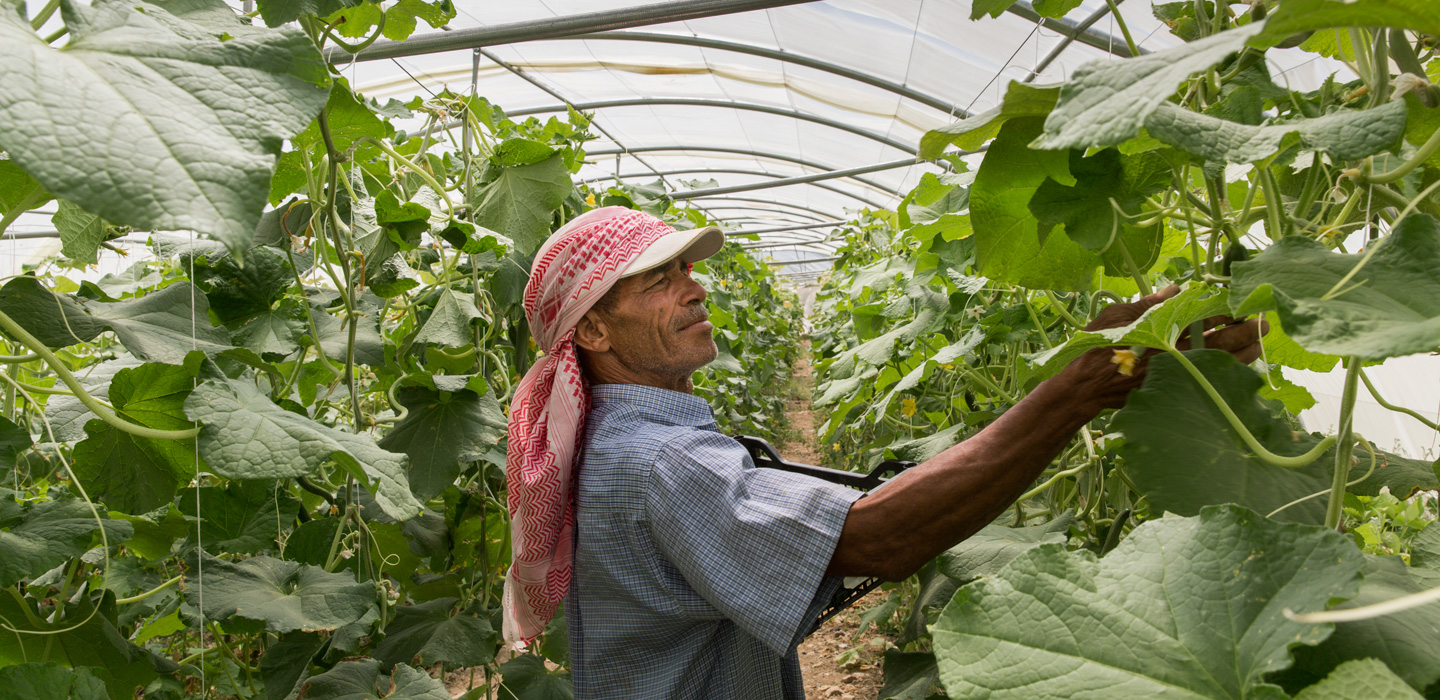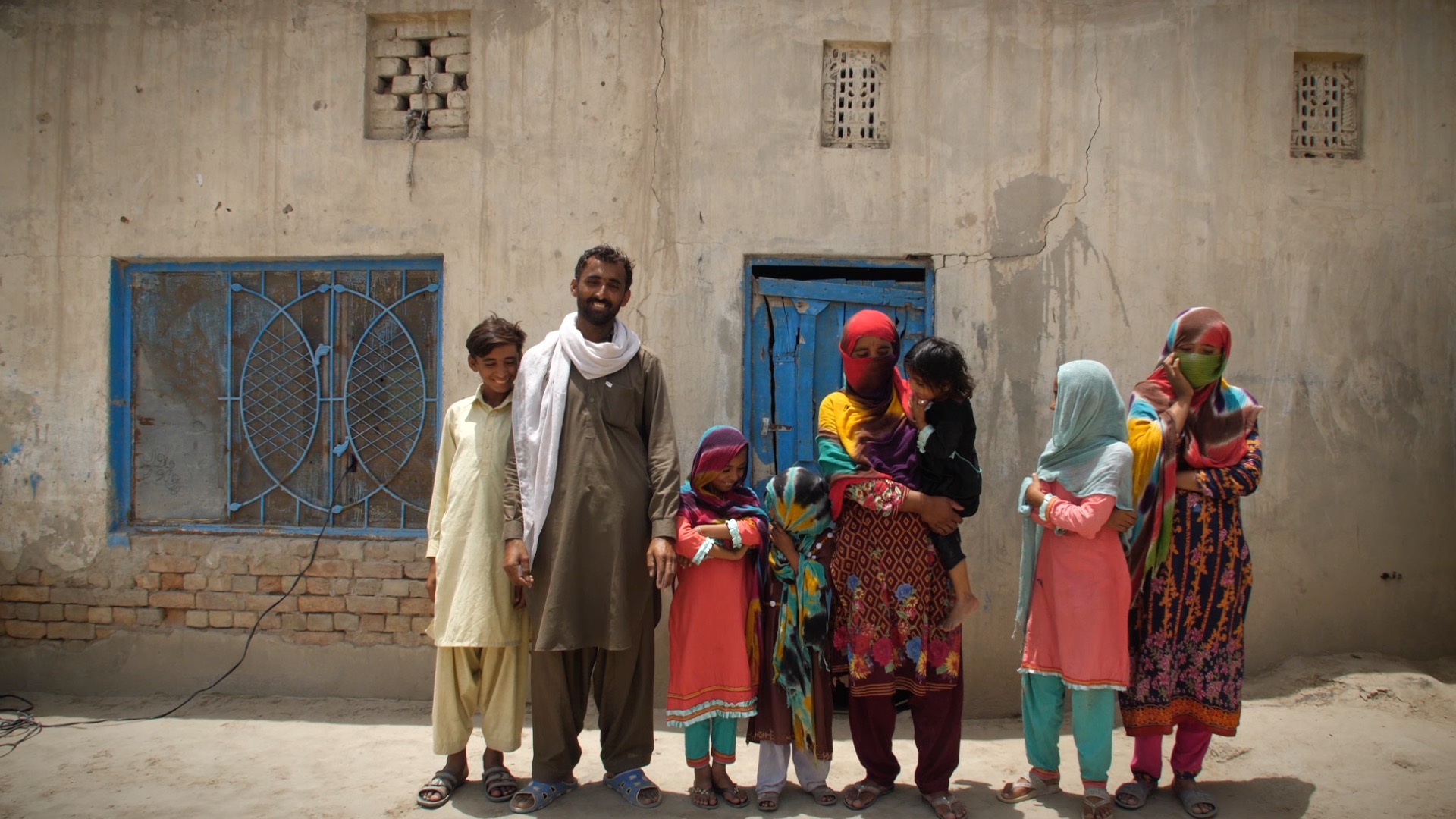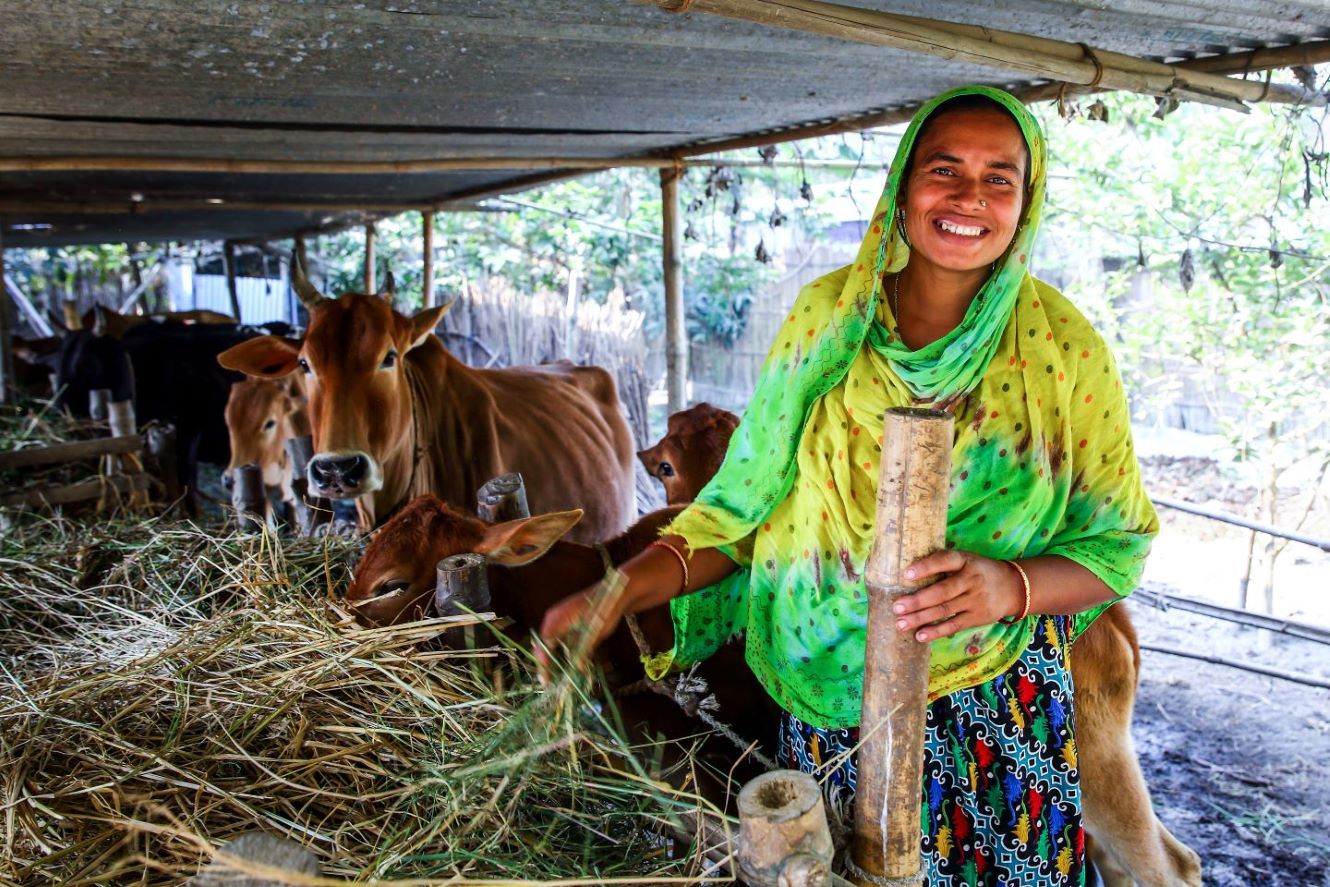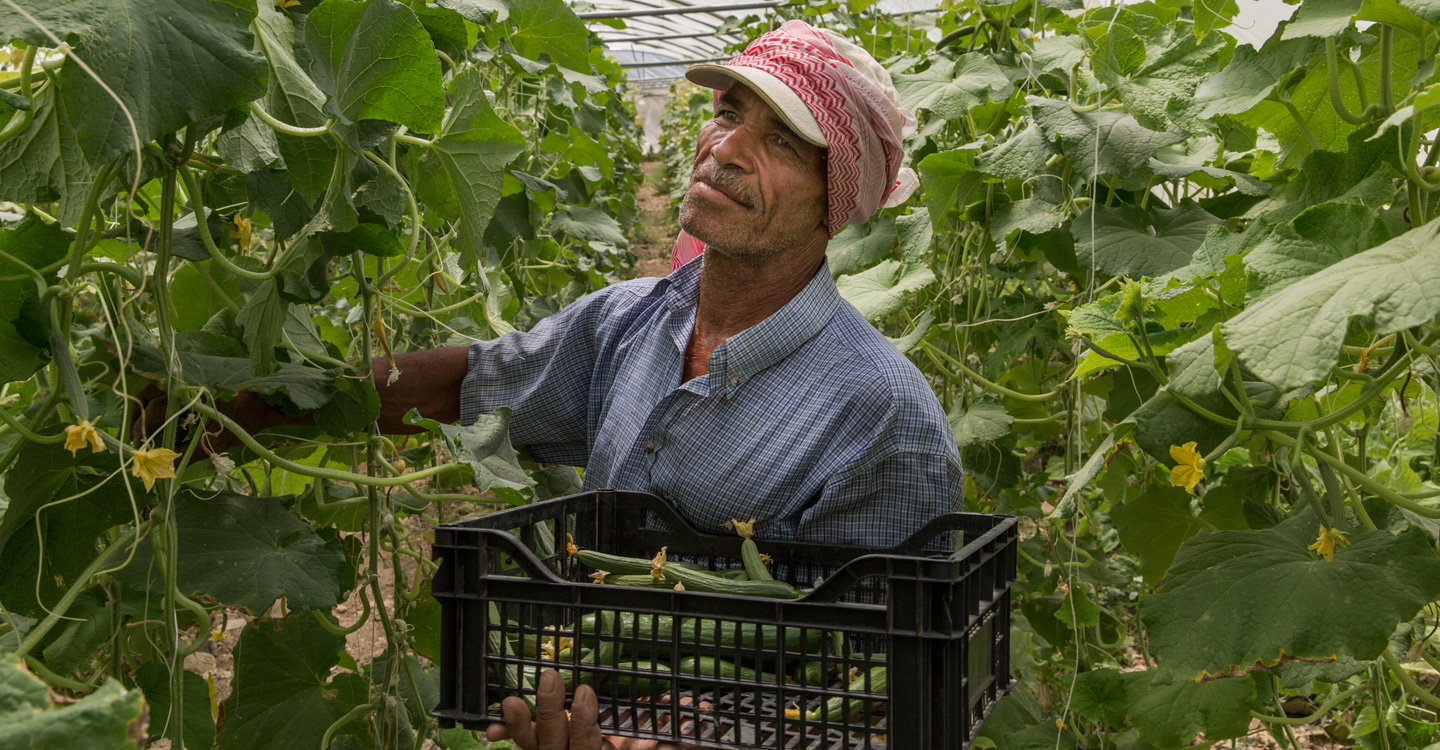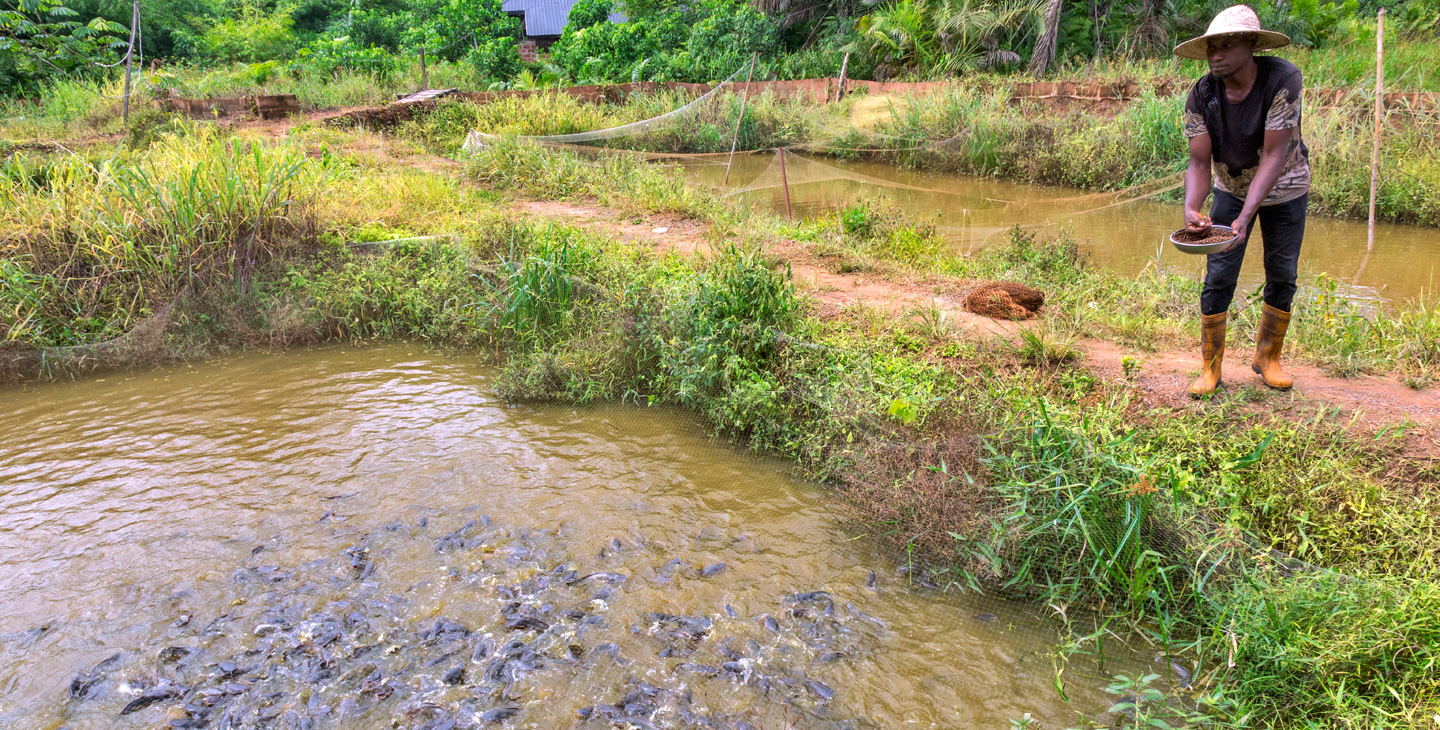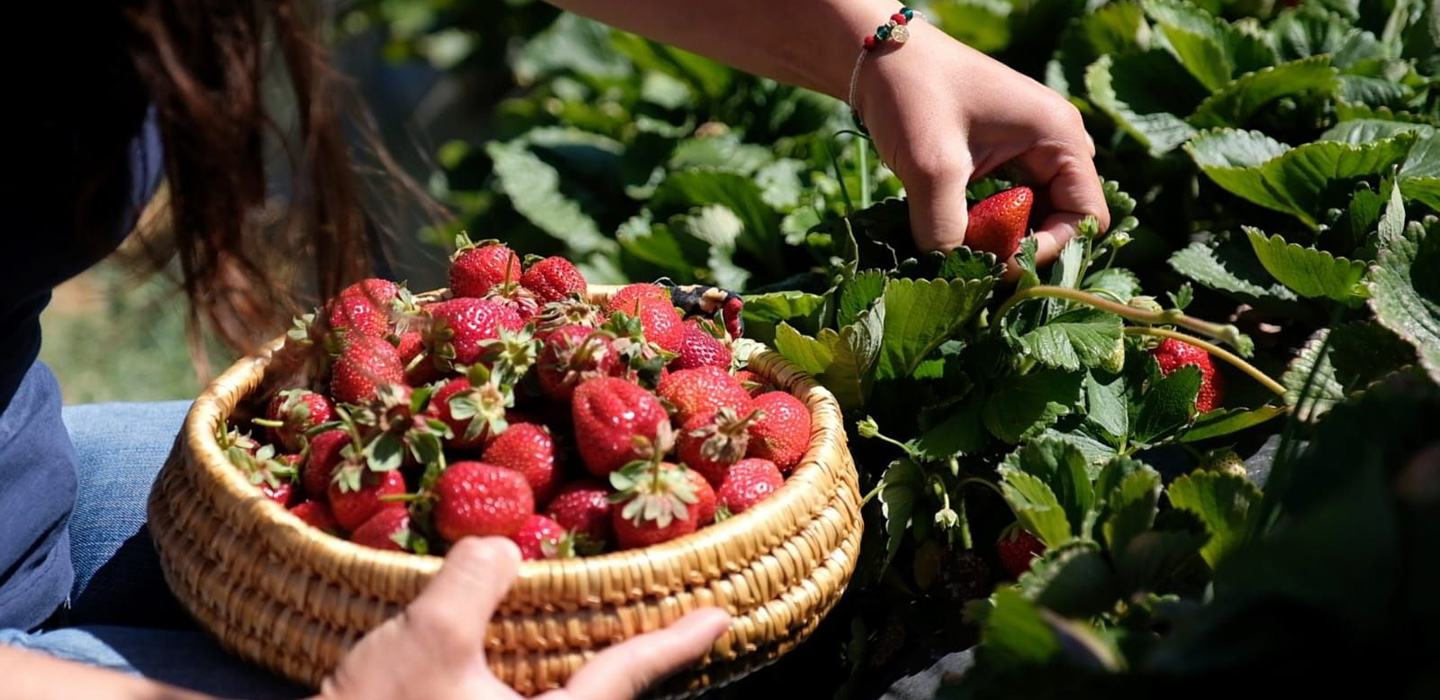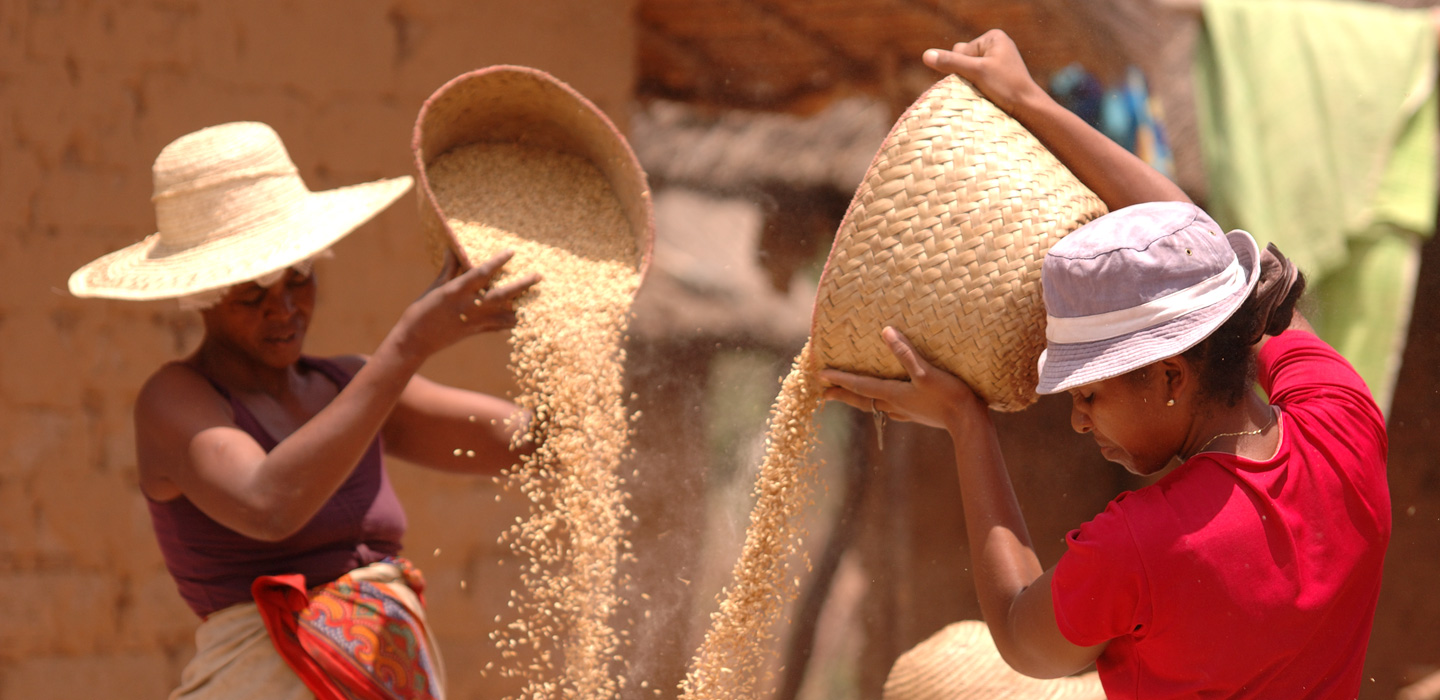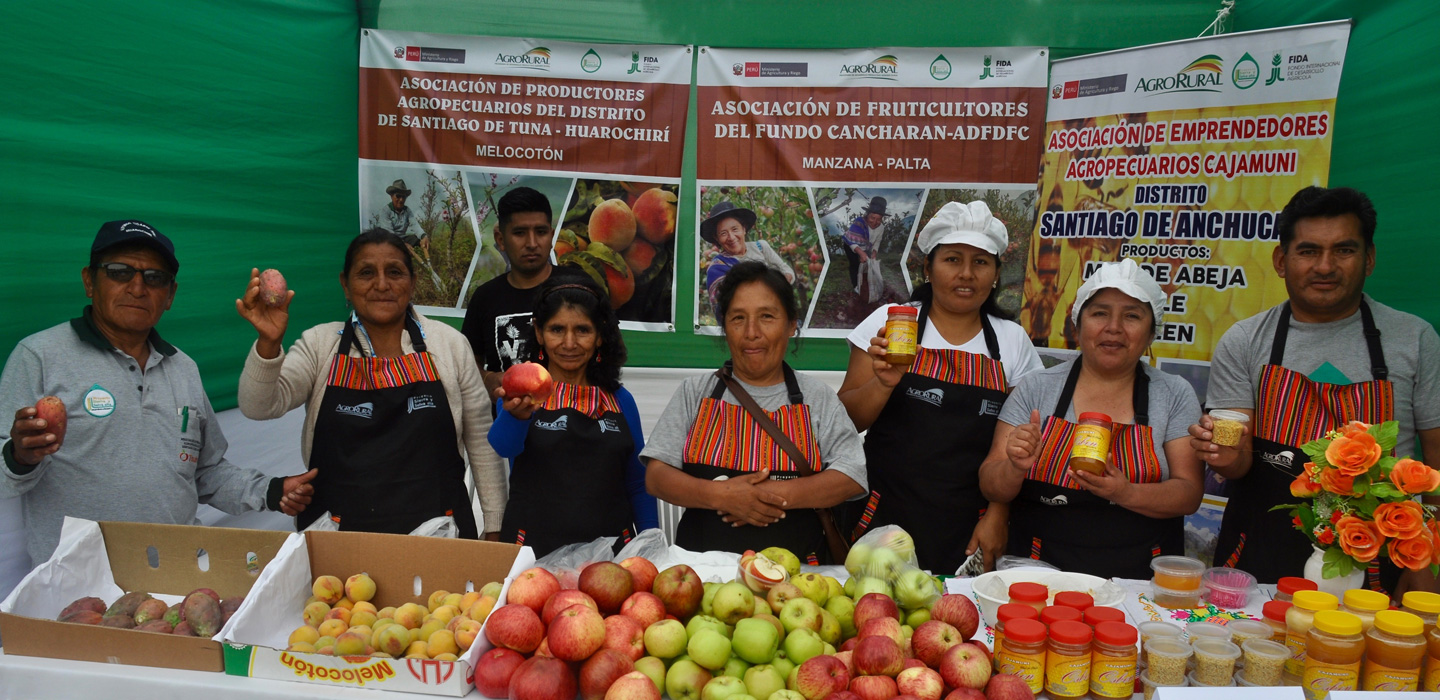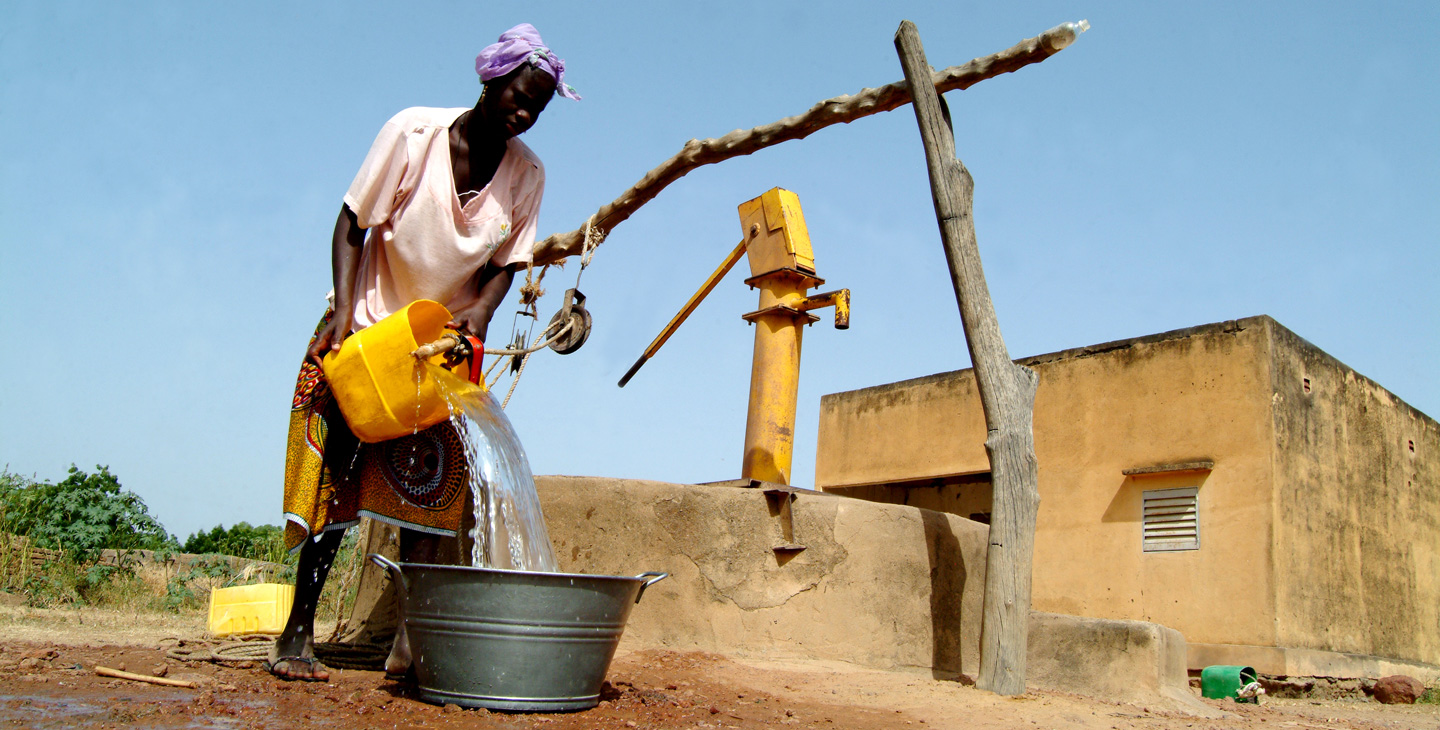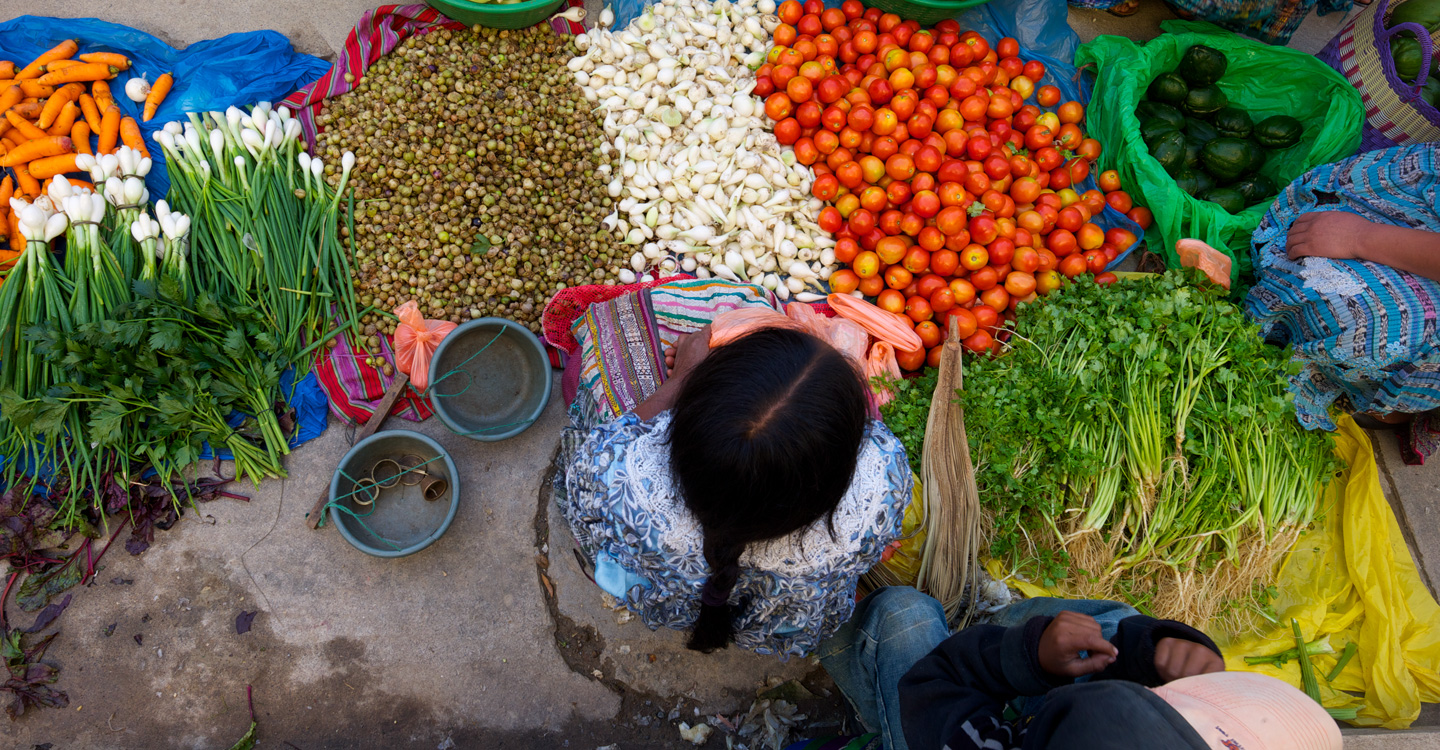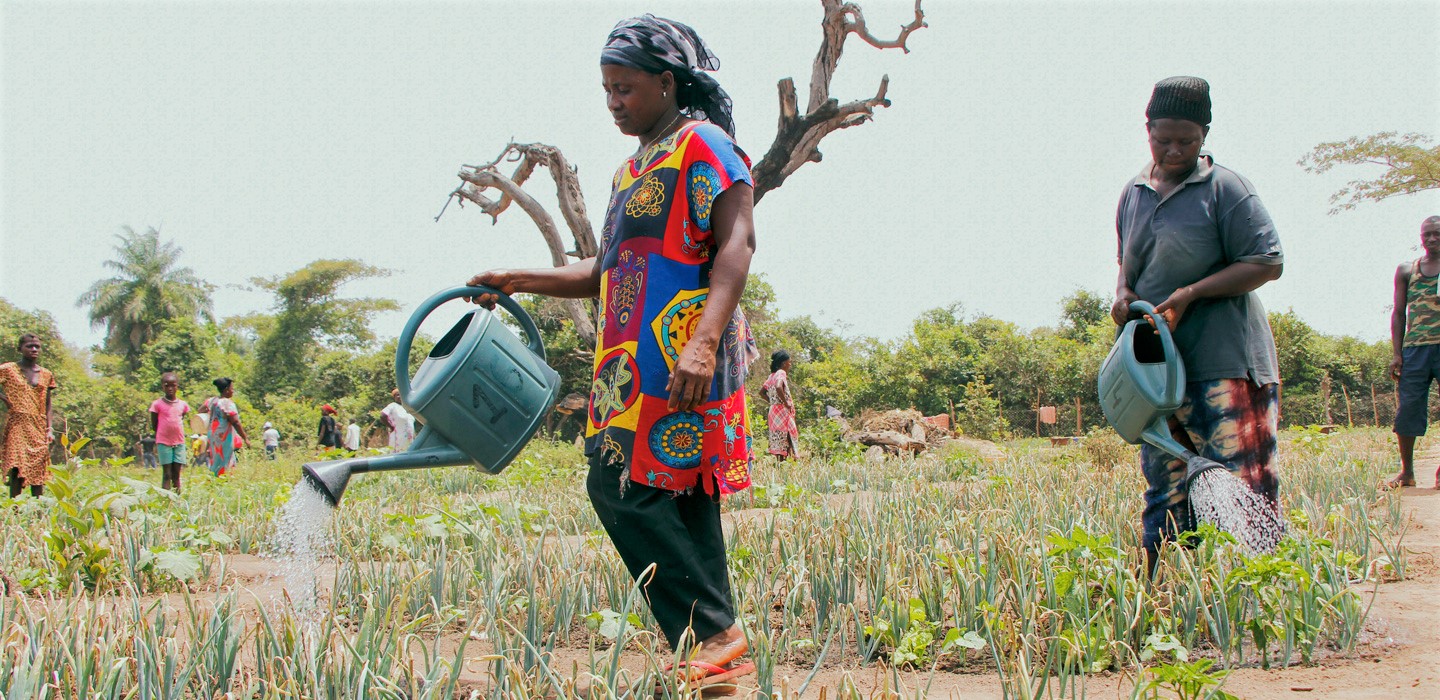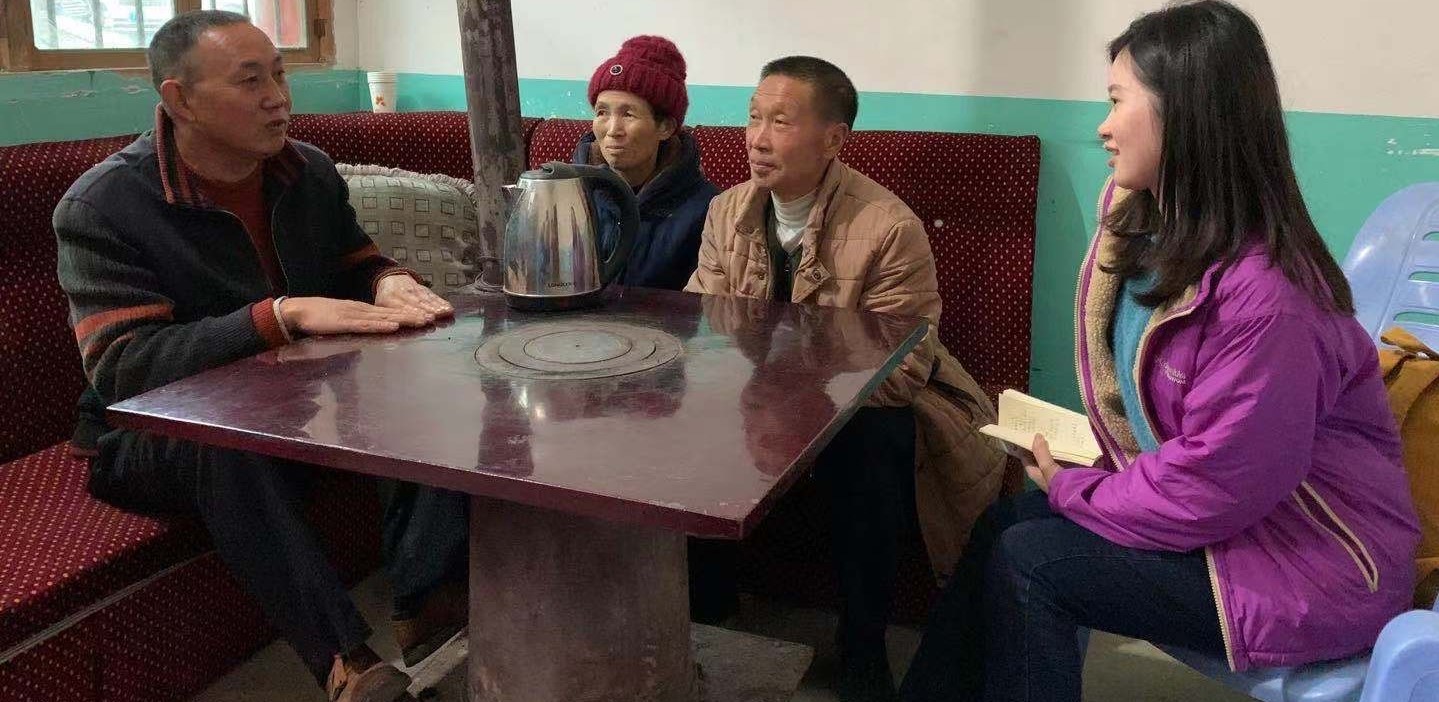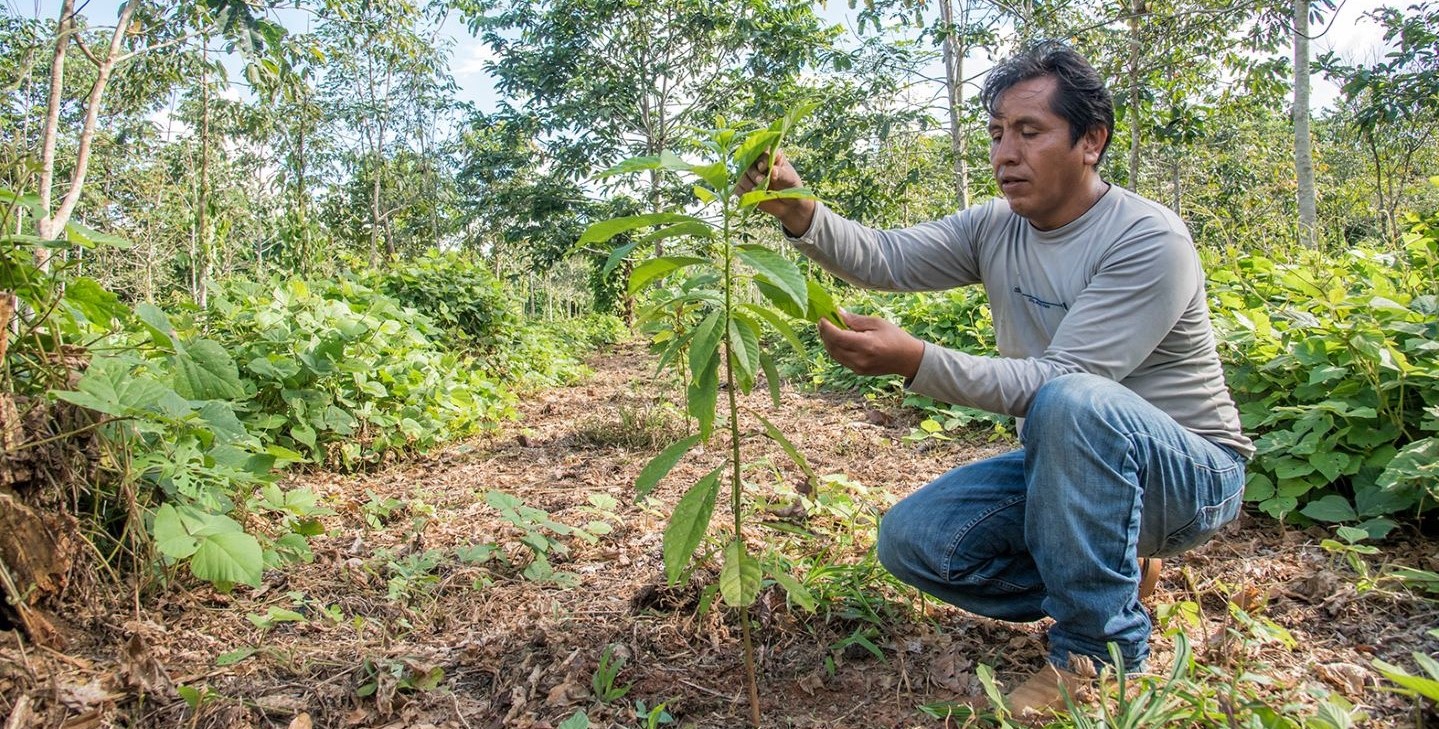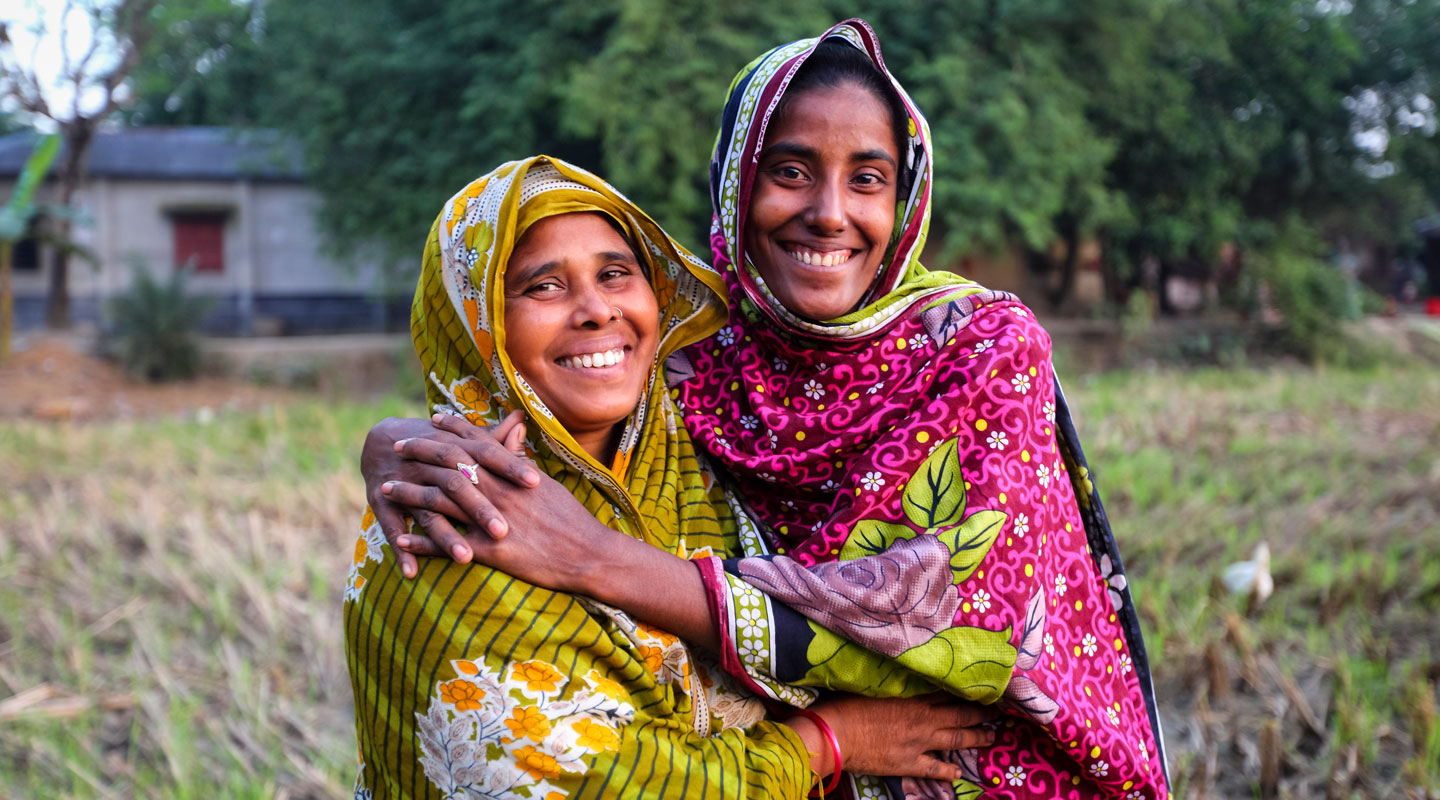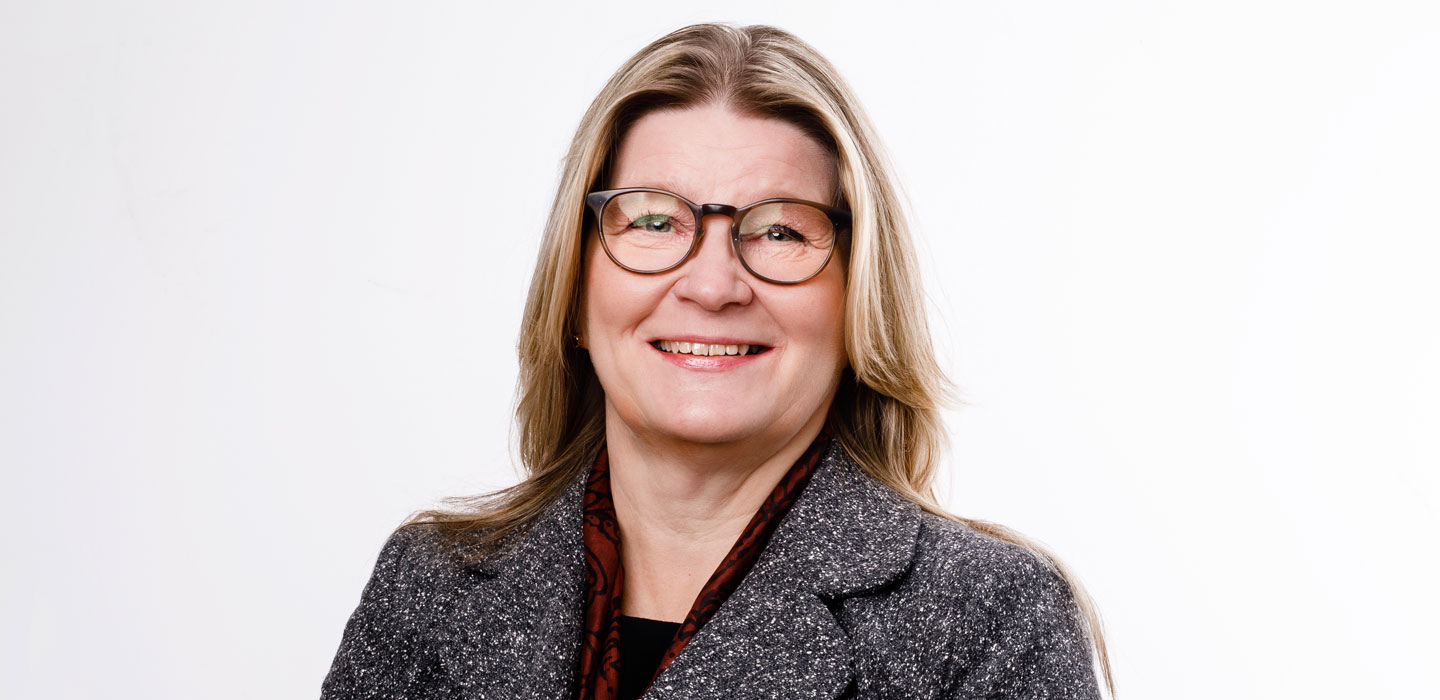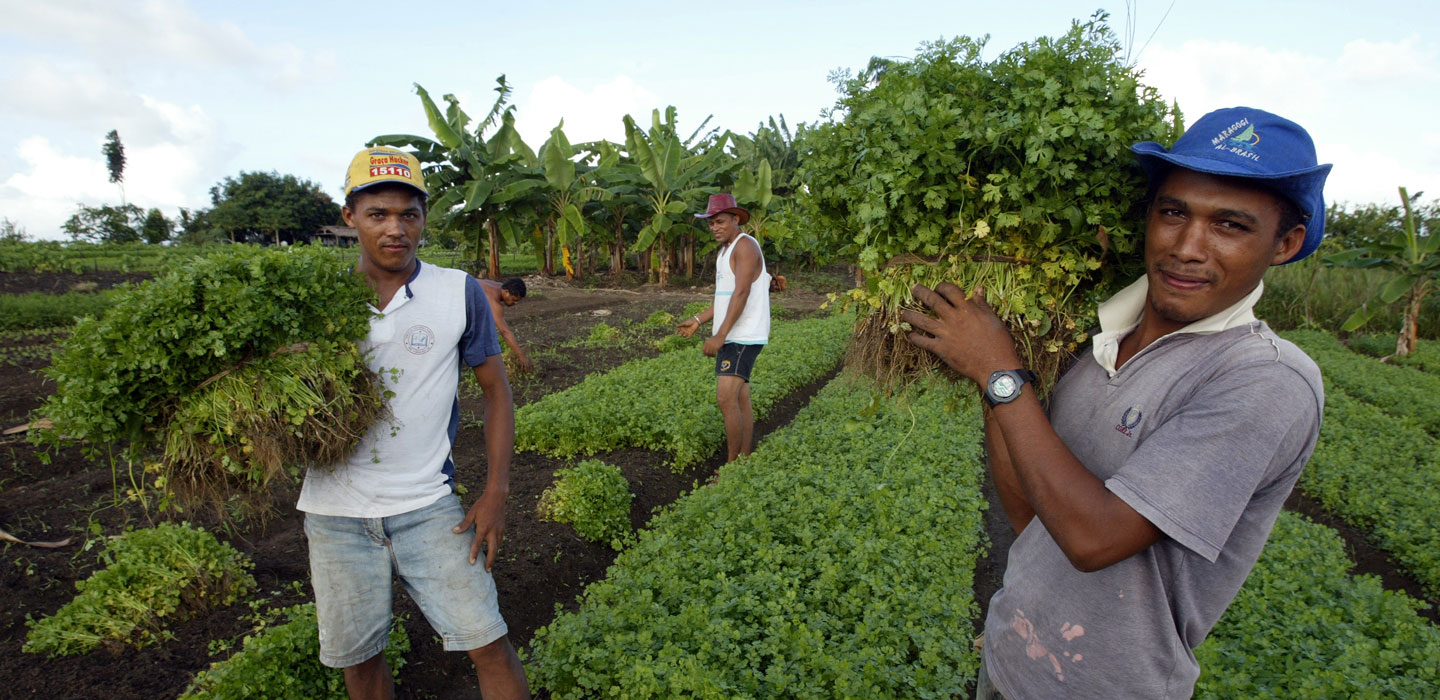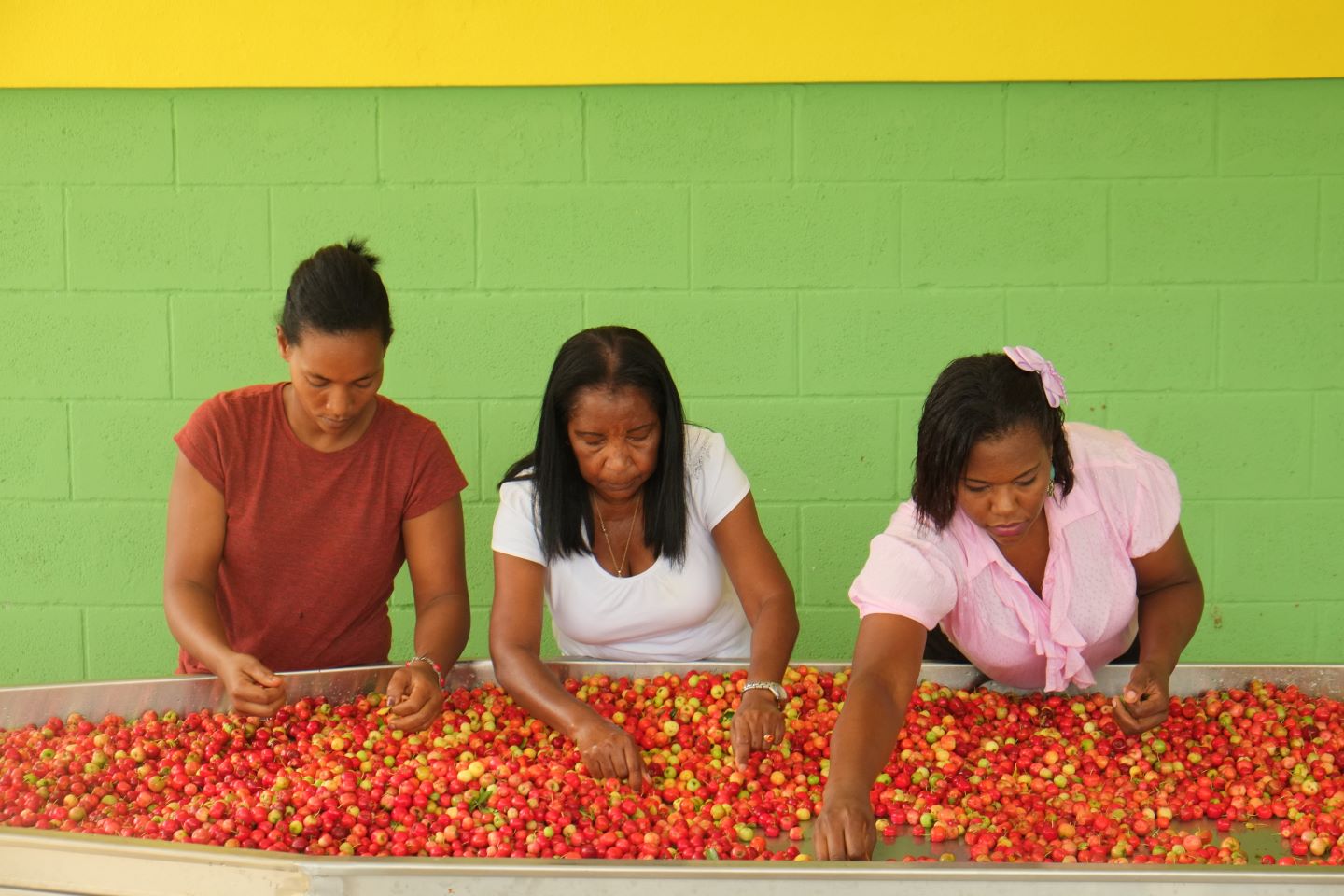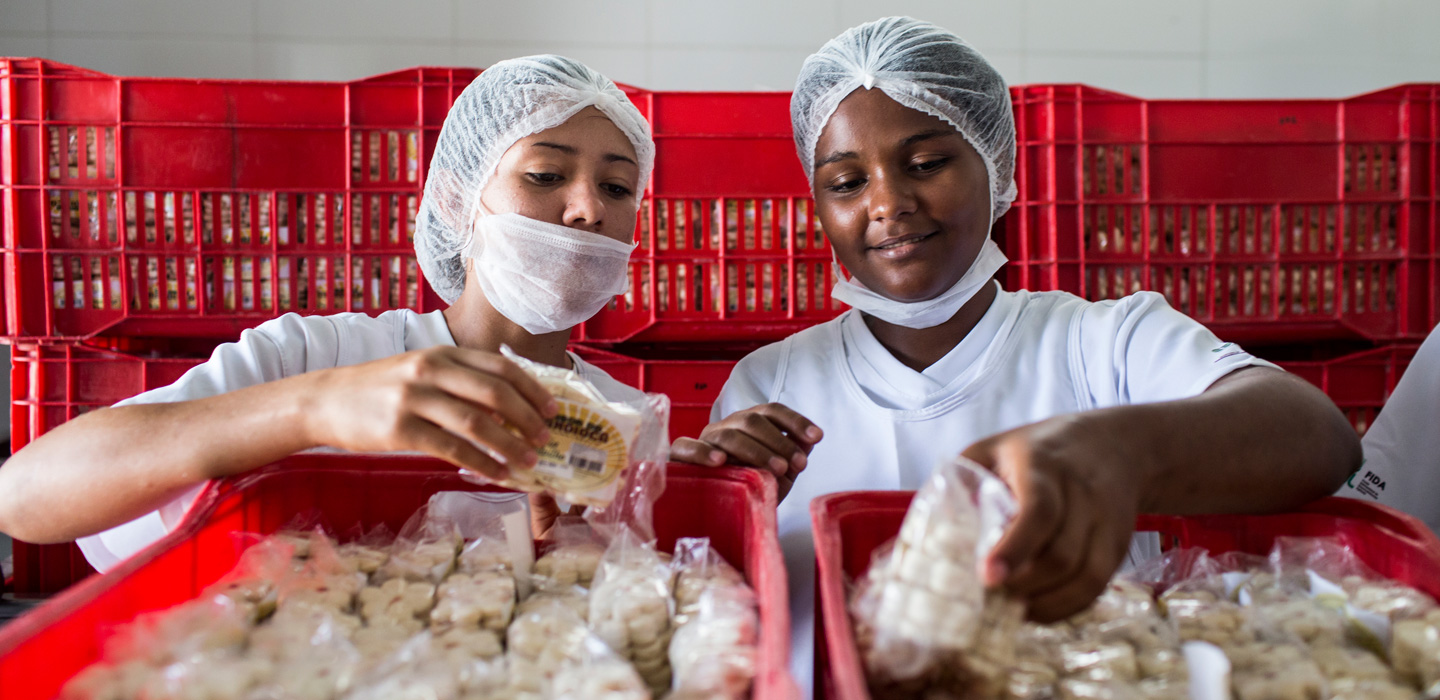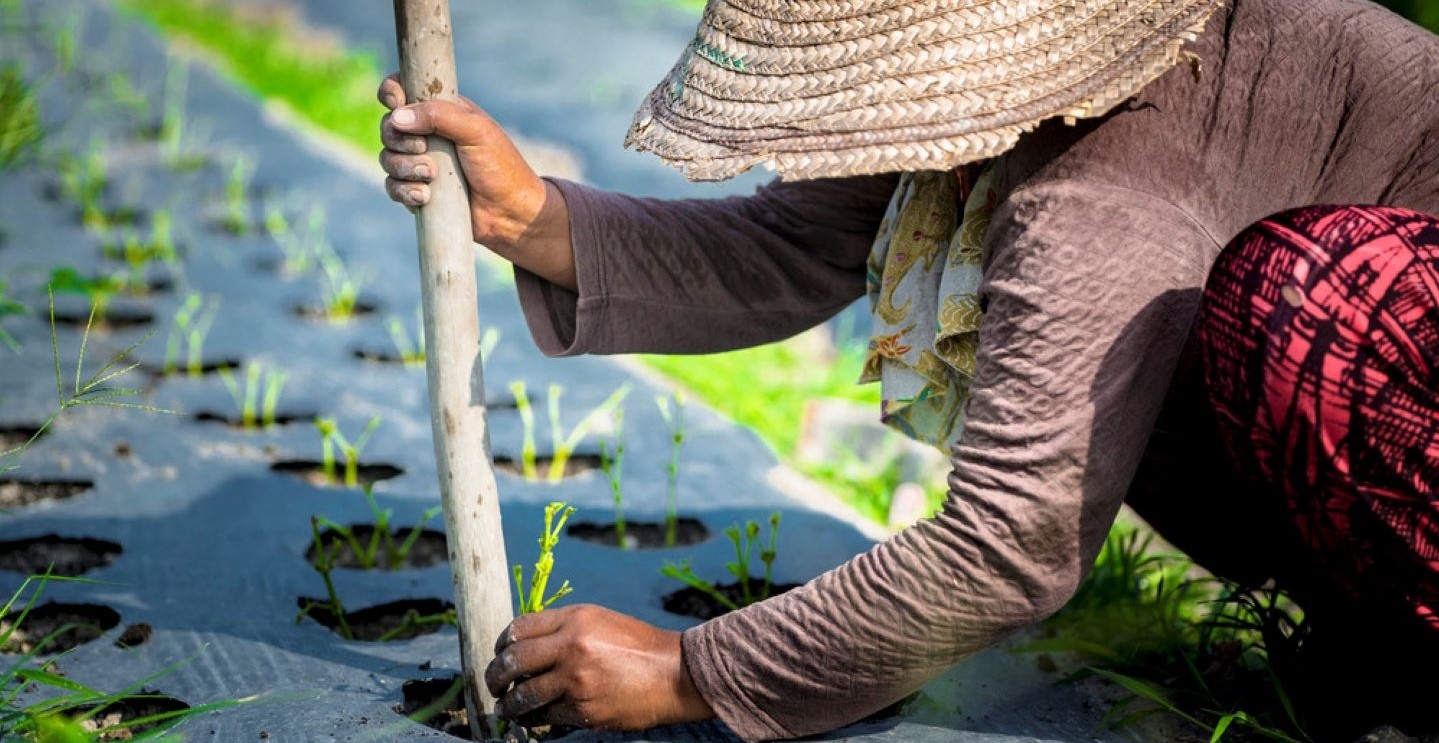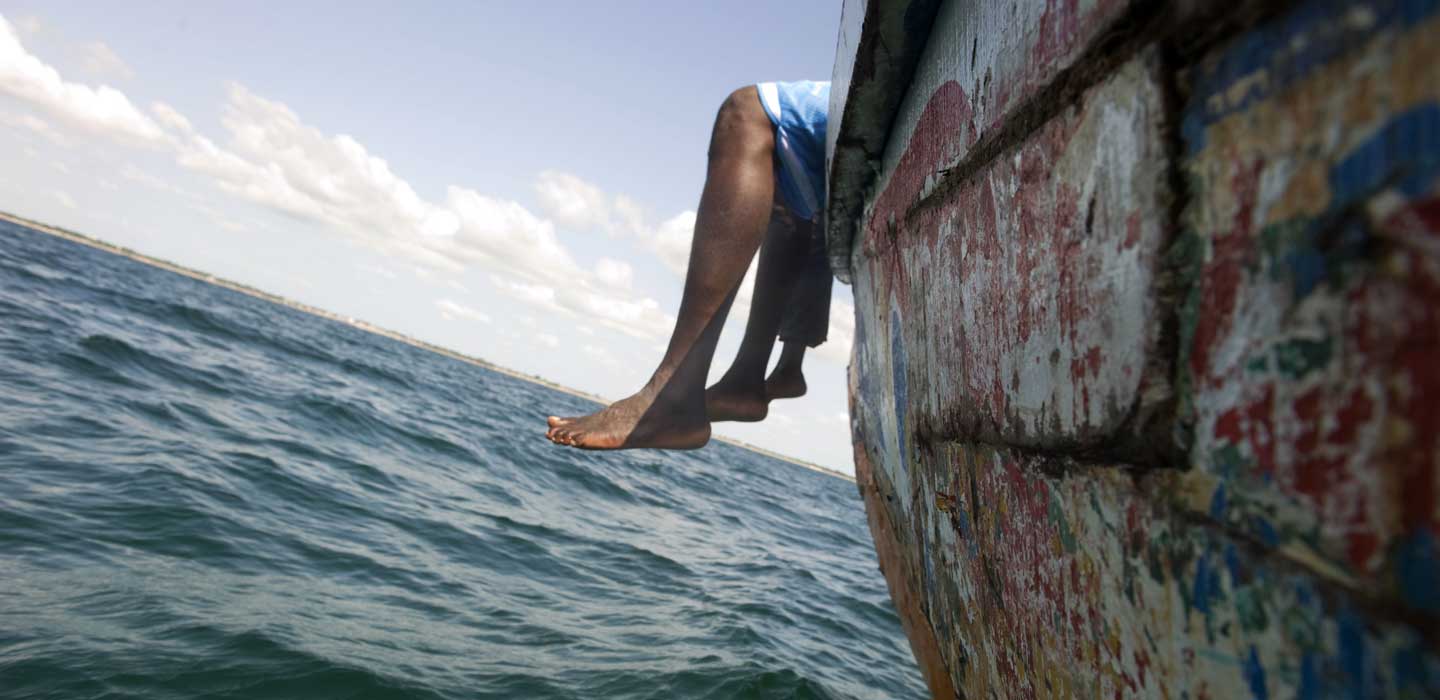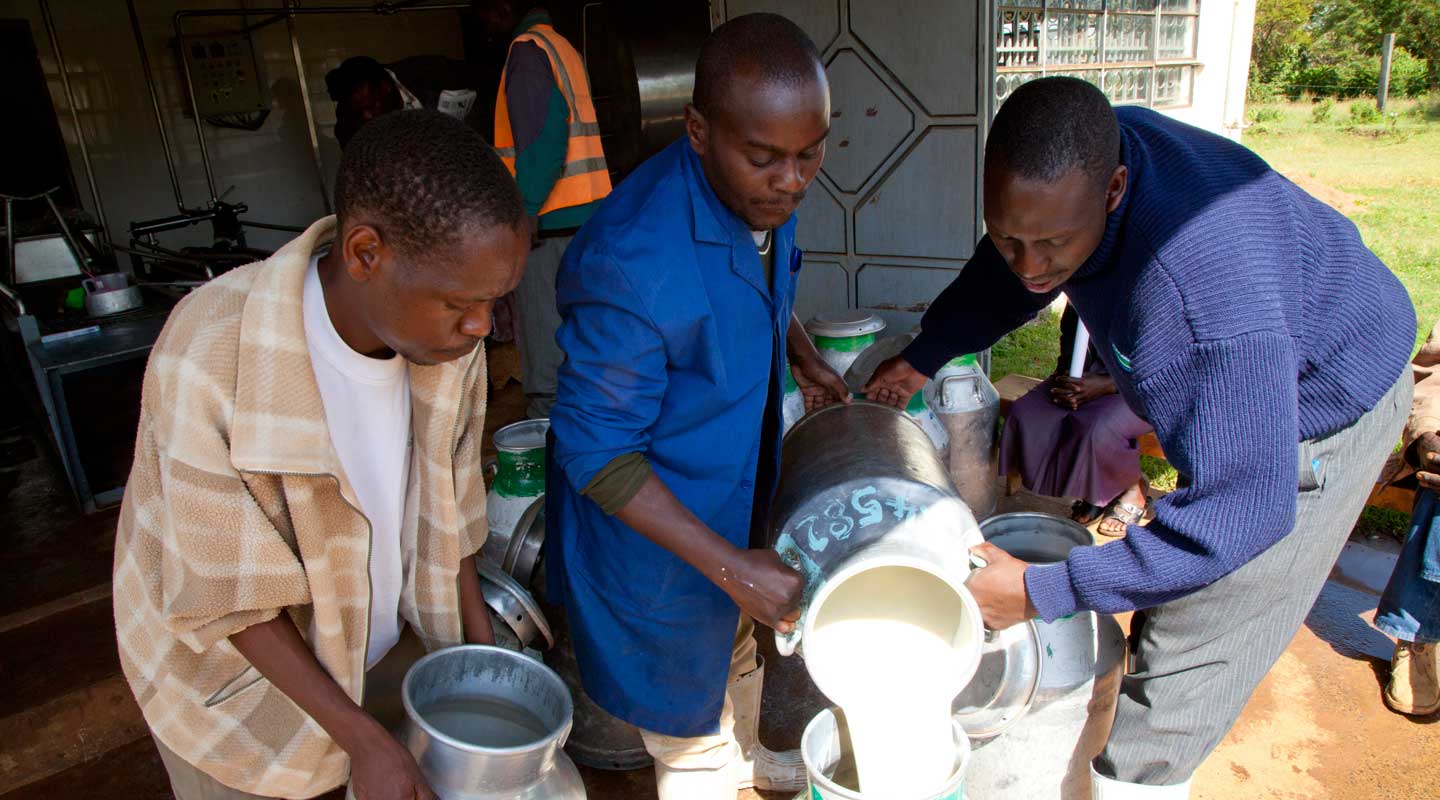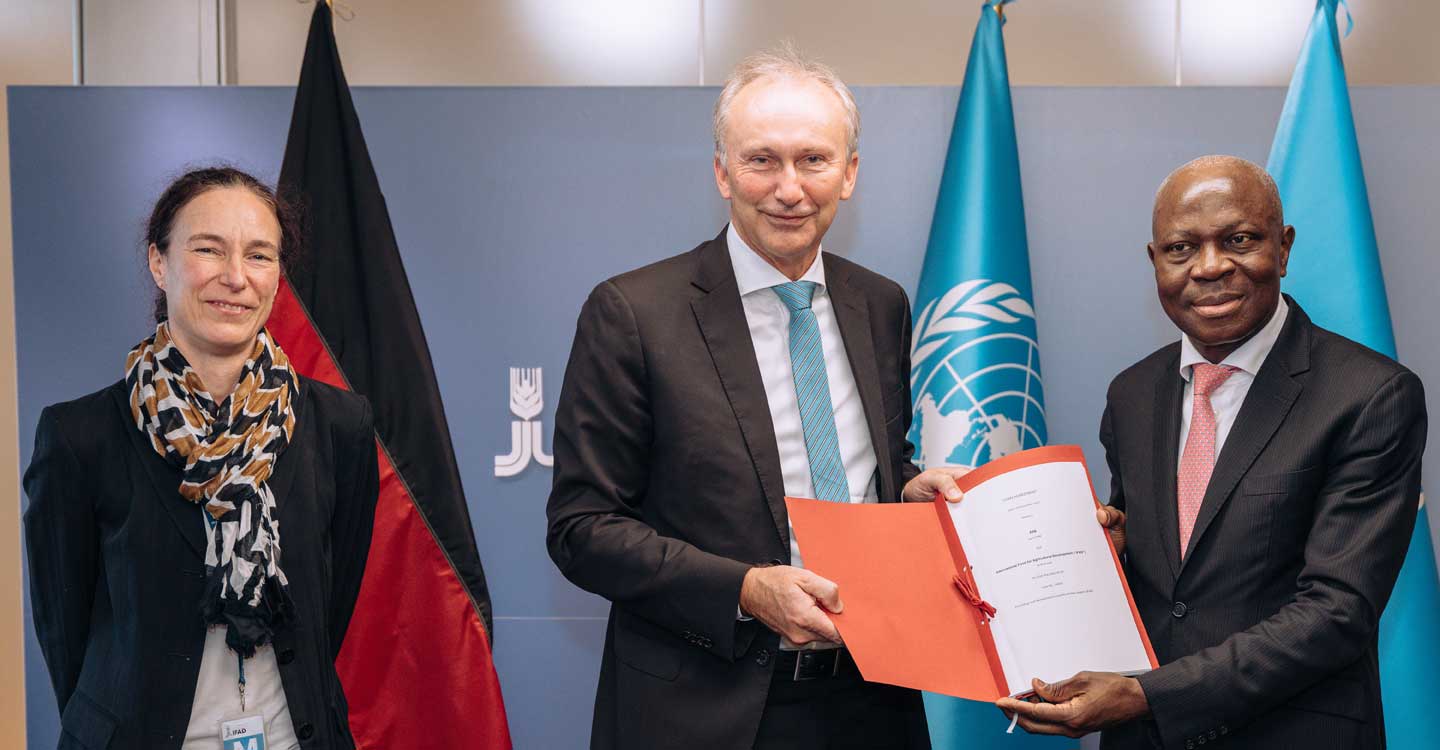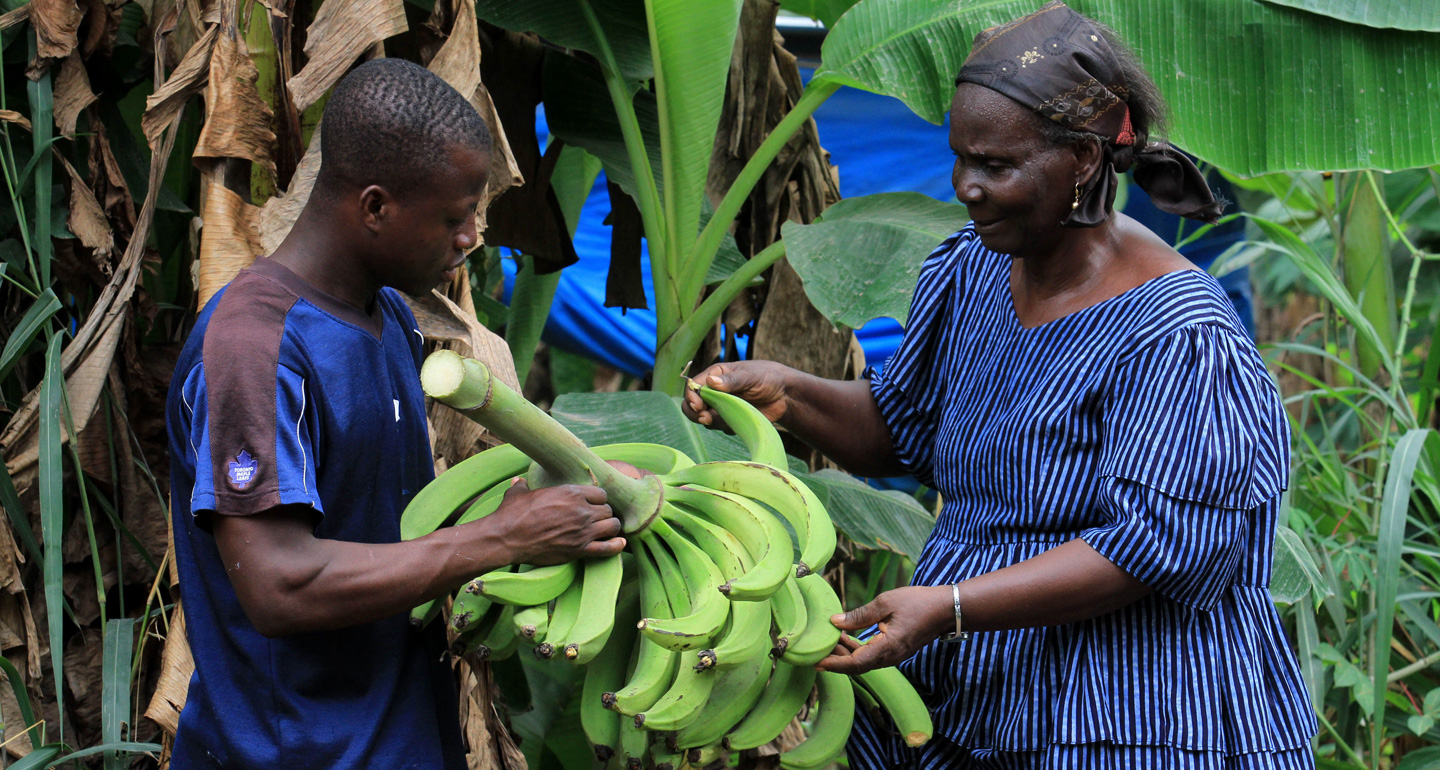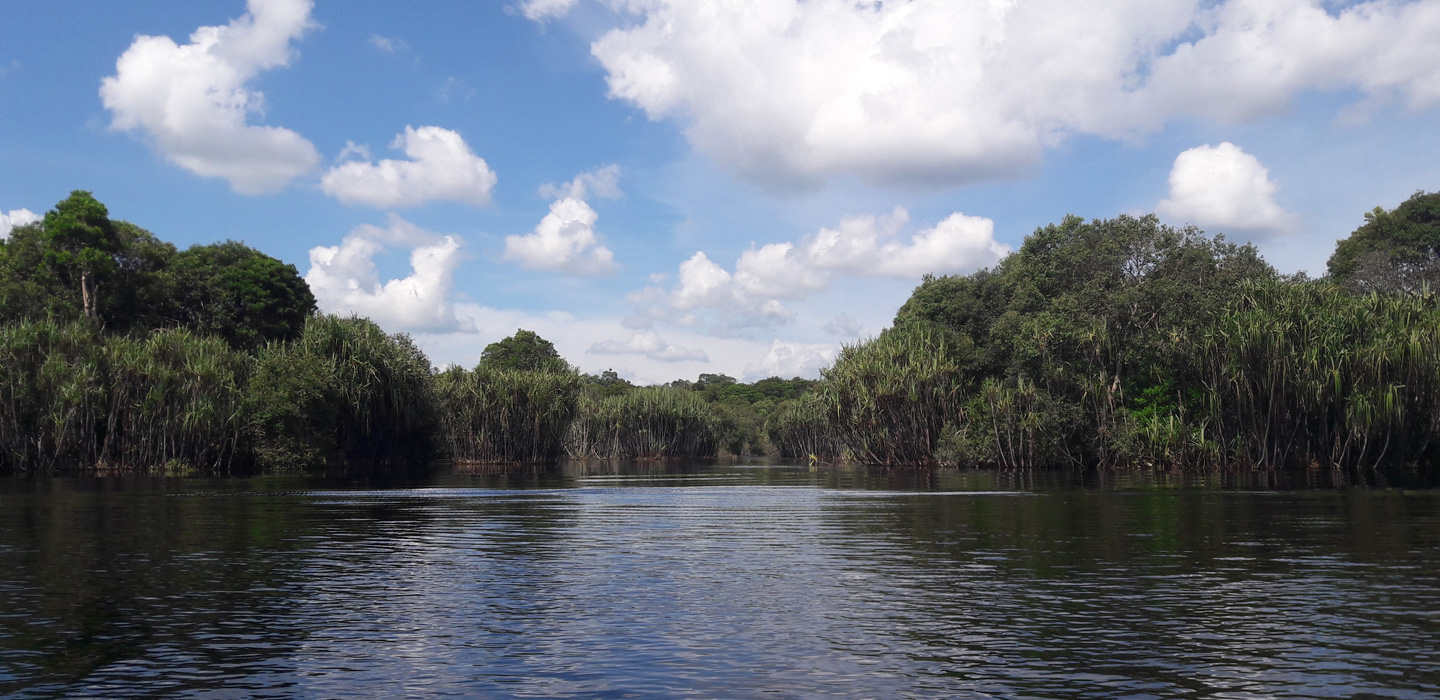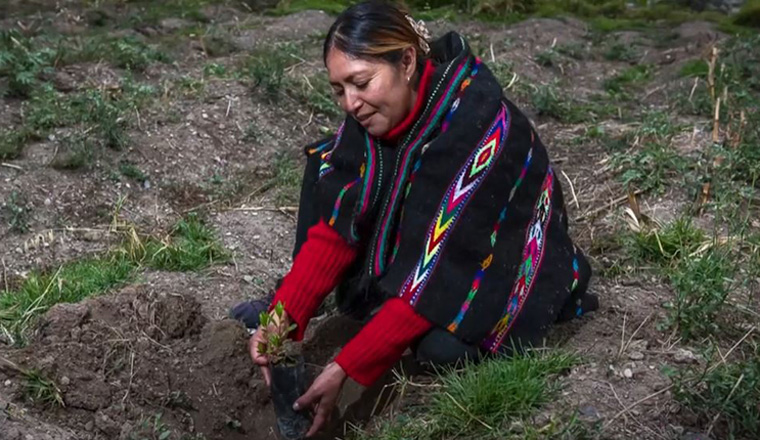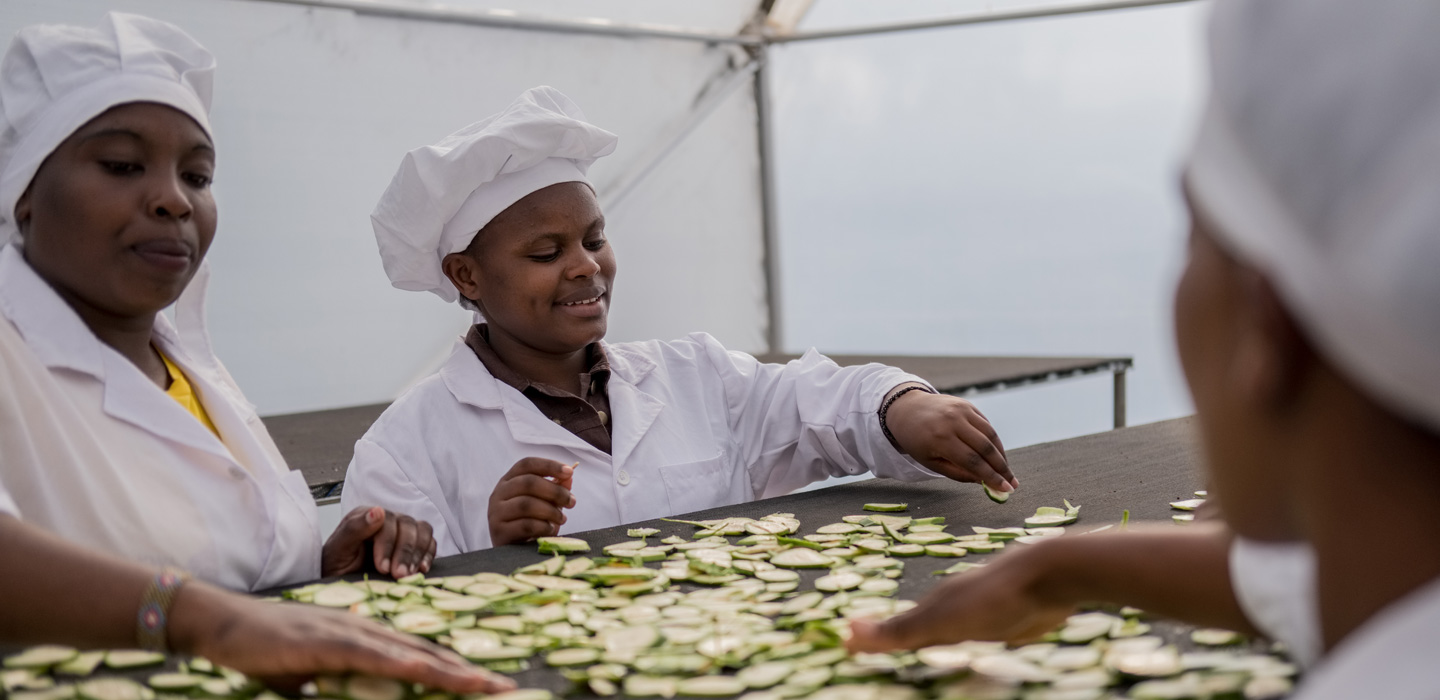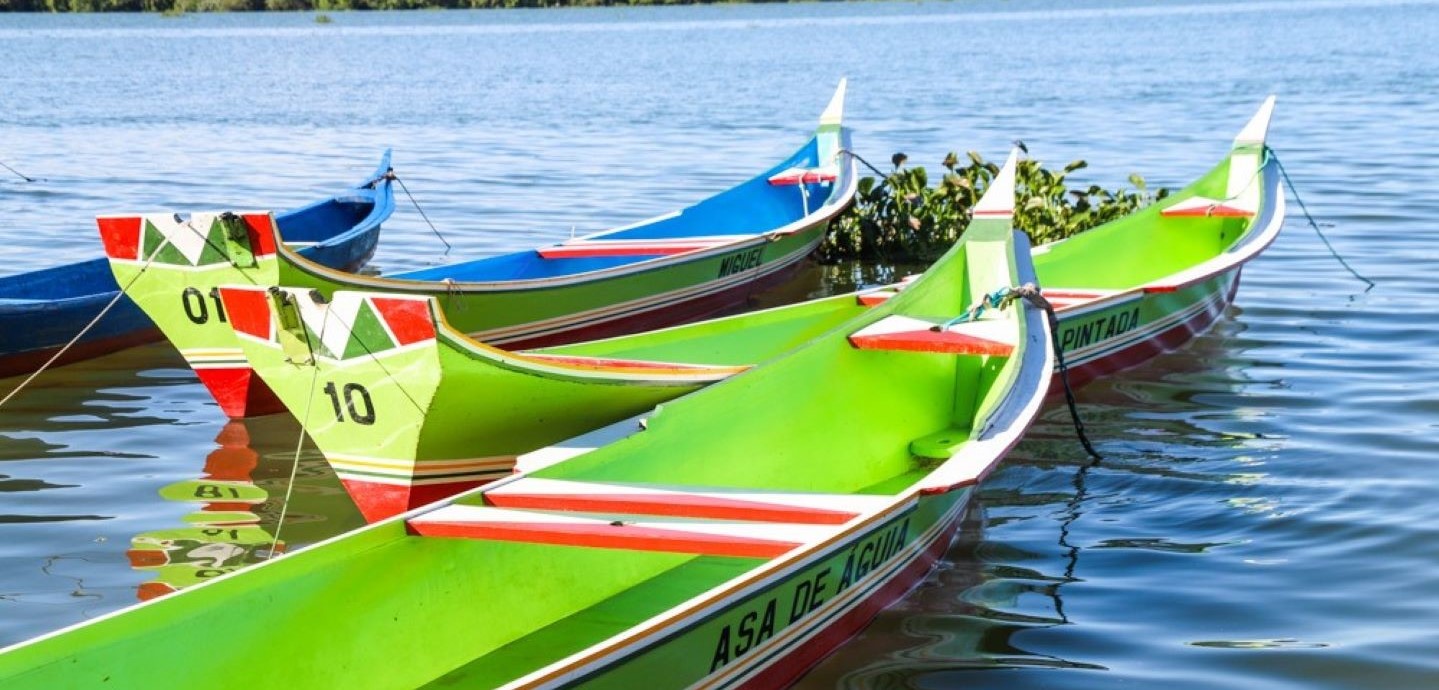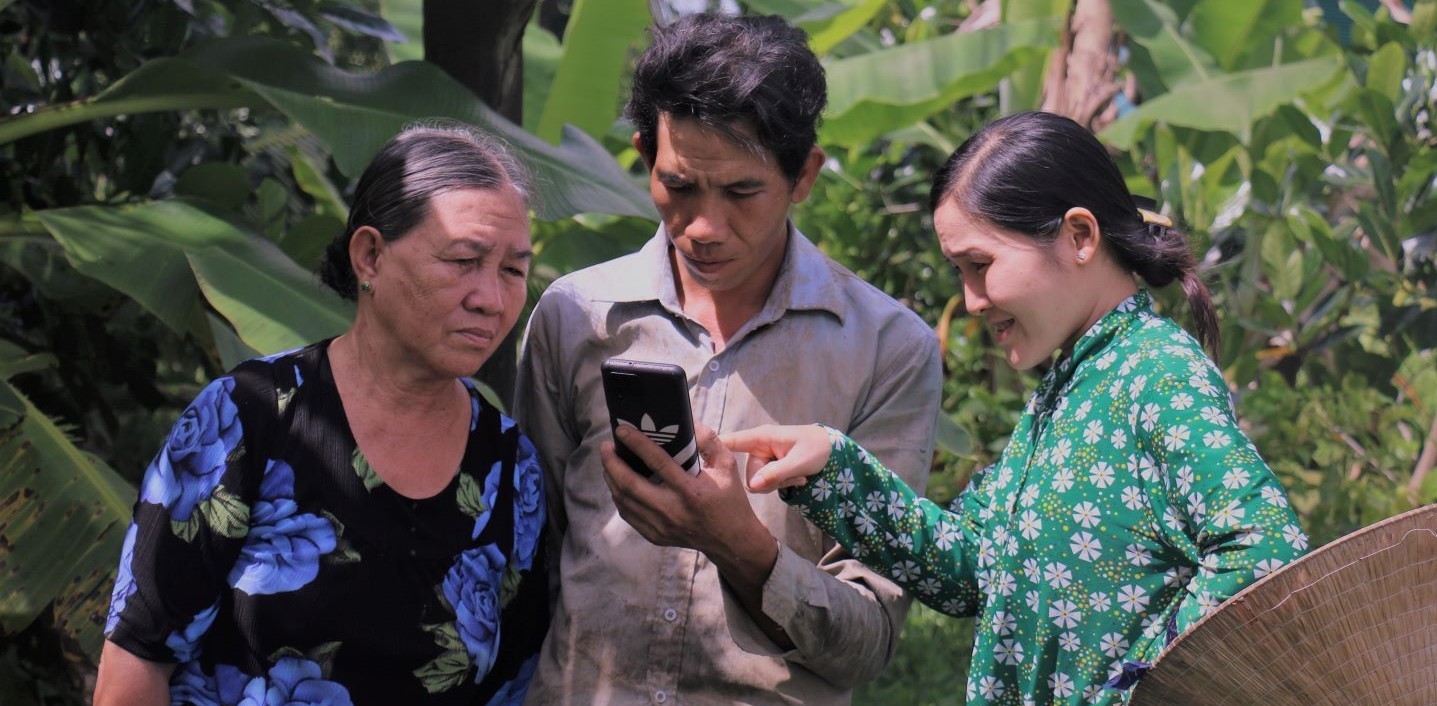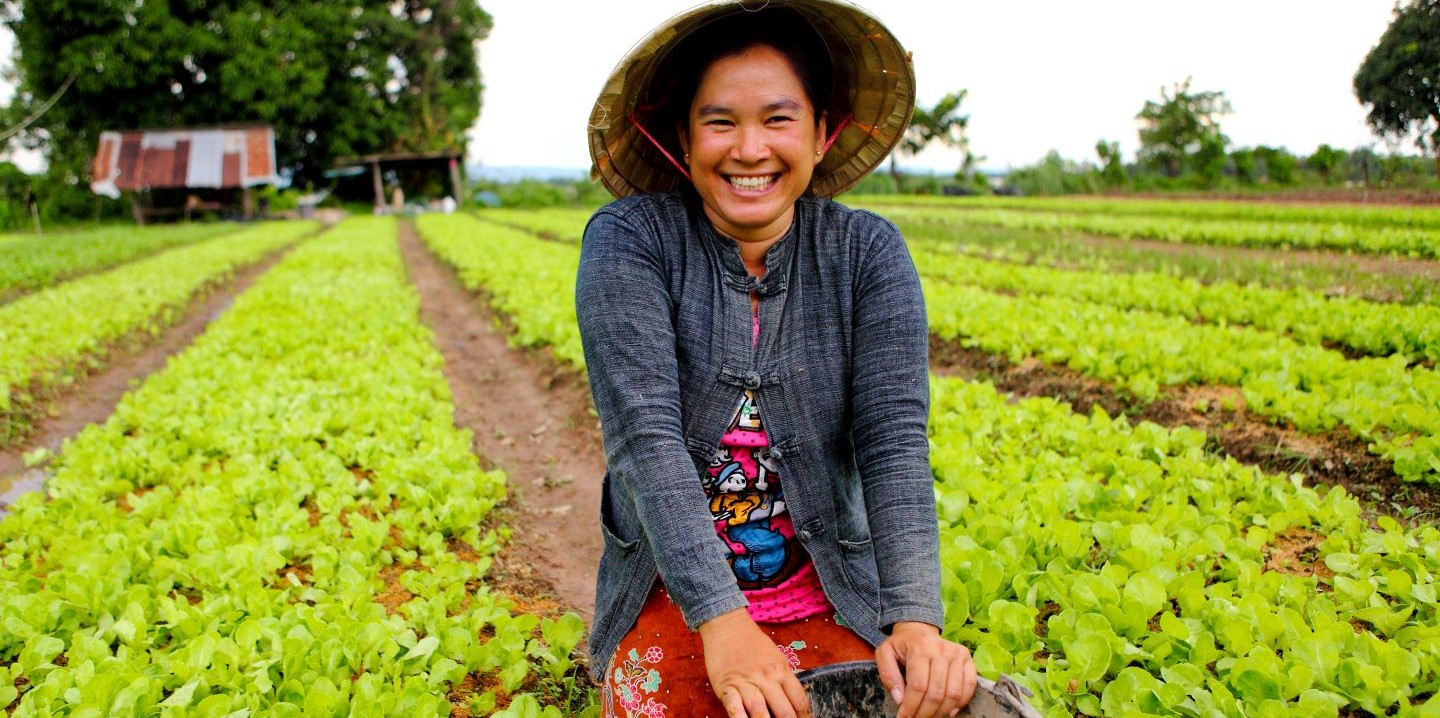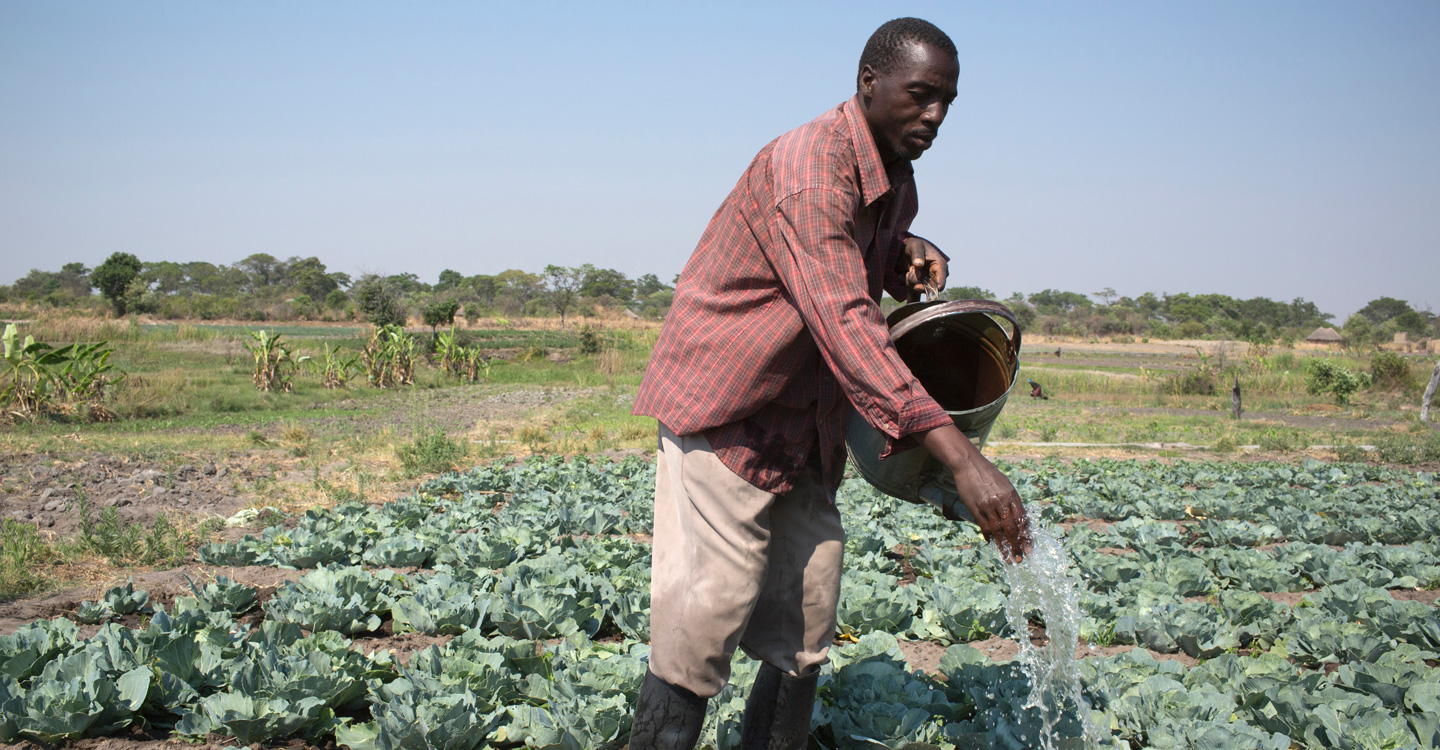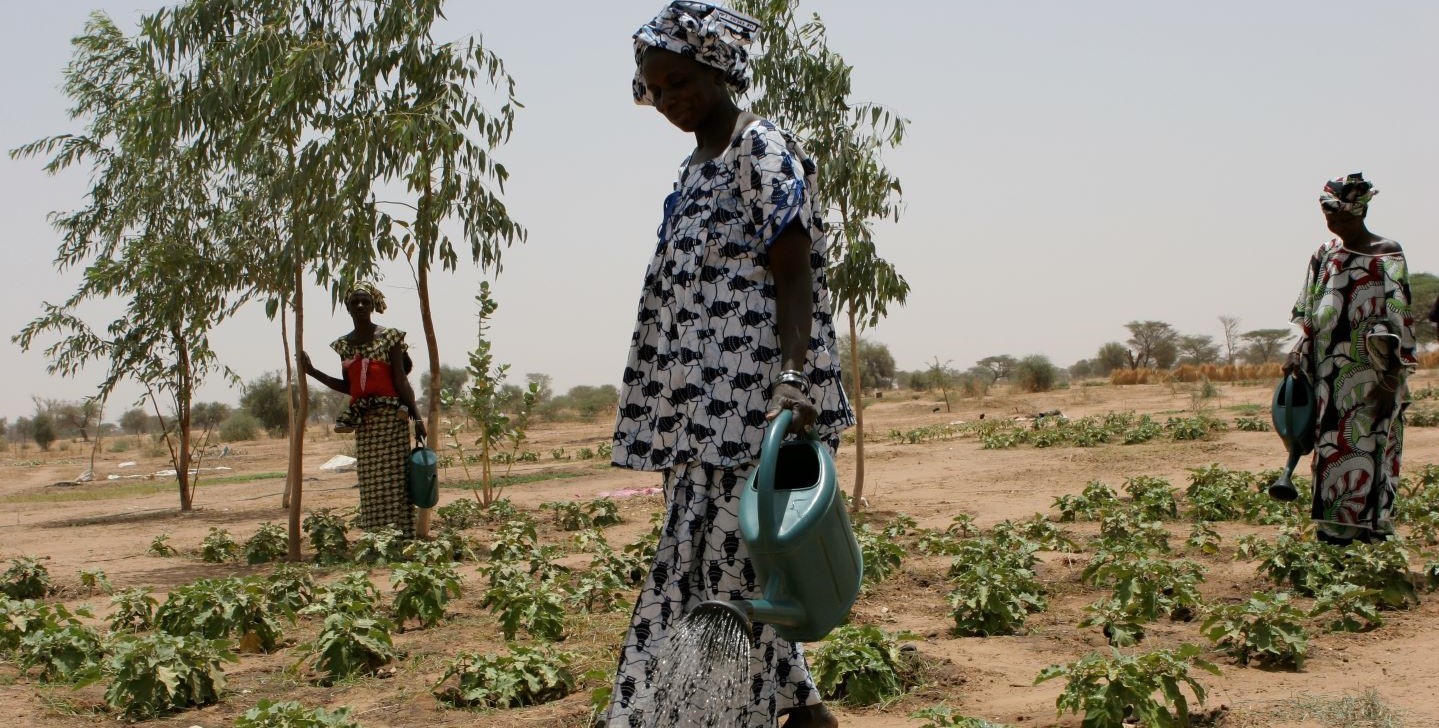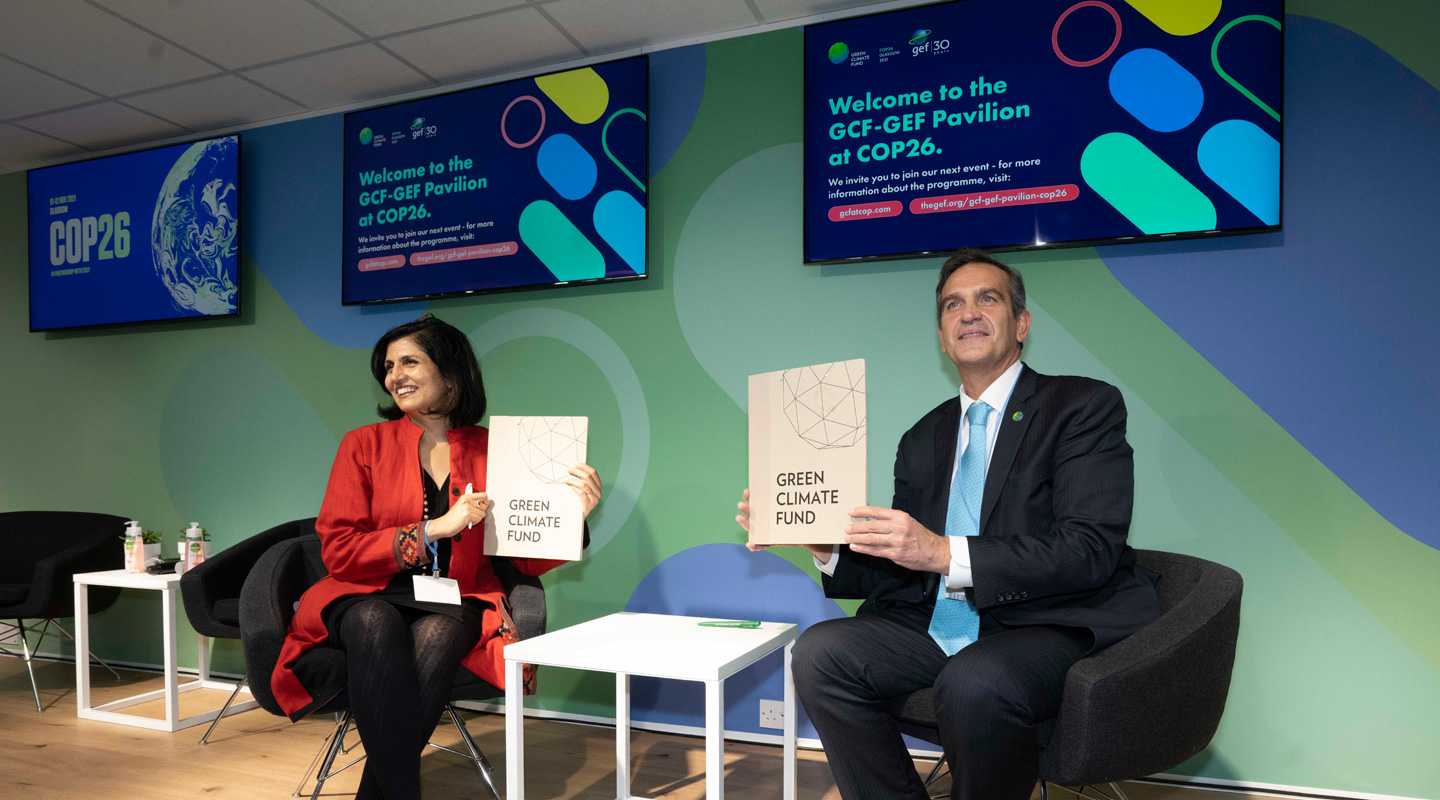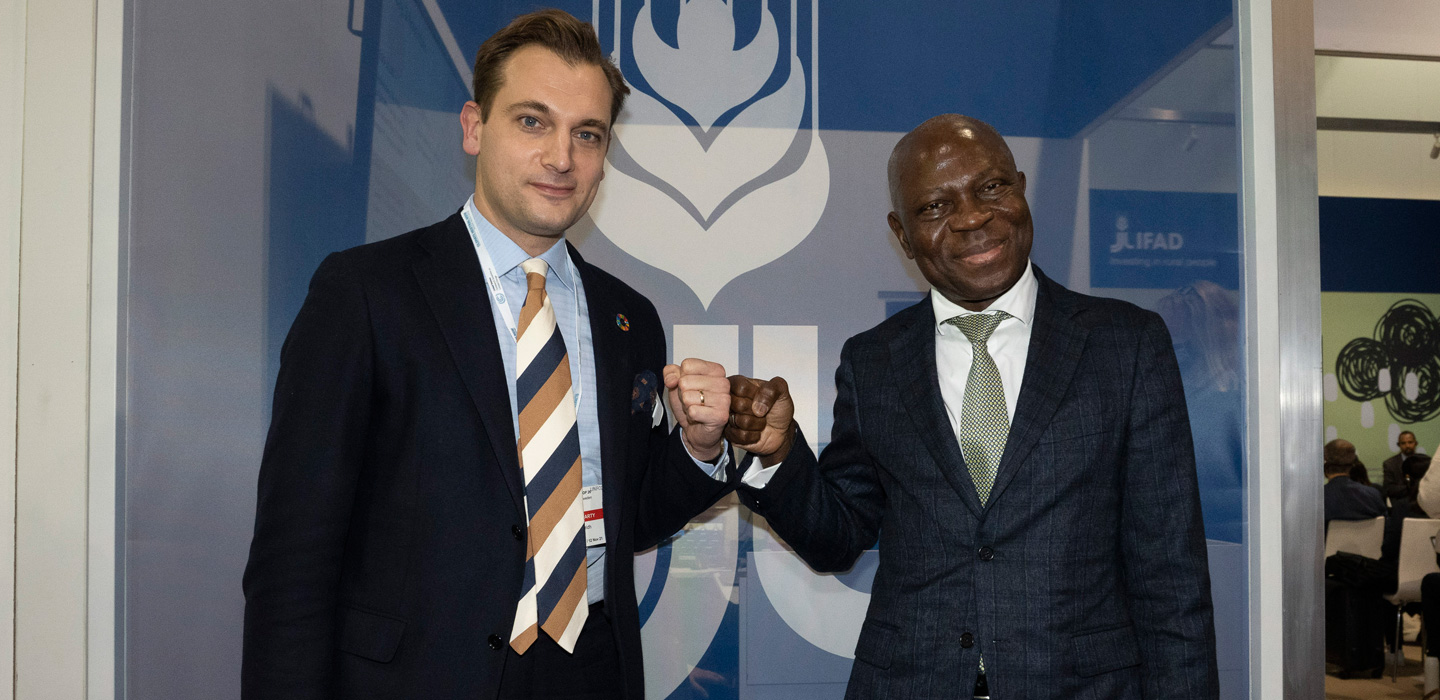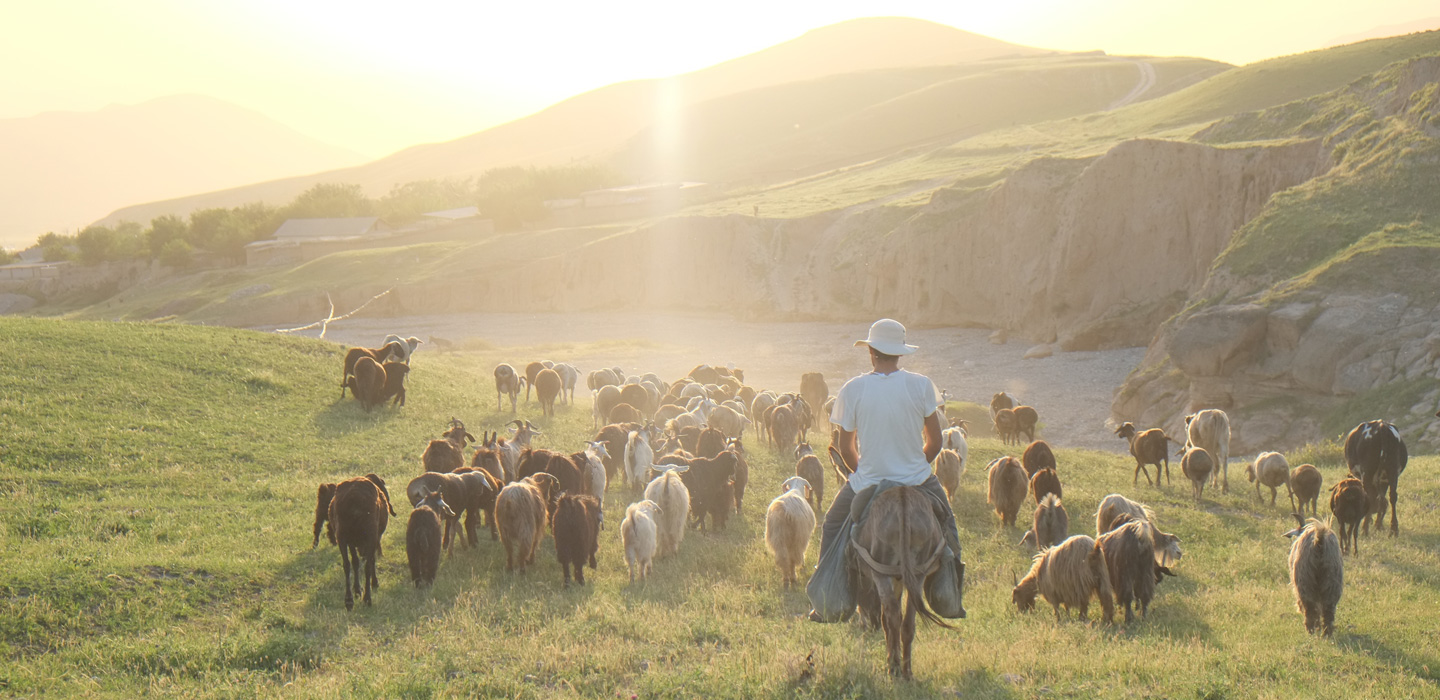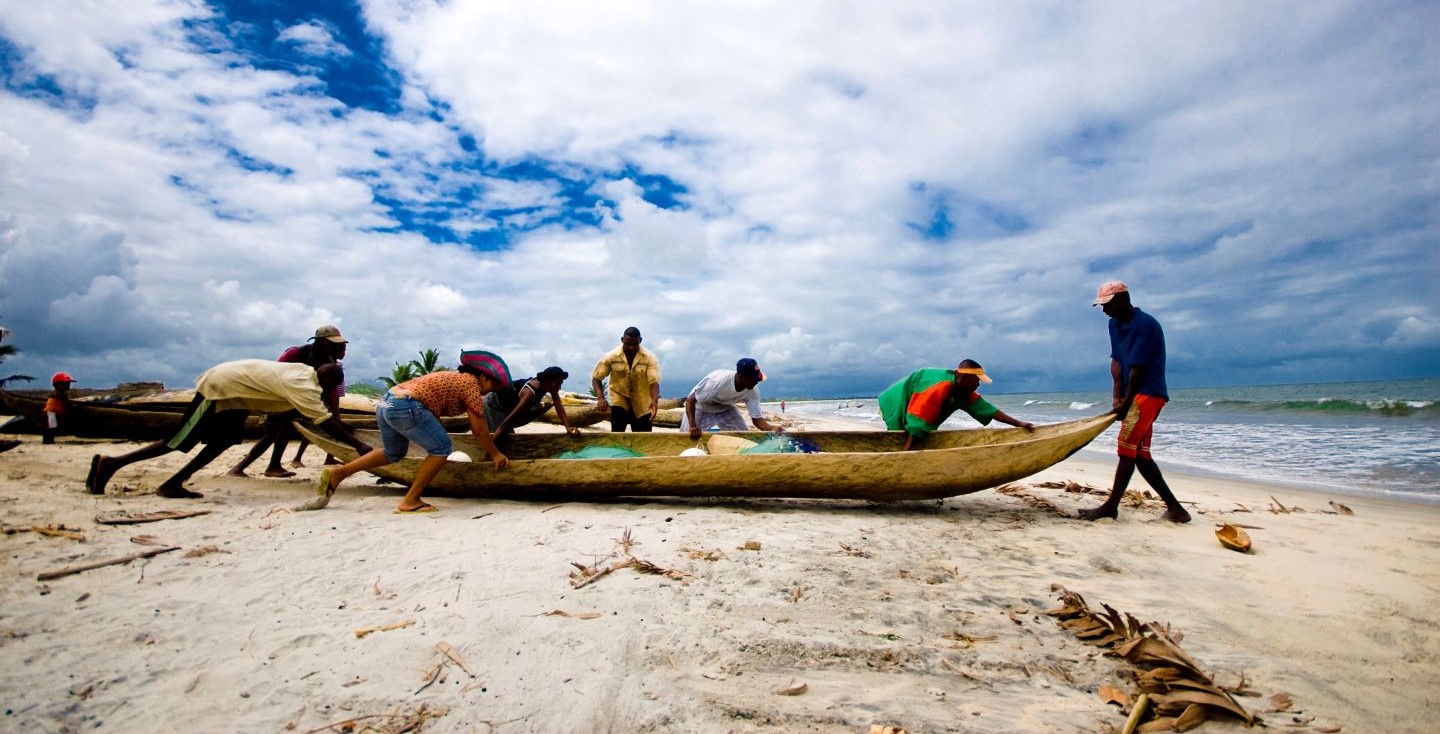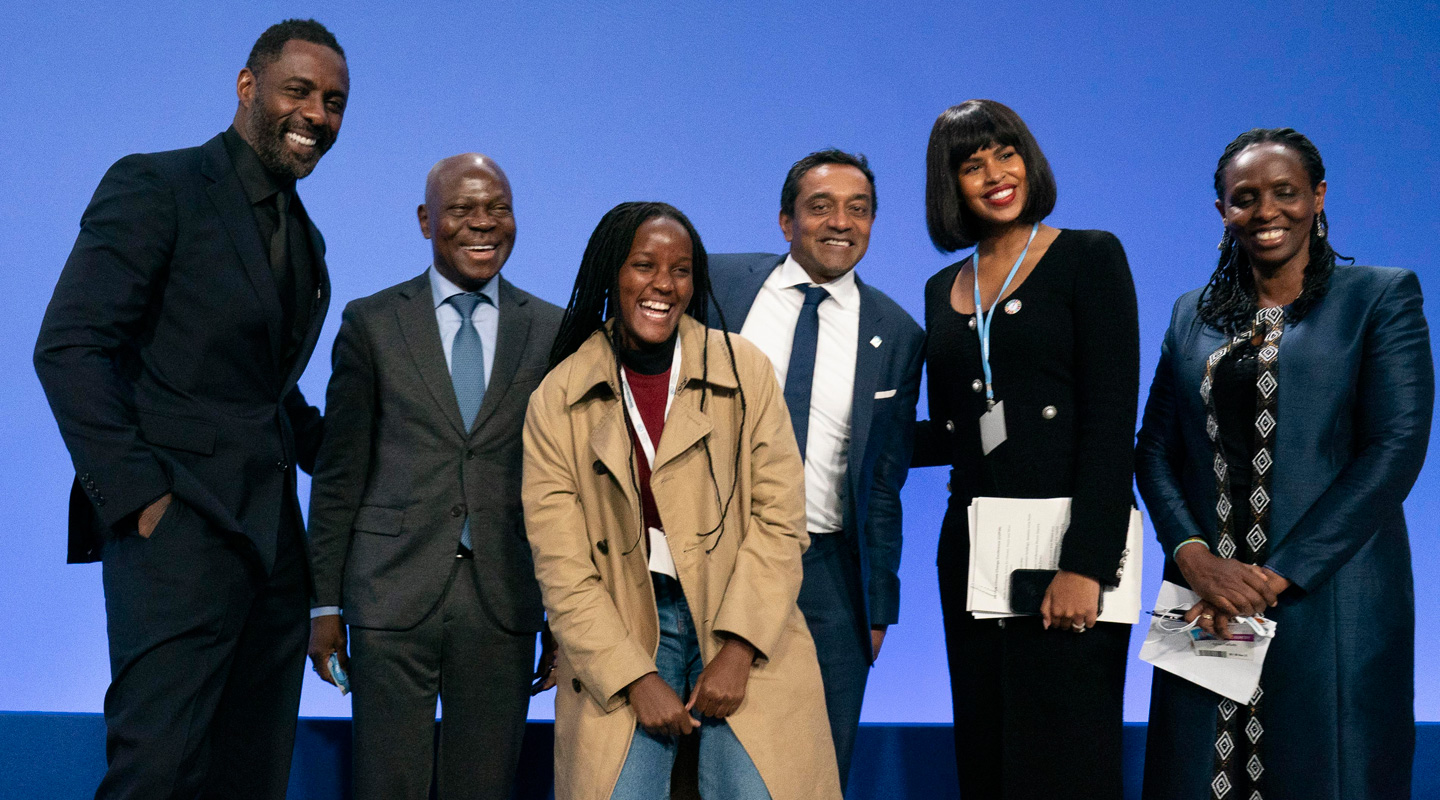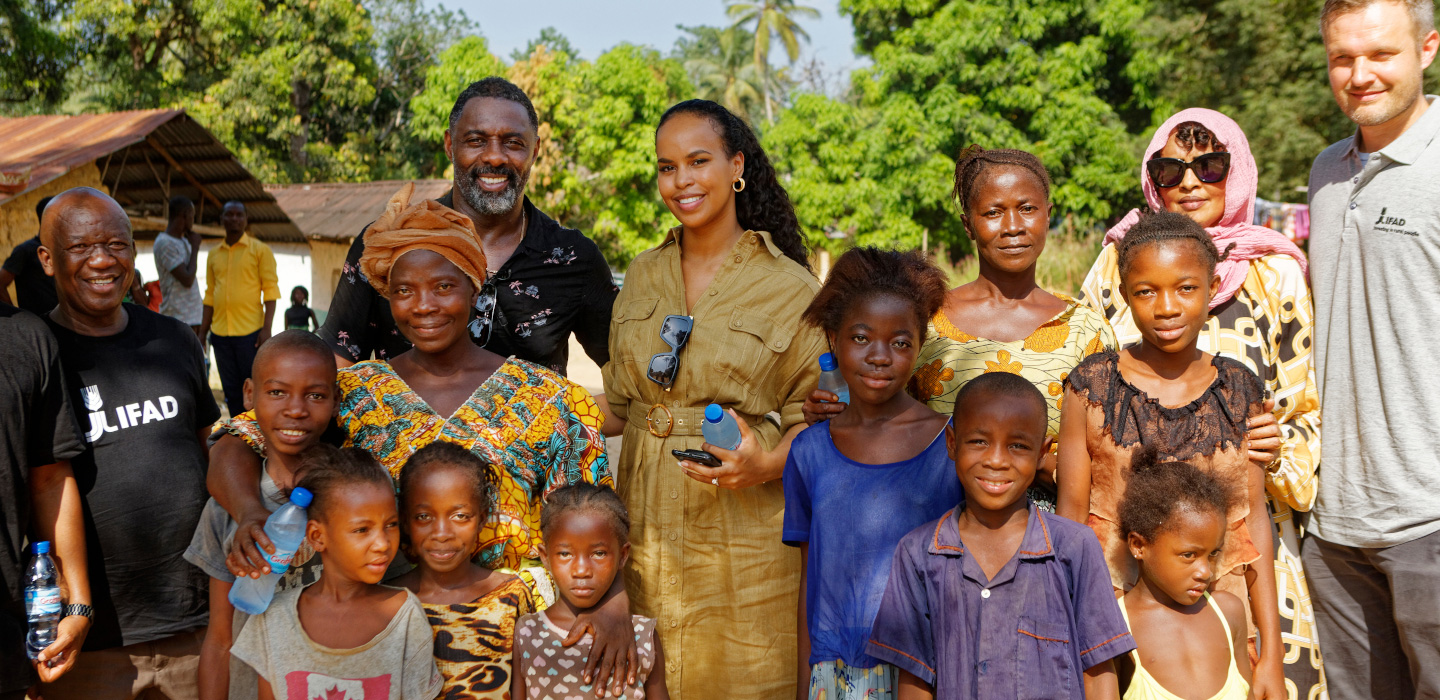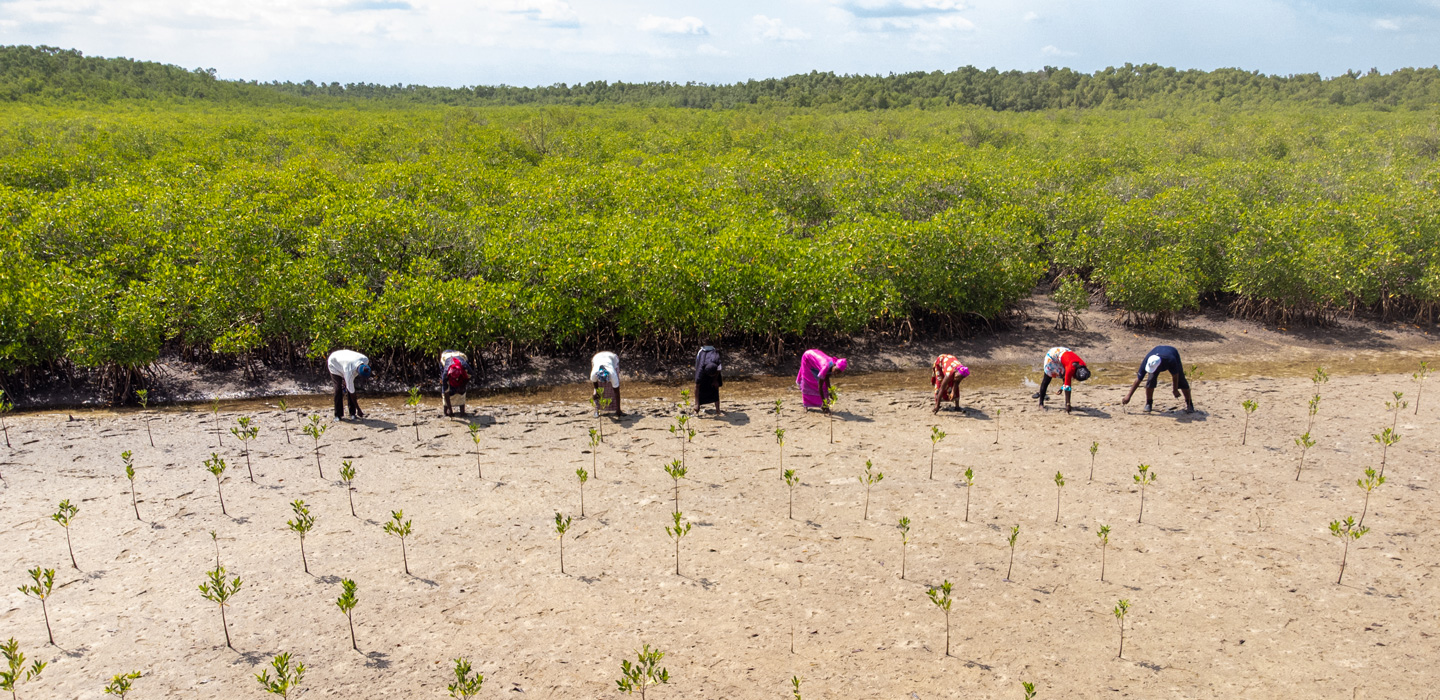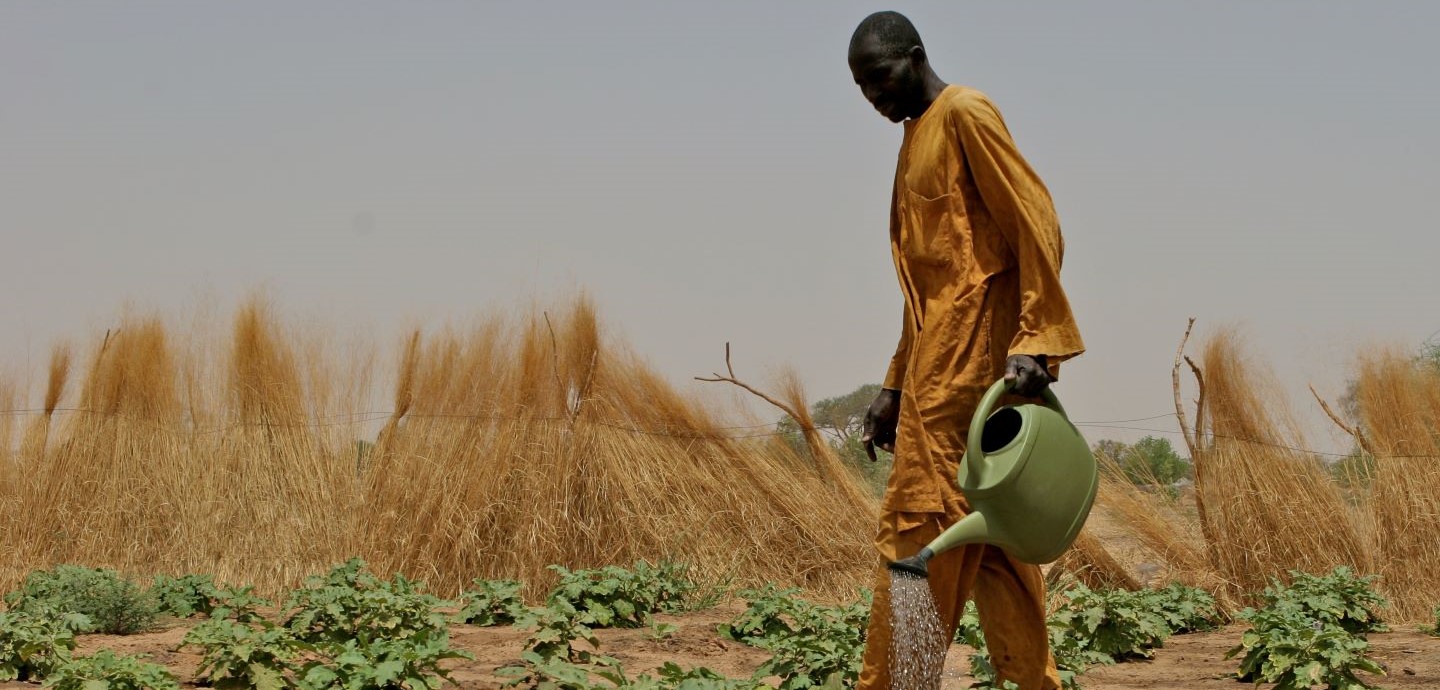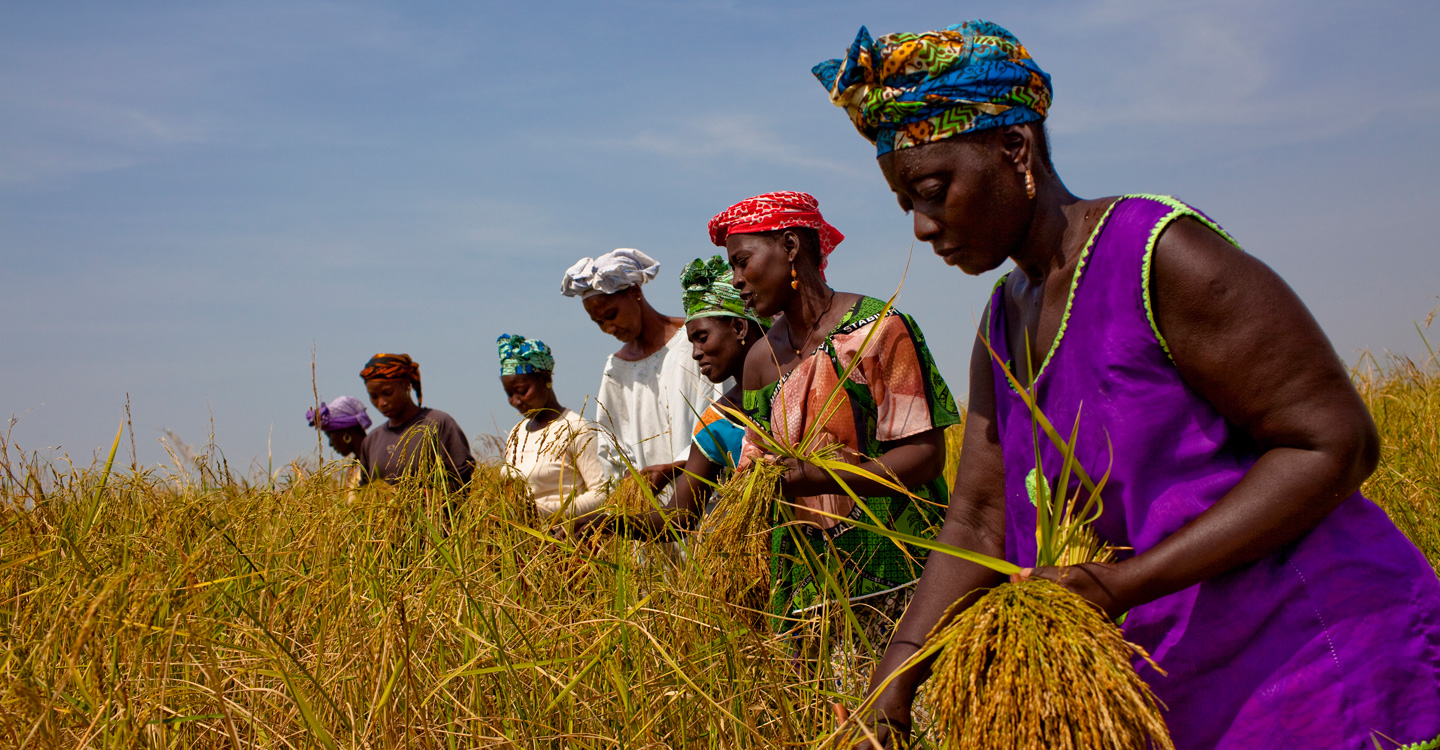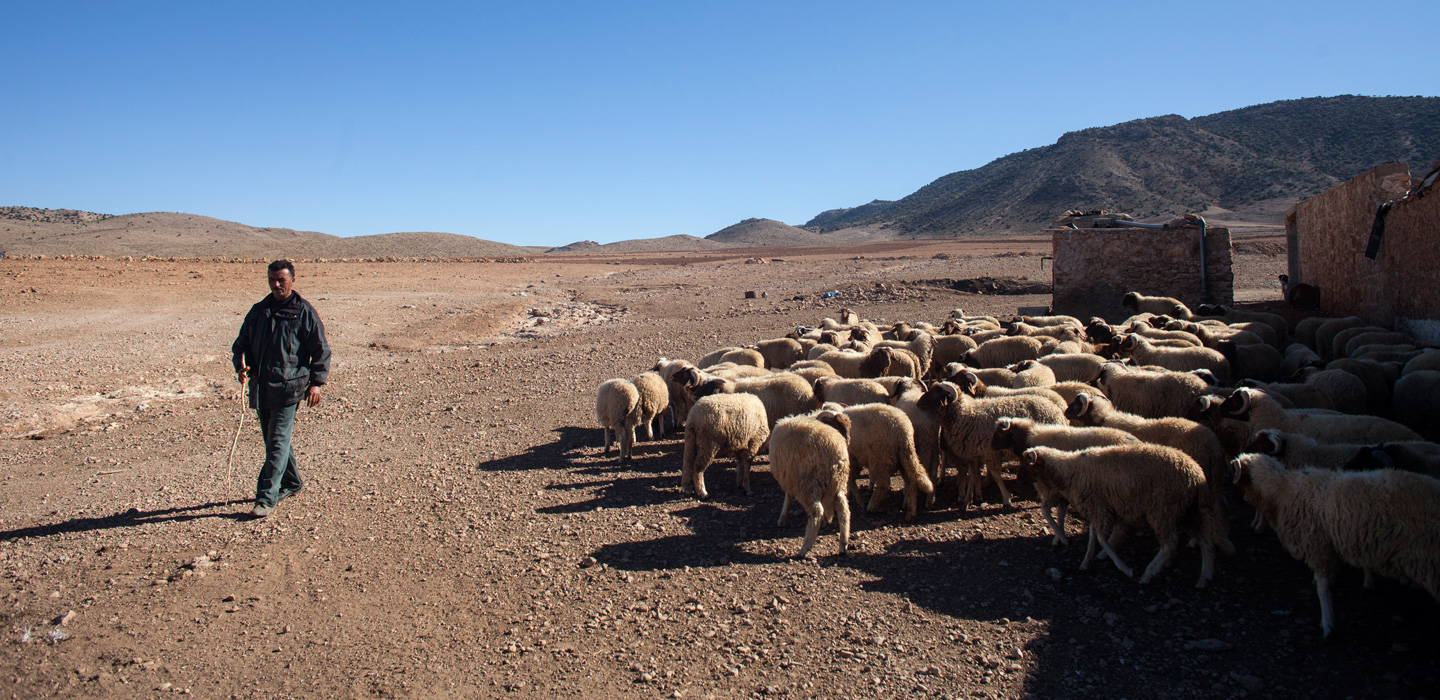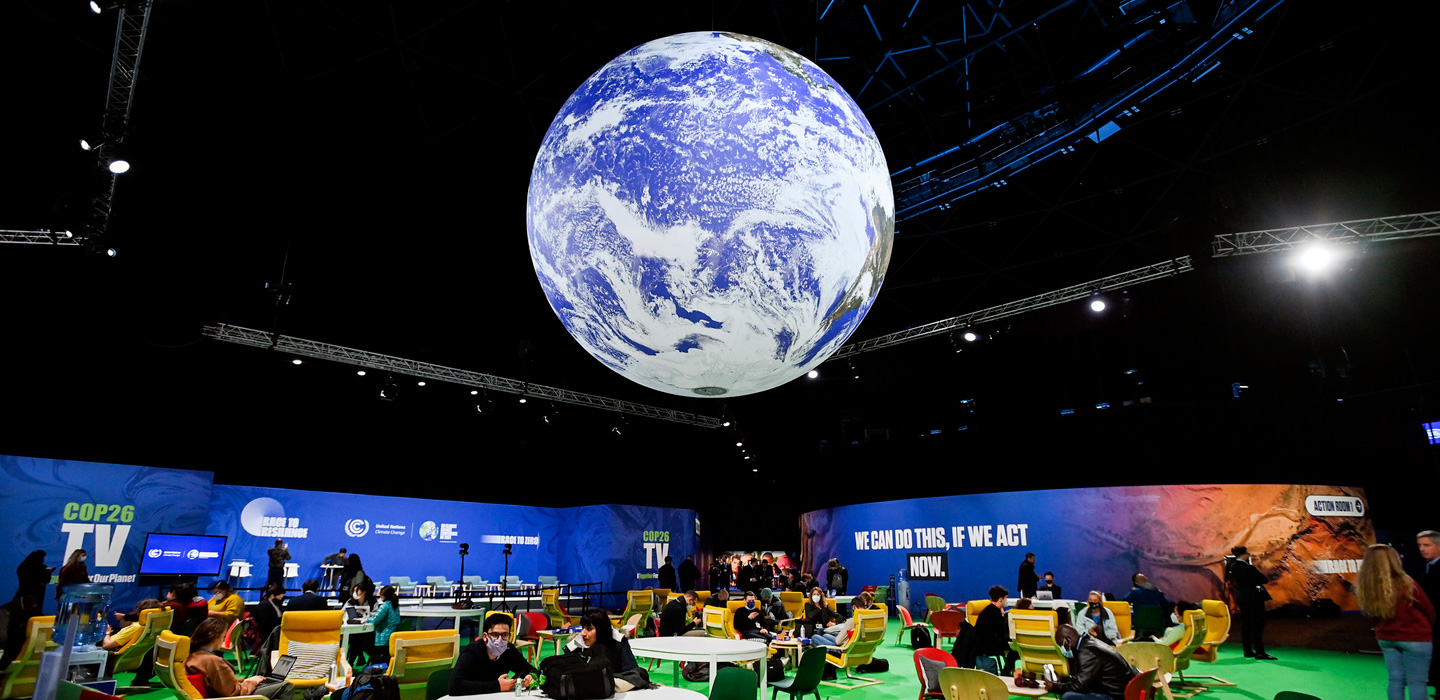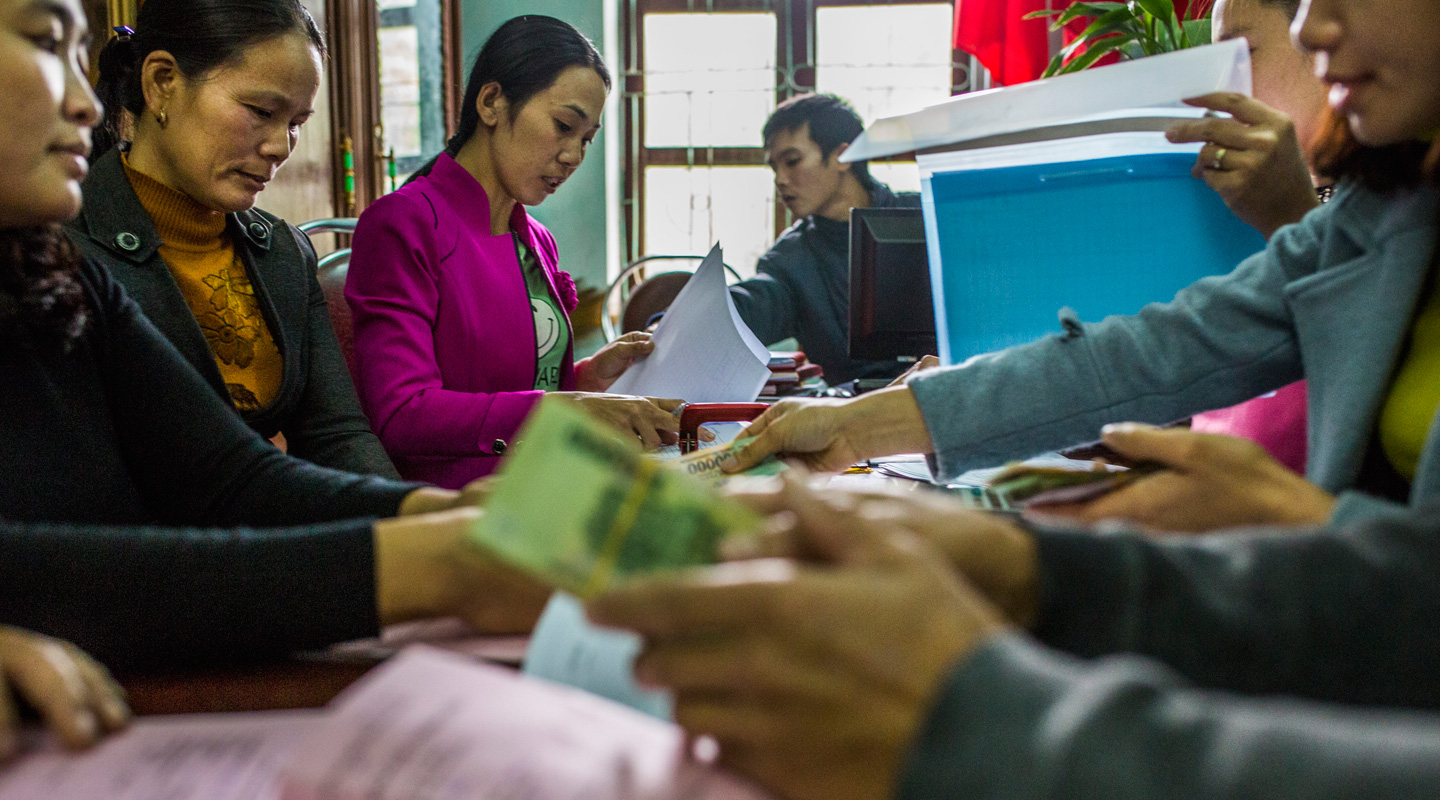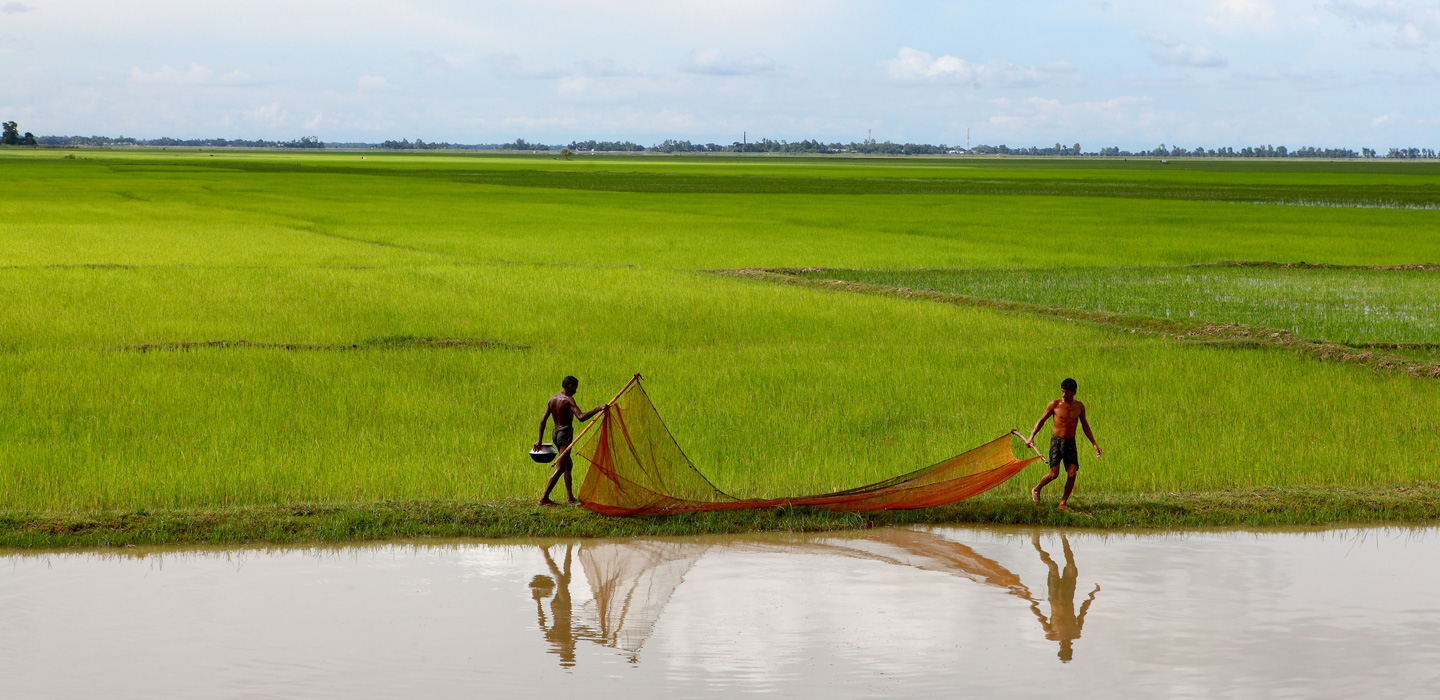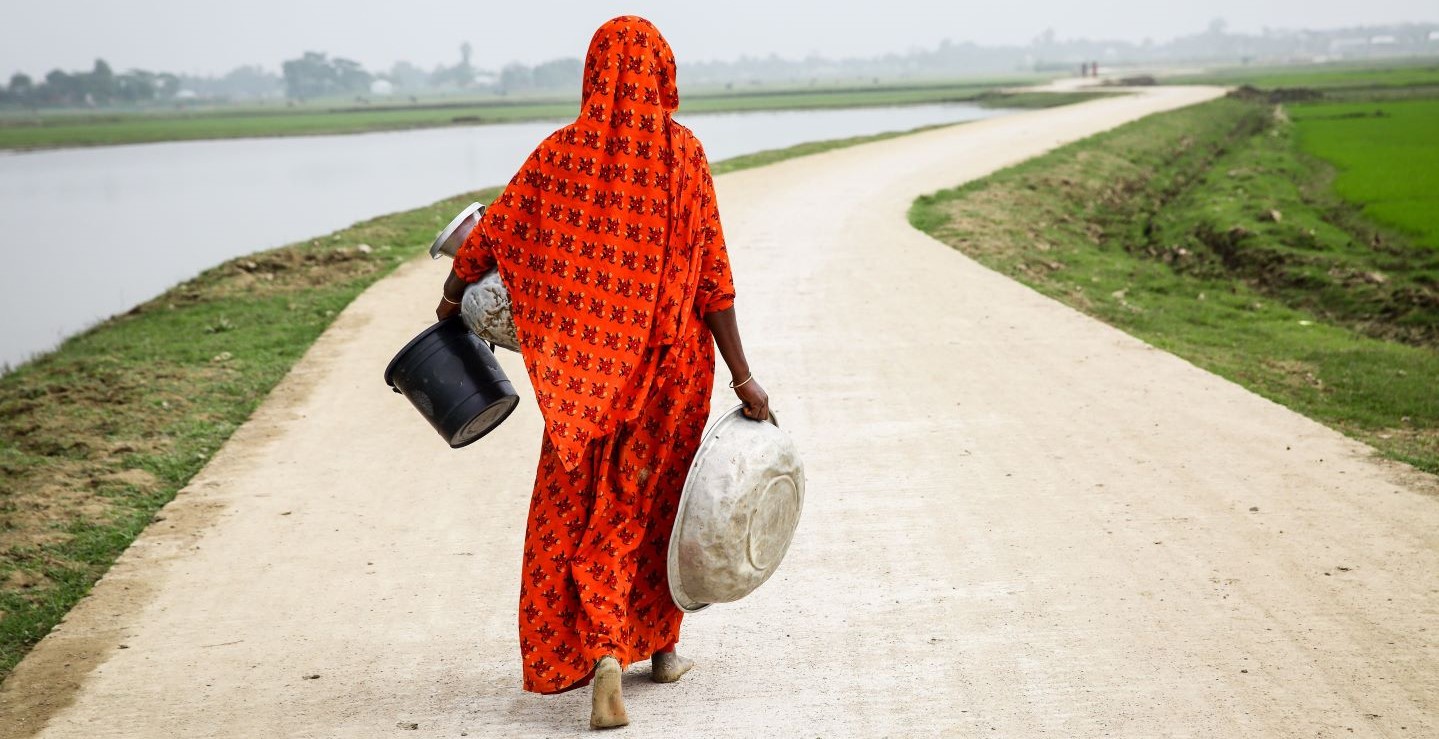Latest
Latest

Latest
Manual Submenu Topics
SearchResultsFilters
Search Results
Tapping public policies and programmes to boost IFAD’s impact
In many countries, we have the opportunity to partner with public policies and programmes to deliver the services our project participants need. Although effective inter-institutional coordination is never simple, it is doable – and entirely worth the effort.
Why free, prior and informed consent is so important for indigenous peoples
At the heart of this year’s session of the UN Permanent Forum on Indigenous Issues is “free, prior and informed consent.” Quite a mouthful! But what does it really mean? And why does it matter?
Do IFAD-supported projects reduce the risk of conflict? What the evidence says
We used GIS to assess the impact of IFAD-supported projects on the likelihood of conflict in fragile contexts. Our results suggest that the presence of IFAD interventions may prevent conflicts from arising and reduce the overall number of conflicts.
Closing the Social Justice Gap – Episode 31
This episode is all about closing the social justice gap in rural communities and developing countries.
The importance of food sovereignty for indigenous peoples: A conversation with Dr. Elifuraha Laltaika
Learn more about food sovereignty and what it means for indigenous peoples with Dr Elifuraha Laltaika, a professor of law and expert on indigenous peoples’ rights.
Indigenous peoples lead adaptation efforts through IFAD’s dedicated funding
Over the millennia, indigenous peoples have developed practices that honour the interconnectedness of people and nature – yet all too often, their contributions are overlooked and devalued. IFAD is committed to supporting indigenous peoples in overcoming poverty and meeting global challenges through building on their identities and cultures.
What it will take to make IFAD truly diverse
There is much interest in promoting workplace diversity recently. Not only is this long overdue, but it also makes financial sense.
Nouveaux accords de financement - Le FIDA accompagne le Sénégal dans son aide aux populations rurales face à la pauvreté et aux changements climatiques
Le FIDA et le Gouvernement de la République du Sénégal ont procédé aujourd’hui à la signature d’un accord de financement visant à améliorer la productivité et l'accès au marché des chaînes de valeur des produits de base prioritaires et de l'élevage, dans le bassin arachidier et les zones agropastorales du Sénégal.
IFAD-funded project to fight rural poverty by addressing climate change effects in Mexico’s Balsas Basin
IFAD and the Government of Mexico have signed a financial agreement today that will support the implementation of a project aimed to fight rural poverty by reducing small-scale farmers’ vulnerability to climate change in one of the Mexican regions most affected by this phenomenon.
Building resilience in the Asia-Pacific region in uncertain times
Just as the shadow of COVID-19 was lifting from many parts of the world, new crises have arisen – and they’re a particularly difficult challenge for poor rural people in developing countries.
In Bosnia and Herzegovina, rural agribusinesses cluster together to flourish
All too often, small family farms operate in isolation. By themselves, they often lack the resources and skills they need to thrive. IFAD is now bringing small-scale farmers and other stakeholders into clusters to work together for their common interests. We caught up with one of our technical specialists to learn more.
IFAD-funded project to protect the environment in Haiti by improving smallholder farmers' and artisanal fishermen's livelihoods
IFAD and the Government of Haiti signed a financing agreement today for the implementation of the Inclusive Blue Economy Project (I-BE). The project will help preserve the Three Bay Protected Area by providing economic opportunities to smallholder famers and artisanal fishermen living in the country’s north-eastern region.
Chef Cracco on how jackfruit is helping rural people in Sri Lanka adapt to climate change
Carlo Cracco, one of Italy’s most famous chefs, is helping IFAD promote jackfruit as a way to adapt to climate change in rural Sri Lanka.
Investing in rural youth in El Salvador to tackle migration and enhance food security
The IFAD-funded Rural Adelante Project in El Salvador helps rural youth stay in their communities and make a living from agriculture, instead of migrating to cities or abroad.
Small-scale farmers and climate adaptation – an under-reported story and world’s premiere of short film with Chef Carlo Cracco are featured at the Perugia International Journalism festival
With COP27 just seven months away, this event brings together food activists and chefs, a climate journalist, a climate expert and farmers themselves to talk about why small-scale farmers must be part of the climate change conversation and the value they can bring to those reporting on climate issues.
How the war in Ukraine impacts the world
Conflict and food insecurity go hand-in-hand. Stable food systems and sustainable development are simply not possible without peace.
US$20 million loan from India boosts IFAD’s efforts to tackle hunger and poverty in rural areas
India has strengthened its commitment to fight hunger and poverty in rural areas by agreeing to loan US$20 million to IFAD.
Agriculture is not just a contributor to climate change. It is an essential part of the solution - IFAD’s reaction to the latest IPCC report
While we can no longer avoid climate change, we can still limit its impacts. It is time we start viewing agriculture as an essential part of the solution.
Communities use GIS maps to conserve forests and adapt to climate change
Making the right decisions about managing natural resources isn’t always easy. That’s especially true for watersheds, where the local ecosystem depends on the health of multiple waterways. Now, GIS technology is helping communities in rural Nepal monitor and preserve the forests fed by local watersheds.
From biotechnologist to artisanal cheesemaker
Ibtissèm’s career in the pharmaceutical industry was off to a strong start, but she put it on hold when her mother fell ill. Back in her hometown in central Tunisia, she needed a new way to support herself and her mother – and then she realized that her skills would serve her well in her town’s bustling dairy industry.
Appointment of the President of IFAD
The President of IFAD is appointed for four years with a two-term limit.
Member States to nominate candidates for next IFAD President
IFAD today announced a call to its 177 Member States to nominate candidates for the Fund’s next President.
Meet some of the women leading sustainable development around the world
Sustainable development can only be achieved with the contributions of rural women, yet they face many challenges. Let’s meet three women who have transformed their lives with the help of the JP RWEE initiative.
Building a bay, one oyster at a time: A conversation with Chef Rob Rubba
“At the end of the day, restaurants are a luxury, but having food is a right. Everyone should have access to food.”
Putting Nature at the Heart of Farming - Episode 30
This month’s episode is all about biodiversity and agriculture.
IFAD-funded project to combat climate change, increase staple food production and enhance Bolivia’s food security
IFAD and the Government of Bolivia have signed a financing agreement that initiates the implementation of the ACCESOS Rural Project. This rural development intervention will help Bolivian small-scale farmers counter the great impact of climate change on the country’s rural areas to increase staple food production, thus enhancing food security.
IFAD discusses COP27 preparations with the Egyptian government
IFAD’s Associate Vice-President for Strategy and Knowledge Jyotsna Puri visited Egypt last week, where she met with the Egyptian government, the United Nations Resident Coordinator in Egypt, representatives and beneficiaries of IFAD's projects, as well as local media. Dina Saleh, Regional Director of the Near East, North Africa and Europe Division, accompanied her during the visit.
Recipes for Change: Sri Lanka - Polos Curry
In Sri Lanka, the climate crisis is causing rising temperatures, increasingly extreme weather events and variable precipitation patterns are harming agricultural productivity and food security. Through the Smallholder Agribusiness Partnership Programme, IFAD offers solutions for rural people, including promoting jackfruit among smallholder farmers because of its high value and resilience.
Is the grass always greener where it rains?
Groundwater depletion continues to be a challenge for small-scale farmers in the NENA region, despite the existence of water-saving technologies. Now, a new study is shedding light on ways farmers can improve their water efficiency – and where they can turn for help.
Groundwater can help small-scale farmers adapt to climate change, if it’s used sustainably
If groundwater is used carefully, it can be used by small-scale farmers to grow the crops they need to feed their families and build livelihoods in areas that are strongly affected by climate change.
Uncovering the truths about groundwater
Below our feet lies a hidden treasure: groundwater. It sustains ecosystems and provides food, drink and livelihoods for billions. And as climate patterns change with global heating, this reliable water source is becoming ever more important for food security and livelihoods.
In Moldova, shelter belt forests build rural livelihoods and protect against climate change impacts
Forests are an excellent buffer against the effects of climate change. They’re also home to a variety of native plant and animal species that can foster resilient, sustainable local economies.
Impacts of Ukraine conflict on food security already being felt in the Near East North Africa region and will quickly spread, warns IFAD
As the war continues to rage in Ukraine, impacts of rising food prices and shortages of staple crops are already being felt in the Near East and North Africa region and spreading to the world’s most vulnerable countries.
Empowering Rural Women: UN Joint Programme’s new phase to target countries in Africa, Asia and the Pacific
Four United Nations agencies today announced the forthcoming launch of a new phase of a joint programme that aims to secure rural women’s livelihoods, rights and resilience to advance sustainable development.
IFAD and UN Women join hands for rural women’s empowerment in China
IFAD and UN Women were each working in rural China, helping women access new opportunities and gain an equal say in their communities. Then the two agencies decided to collaborate, opening up new ways to fulfil their respective mandates – rural development on one hand, and women’s empowerment on the other.
Appel à propositions: Création de possibilités d’emploi pour la jeunesse rurale en Afrique
Cet appel à propositions vise à sélectionner un bénéficiaire ou un consortium de bénéficiaires pour recevoir un financement sous forme de don du FIDA sur quatre ans pour mettre en œuvre le projet : Opportunités d'emploi pour les jeunes ruraux - Appui à l'initiative des pôles agro-industriels intégrés
From virtual reality to virtual field visits: How IFAD used technology to stay connected to the people we serve during COVID
Two years ago, COVID-19 closures forced us all apart – but the creative use of technology helped keep us together. Today, with tech giants promising to take all of us into the metaverse, IFAD is exploring how cutting-edge technology can help us see the world through each other’s eyes.
In The Gambia, targeted COVID-19 support helps small businesses flourish
Back in early 2020, when the first waves of COVID-19 were spreading around the world, IFAD launched the RPSF as a multi-donor initiative to sustain rural people around the world during the pandemic. With the RPSF’s help, many were able to start small businesses – and today, those businesses are sustaining local economies and building resilience.
Promises kept: Crop insurance makes a difference for Kenya’s small-scale farmers
Farming can be a risky business indeed. Recently, some IFAD-supported initiatives have begun piloting crop insurance programmes for participating farmers – and for KCEP-CRAL farmers in Kenya, the new insurance policies arrived just in time.
Digital Technology and Homeworking help rural women in Guatemala recover from COVID-19
COVID-19 lockdowns meant Juana could no longer go to her job in rural Guatemala. But thanks to a loan from her local rural savings bank and IFAD’s Rural Poor Stimulus Facility, Juana started her own business at home.
Driving Miss Babli: Young women in Bangladesh get the chance to learn new skills
Thanks to driving lessons provided by the Haor Infrastructure and Livelihood Improvement Project - Climate Adapation and Livelihood Protection (HILIP/CALIP), a group of young rural women in Northern Bangladesh now have careers as drivers—a typically male-dominated profession.
UN Food Agencies Call for Climate Adaptation Solutions that Include Women and Girls
As climate extremes become more frequent and intense, women and girls - who are at a higher risk than men and boys of experiencing the devastating effects of the climate crisis - including food insecurity, need to be front and centre when planning and implementing climate change adaptation solutions, said three United Nations' food agencies at their joint International Women's Day event today.
On International Women’s Day, IFAD and Govt. of Maharashtra boost commitment to empower 1 million rural women
Ahead of International Women’s Day, IFAD and the Government of Maharashtra in India agreed to invest an additional US $12 million, to socially and economically empower 1 million rural women in the state through the Nav Tejaswini project.
From Guatemala, to India, to the sun and back: indigenous women are securing a brighter future with solar power
Marta had never left her community before and was nervous to travel. Many told Carmelina not to go, saying India was too far and six months was too long to be away. But despite their concerns, the two women embarked on their journey, determined to bring electricity to their communities.
Why rural women need land rights: A conversation with Steven Jonckheere
This International Women’s Day, we sat down with Steven Jonckheere, IFAD’s Senior Technical Specialist on Gender and Social Inclusion, for a conversation on why women’s land rights matter – and what IFAD is doing about it.
These numbers prove that rural women are crucial for a better future. But they're not getting what they need to succeed
Despite being largely responsible for the food on our farms and on our tables, women don’t have access to the same resources as men. Without access to land, finance, training, inputs and equipment, women can’t produce effectively, achieve financial stability or food security, or grow their businesses.
To tackle climate change, we need to empower rural women. Here are four ways to do that
Rural women already know what needs to be done to help their households and communities adapt to climate change and build resilience. Here are four ways to empower them for a climate-safe future.
IFAD-funded project to increase coffee and cocoa production in eastern Cuba while building resilience of smallholder farmers to climate change
IFAD and the Government of Cuba hosted an event today at the Hotel Nacional in Havana to launch the Agroforestry Cooperative Development Project (PRODECAFE). The project aims at increasing coffee and cocoa production in the eastern region of the country, while contributing to enhanced resilience of this region’s smallholder farmer cooperatives to climate change.
Why must we wait another generation to close the gender gap? Women are long overdue a seat at the table
Last year, the World Economic Forum revised its estimates for closing the gender gap. Shockingly, rather than reaching equality sooner, the gap has increased a generation. At IFAD, we work to achieve a more equitable rural world, one where women’s participation in decision-making is no longer an exception.
5 questions you should be asking about climate change and rural women
Women and girls all over the world are more strongly affected by climate change. For International Women’s Day, we’re taking a look at why that is and how women and girls can lead the way in adapting to the new environment.
The impact of conflict in Ukraine on global food security – statement by Gilbert F. Houngbo, President of IFAD
At IFAD we are following the situation in Ukraine with a heavy heart. We deplore the loss of life and displacement of populations, and we join the call of the UN Secretary General to end military operations, restore peace and protect human rights.
UN agency IFAD and the Chinese Academy of Agricultural Sciences release study on the impacts of COVID-19 on the rural economy
This meta-analysis study captures the key findings of the impact of the COVID-19 pandemic on the rural economy and especially on the livelihoods of smallholder farmer households.
2021 Gender Awards: Five IFAD-supported projects transforming women’s roles in rural communities
Every year, we recognize a project from each of our regions that empowers rural women and girls. Here, we present the winners of the 2021 Gender Awards.
Nutrition-sensitive investments for resilient food systems: Lessons from Ethiopia
More and more of IFAD’s development projects are focusing on nutrition as a way to optimize their impact. Our work in Ethiopia exemplifies this.
An alarm we can no longer ignore: IFAD’s reaction to IPCC’s latest report
The IPCC’s new report, “Impacts, Adaptation and Vulnerability”, underscores the urgency of climate change adaptation.
Norway puts small-scale agriculture at the center of its fight against hunger and poverty with increased funding to IFAD
Norway boosted its fight against hunger and poverty today by announcing a contribution of NOK140 million (US$14.7 million) to IFAD.
Changing the narrative on Haiti
Last year, a 7.2-magnitude earthquake caused more than 2,200 deaths and US$2 billion worth of damage in southern Haiti. In February 2022, a Donors' Conference was held to seek financial and political support for the reconstruction and relaunch of the region.
Norwegian Minister Tvinnereim and IFAD President Houngbo to visit Malawi in wake of storms to discuss climate resilience and hunger
With Malawian farmers still reeling from tropical storms that devastated crops and livelihoods in recent weeks, Norway’s Minister of International Development and the President of IFAD will visit the country to meet its leaders and small-scale farmers to discuss the impacts of climate change, and ways to build resilience.
Brazil: Sharing Buriti with the rest of the world
Brejo Dois Irmãos is a tiny and isolated community of 200 families in north-east Brazil. It hides a precious treasure: the burití, or “tree of life” in the indigenous Tupi-Guarani language.
IFAD-funded project to develop technological solutions to help smallholder farmers overcome COVID-19 impact in Latin America and the Caribbean
IFAD launched the Innovatech project today, which aims to develop agricultural (AgriTech) and financial (FinTech) digital solutions to facilitate small famers’ access to markets and to financial and non-financial services in Bolivia, El Salvador, Guatemala, Haiti, Honduras and Mexico.
Gender Equality Today for a Sustainable Tomorrow – Episode 29
This month, in anticipation of International Women’s Day 2022, our focus is on gender equality.
The roots that connect us: A conversation with Chef Jeong Kwan
Jeong Kwan is a Zen Buddhist nun. She’s also a chef famous for both her sustainable vegan recipes and her pure and sincere approach towards cooking. Our conversation touched upon everything from traditional Korean temple food to what we need to do to rebalance our food systems.
In rural China, new opportunities for persons with disabilities
Job opportunities in the agricultural sector can be very limited for people with disabilities. In rural China, therefore, initiatives dedicated to including people with disabilities in their local economies – including IFAD-supported projects – have been central to national efforts to eliminate extreme poverty.
World leaders call for innovative solutions and urgent financing to address rural poverty in a warming world at IFAD’s global meeting
World leaders today called for urgent and innovative investments to help rural communities in the world’s poorest countries adapt to climate change. Speaking at the opening of the annual Governing Council meeting attended by 177 Member States of IFAD, leaders specifically highlighted the vulnerability of small-scale farmers to severe weather events, like the storms that devastated Madagascar in recent weeks killing at least 121 people and destroying more than 176,000 hectares of land.
In rural Ghana, soapmaking brings success for women living with disabilities
Many persons with disabilities face barriers to accessing education, training and employment – and for women with disabilities, those barriers are even higher. Fortunately, there are a growing number of programmes designed to help rural-dwellers with disabilities find decent jobs and fully participate in their local societies.
Global leaders to discuss how to finance a more resilient, inclusive post-COVID world at IFAD Governing Council meeting – 16 February 2022
Heads of state, ministers and rural development experts will come together at the 45th annual Governing Council meeting of IFAD to look towards a post-COVID world, and discuss how to harness innovations and new financing mechanisms to build more inclusive and resilient rural economies.
IFAD to provide additional support to mitigate COVID-19 impact in Somalia
A US$ 1.07 million grant agreement between IFAD and the Government of the Federal Republic of Somalia will finance the Resilience Livelihood Action to COVID-19 project (RLAC-19)—a move to strengthen the ability of poor rural people to cope with the effects of the COVID pandemic and threats to their livelihoods.
Forging new connections through the “tree of life”
Brejo is not easy to reach: the only way in or out is a 12-kilometre dirt road running through a swamp, which most vehicles can’t manage. And with no way to sell their most important crop – burití (Mauritia flexuosa), a native palm tree – the 200 families living there frequently felt forgotten by the outside world.
How agrobiodiversity can nourish the planet
For our people and planet to flourish, we need agrobiodiversity: agricultural systems that enhance our wealth of ecosystems and living beings instead of diminishing it. Our work has long recognized the importance of agrobiodiversity for sustainable food systems, and now we’re taking this commitment even further.
Using evidence from IFAD’s Impact Assessments to inform the design of new projects
To make sure we’re investing in what works and achieving maximum impact, we evaluated 17 of our project Impact Assessments to look for broader trends. The results have implications for everyone who works in rural development – from those on the ground to the donors who make this work possible.
United Nations rural poverty agency IFAD set to boost its ethical investments
In a significant move to strengthen its commitment to ethical investments, the Executive Board of IFAD agreed on a policy to further shift the Fund’s treasury investments to green bonds and other Environmental, Social and Governance (ESG) investments.
The Iron Horse: Improving animal and human health in Kyrgyzstan
Herding livestock is central to Kyrgyzstan’s economy, society and culture, but the nation has long lacked enough veterinarians to care for these animals. Now, an IFAD-supported project is helping to train veterinarians and make sure they reach even the country’s most remote areas.
What's in Store for Food Security and Farming in 2022 - Episode 28
This month’s episode is all about what lies ahead for the world of agriculture in 2022.
IFAD’s Rural Development Report launched in China - advocating for transforming food systems for rural prosperity
IFAD, together with the China Centre for Agricultural Policy of Peking University, launched IFAD’s Rural Development Report 2021, in a virtual event today.
In rural Montenegro, women gather to share their successes
In north-eastern Montenegro, an IFAD-funded project is helping women start their own businesses and gain greater representation in their communities. Recently, many of these women gathered to share their successes and teach and learn from each other.
The Netherlands provides EUR 4.13 million grant to enhance climate change adaptation and resilience in agriculture in Jordan
IFAD, the Ministry of Planning and International Cooperation in Jordan, and the Kingdom of the Netherlands signed a EUR 4.13 million financial agreement this week to strengthen the sustainability and climate resilience of ongoing interventions under the Rural Economic Growth and Employment Programme (REGEP) in Jordan.
2021: Rural Resilience in Action
For another year, millions of small-scale farmers have been bearing the brunt of climate change and COVID-19. We were there to support them every step of the way.
Supporting small-scale farmers around the world
2021 brought immense challenges to all corners of the world. Nevertheless, IFAD has been busy doing what we always do: supporting projects that improve the lives of rural small-scale farmers.
Innovating Agriculture Into the Future – Episode 27
In our end-of-year episode, we’re focusing on all things innovative in the world of agriculture. We hear from agro-preneurs in Australia, Africa and Asia who are using cutting-edge technologies and exploring new solutions to common problems.
Norway commits funds to IFAD to lift aquaculture communities out of poverty and lower malnutrition in Kenya, Mozambique and Tanzania
As more people spiral into hunger and poverty due to pandemic restrictions, climate change and conflicts, the Norwegian Agency of Development Cooperation (NORAD) has committed NOK 45 million (US$5 million) to increase the incomes and build the resilience of small aquaculture farmers in Kenya, Mozambique and Tanzania, IFAD announced today.
In Turkey, strawberry farms bring opportunities for rural youth
Youth who grew up in the Taurus Mountains of Turkey have traditionally moved to the big cities to pursue their careers. But recently, thanks to an IFAD-supported project, the region’s farmers have begun growing strawberries. Highland strawberries are proving quite popular, driving the growth of a new regional value chain – and bringing the region’s youth back to the countryside to take part.
To help avert future food crises in the world’s poorest regions, Canada commits its highest-ever funding to the UN agency IFAD
At a time when rural people in low-income countries face steep increases in food prices and the devastating impacts of climate change are contributing to a rise in hunger and poverty, Canada has announced today its commitment to support the resilience of small-scale farmers and the prosperity of rural communities by increasing its funding to IFAD.
La Unión Europea y el FIDA se alían para fortalecer las organizaciones de pequeños agricultores en América Latina
El proyecto Apoyo a las organizaciones de pequeños agricultores en América Latina servirá para fortalecer la estructura y la capacidad productiva y de acesso a mercados de este tipo de organizaciones en la región, gracias a una alianza entre la Unión Europea y el FIDA.
Solar-powered fridges aid COVID recovery in Djibouti
This year’s COVID-19 lockdowns cut off Djibouti’s fishing community from their markets. But with no way to store fish in the searing heat, many fishers were forced to throw their catch away. Now, thanks to some solar-powered fridges, they’re back on their feet and trading with new customers.
Denmark commits millions to vulnerable farmers through IFAD’s climate adaptation fund
In the wake of COP26, which featured a strong call for increased financing to help the world’s poorest countries adapt to the impacts of climate change, Denmark today announced a contribution to IFAD of DKK 190 million (about US$29 million) to help small-scale farmers cope with unpredictable weather.
Nutrition-sensitive agriculture: The cornerstone of a healthier world
It might seem counter-intuitive to suggest that agriculture should become more nutrition-sensitive – but many small-scale producers worldwide are at risk of food and nutrition insecurity. We’re committing to more ambitious goals for integrating nutrition into our investments and project activities.
Urgent investments in small-scale farming needed to offset soaring food prices and deepening malnutrition, says IFAD
With soaring food prices pushing millions of people into food insecurity, IFAD is calling on governments and the private sector to urgently step up their investments in small-scale agriculture, especially for locally produced, nutrition-rich food. The call was made ahead of today’s opening of the Tokyo Nutrition for Growth Summit.
In China, youth are at the forefront of transforming food systems
Young people are the future of the world’s food systems, and they should therefore have a say in how the food systems of tomorrow should be configured. In China, youth have long been leading efforts to promote organic farming and sustainable consumption – and now, they’re beginning to act for change.
A green new hope for degraded soils
Over half the world’s arable land is already degraded, and this number is growing at a rate of 23 hectares per minute. But with the support of an IFAD-funded project – along with an unlikely ally – farmers in Bolivia’s Pando region are restoring the land in record time.
Disability rights matter for the world’s rural-dwellers
Our vision of inclusive, sustainable, green, and resilient rural economies can’t be accomplished without the inclusion of persons with disabilities. We are committed to finding ways for persons with disabilities to participate fully in society and realize their potential as contributors to vibrant rural economies.
Food producers need a greater voice in global climate forums, says Finnish development leader and IFAD’s new head of external relations
Food is one the defining issue of our time yet, as we have seen at the recent COP26 climate conference, the people who produce our food are too often missing from global forums that impact their lives, said Satu Santala, who joins IFAD today as its Associate Vice-President of External Relations and Governance.
New UN report: Hunger in Latin America and the Caribbean rose by 13.8 million people in just one year
Hunger in Latin America and the Caribbean is at its highest point since 2000, after a 30 percent increase in the number of people suffering hunger from 2019 to 2020, says a new UN report.
New UN report warns that the number of people suffering hunger in Latin America is at its highest point in two decades
FAO, IFAD, PAHO/WHO, UNICEF and WFP will present a report focusing on the latest statistics and trends of food security and nutrition in the region.
Fixing our food systems means getting the fundamentals right
The term “food systems” encompasses a huge variety of activities and issues. To make sure we’re all starting from the same place, let’s focus on the fundamentals: the land, and how to treat it well.
Promoting sustainable agrifood systems to combat climate change
It’s clear by now that no real progress on climate change mitigation will be achieved without the active participation of today’s top greenhouse gas emitters. In addition to transitioning their energy sectors away from carbon, actions such as making their agrifood systems more sustainable and promoting the use of natural carbon sinks could produce dramatic results in record time.
Expanding the Blue Economy in East and Southern Africa – Episode 26
This month’s episode is all about the blue economy – the economic, social and environmental activity that revolves around marine and coastal resources – of the East and Southern Africa region. This sector offers many potential opportunities for governments, the private sector and small-scale producers, along with some challenges.
Taking stock of the dairy business with the Wazo Jema Youth Group
Wazo Jema is one of many youth-led small businesses that got a boost through the IFAD-funded Vijabiz programme. Although they’re on more solid ground than they were before, they’ve continued to face some challenges – and these difficulties highlight ways that future initiatives can be improved.
€400 million loan from KfW boosts IFAD’s efforts to tackle hunger and poverty and help rural poor adapt to climate change
Germany has signalled its strong commitment to ensuring millions of rural people in some of the world’s poorest countries can adapt to the impacts of climate change, earn decent incomes and access sufficient, nutritious food by committing up to €400 million through its state-owned KfW Development Bank, in a loan agreement signed with IFAD.
President Ouattara of Côte d’Ivoire and IFAD President Gilbert F. Houngbo to discuss investing in small-scale farmers to eradicate hunger and poverty
IFAD's President Gilbert F. Houngbo will be in Côte d’Ivoire 21–23 November to meet with President Alassane Ouattara and other government officials for strategic discussions, as well as meeting small-scale farmers in the field. Climate change, resilience building, agricultural transformation and rural prosperity, strategic partnership and the small-scale farmers will be at the top of the agenda.
An IFAD–Indonesia partnership advances the policy agenda on sustainable peatland management
Peatlands store twice as much carbon as all the world’s forests and are home to everything from orchids to orangutans – but today, these lands are in peril. A partnership between IFAD and Indonesia’s Ministry of Environment and Forestry is working to set a national policy agenda that will protect peatland ecosystems.
Tipping the scales of equality in the Philippines
"Before, these women were just waiting at home. Now, we are more educated. We are empowered to be more independent," says Ruperta Gagarin, a businesswoman from the Philippines.
Fostering ecosystem services in the Peruvian Andes
The FIDA-MERESE project has helped farmers in the Jequetepeque and Cañete river basins become stewards of the ecosystems on which they depend.
Highlights from COP26 – Friday 12 November 2021
The end of COP26 is fast approaching, and we’re still waiting for a final agreement. However, based on the draft texts that have been released, it’s clear there’s still a risk of gaps between long-term targets and short-term action.
IFAD to increase investment and presence in transforming food systems in East and Southern Africa
The IFAD regional team held its annual East and Southern Africa Business Planning meeting to outline a vision for the next three years, under the IFAD 12 replenishment cycle. With less than 10 years to achieve the Sustainable Development Goals (SDGs), and the region’s small-scale farmers and rural people suffering the effects of the pandemic, climate change impacts, locust infestation and other crises, it is essential to plan bold actions to preserve and advance development gains.
On the banks of the São Francisco, where fishing, tourism and social inclusion converge
Brazil’s São Francisco river is a place of convergences. The river delta, and the stunning tropical forest surrounding it, is home to many different ethnic groups who settled there in search of a fresh start. Plans for a new ecotourism route that would allow visitors to experience the area’s rich culture and traditions were well under way – and then the pandemic struck. Nevertheless, one IFAD-funded project managed to support the region’s artisans and fishers.
Public-private partnerships accelerate climate change adaptation in Viet Nam
In recent years, saline intrusion – the encroachment of seawater into fresh water sources – has become a serious threat to small-scale farmers in Viet Nam’s Mekong Delta. Thanks to a public-private partnership, a local technology company was able to collaborate with an IFAD-supported project to create a lasting solution.
Effective micro-organisms: The key to healthy soil and healthy diets in rural Lao
Agriculture is the main source of income and livelihood in rural Lao. But Lao crops are highly climate-sensitive, leaving farmers with little room for error when it comes to climate adaptation.
Highlights from COP 26 – Wednesday 10 November
The start of the second week of the Glasgow Climate Change Conference marked a shift to a more political phase of the conference. Ministers arrived, former US President Barack Obama drew a crowd, and negotiations continued.
Zimbabwe and IFAD join forces to transform small-scale agriculture
IFAD today announced support for a new US$67.43 million investment programme that seeks to increase productivity and rural incomes for 78,000 vulnerable rural households in Zimbabwe.
Four ways nature-based solutions benefit rural people and communities
“Nature-based solutions” (NbS) might sound like a buzzword, but these techniques are some of the most effective tools in our arsenal against the effects of climate change.
ShareFair of geospatial tools and applications for climate investments
As changing climates affect farming conditions across the world, how can geospatial and remote sensing tools help IFAD and others decide on where adaptation investments are best needed and what impact these interventions will have?
COP26: New US$143 million investment to restore Great Green Wall ecosystems and increase climate resilience in the Sahel, announce IFAD and GCF
A new US$143 million investment programme will ensure millions of the most at-risk rural people living in the Sahel region of West Africa can adapt to climate change, with a wide-reaching plan to restore degraded land and provide climate information systems and agricultural insurance. The announcement was made today at the UN climate change conference (COP26) during a signing ceremony of the grant agreement between IFAD and the Green Climate Fund (GCF).
COP26: Sweden steps up to help at-risk small-scale farmers adapt to climate change, pledging millions to IFAD’s climate fund
Sweden today signalled its strong commitment to help some of the world’s poorest small-scale farmers to adapt to climate change, by pledging SEK100 million (nearly US$11.7 million) to IFAD. The announcement was made at the UN climate change conference (COP26) in Glasgow.
How nature based solutions are transforming lives
Nature-based solutions is a concept that highlights the fact that people can proactively protect, manage or restore natural ecosystems, while significantly contributing to addressing six major challenges: climate change, food security, water security, human health, disaster risk, and social and economic development.
Managing fisheries for sustainability and resilience: The case of Angola
The fisheries and aquaculture sectors fully or partially support the livelihoods of 10–12 per cent of the world’s population. Yet fisheries across the world are under threat from climate change and over-exploitation. The question of how best to manage fisheries under these conditions is a complex one, but in our experience, bringing communities into inclusive governance structures is an indispensable part of the solution.
Highlights from COP26 – Saturday 6 November
IFAD Goodwill Ambassadors, Idris and Sabrina Elba attended COP26 to help ensure that African farmers are not left out of the climate conversation and to promote greater investments for small-scale farmers and producers to adapt to climate change.
Media briefing with Idris and Sabrina Elba on how we can feed ten billion humans without destroying the habitable planet
We would like to invite you to our in-person media briefing on Saturday, 6 November at 11:00-11:30 GMT with IFAD and Conservation International on the importance of investing in small-scale agriculture, climate adaptation and nature-based solutions to achieve sustainable and prosperous food systems.
IFAD Goodwill Ambassadors Idris and Sabrina Elba attend COP26 to advocate for increased investments in climate adaptation and biodiversity protection
As climate negotiations enter a crucial phase, Idris and Sabrina Elba, UN Goodwill Ambassadors for IFAD, will attend COP26 to advocate for increased investments to help small-scale farmers to adapt to climate change and to protect biodiversity.
Six reasons to focus on small-scale producers at COP26
IFAD believes rural economies and food systems have the potential to become more resilient, sustainable, inclusive – and productive – all at the same time. But to get there, we need to focus our attention and support on the people who make these systems work.
The French Development Agency and the International Fund for Agricultural Development join hands to promote food security and sustainable agriculture in the Republic of The Gambia
On 1 November 2021, the French Development Agency (AFD) and IFAD will sign a €7 million grant agreement to support the implementation of the project “Resilience of Organizations for Transformative Smallholder Agriculture” (ROOTS). The project aims to improve food security, nutrition and smallholder farmers’ resilience to climate change in The Gambia.
COP26: Pastoralists and rural entrepreneurs from Asia and Africa amongst speakers at IFAD Pavillion
Pastoralists and young rural entrepreneurs from six different Asian and African countries will be at COP26 in person to share their experiences in managing their ecosystems and to advocate for investments to stimulate green jobs and climate adaptation.
Highlights from COP26 - Wednesday 3 November
It’s the first day at the IFAD Pavilion at COP26 in Glasgow, United Kingdom, and we’ve come together with thousands of activists, world leaders and representatives of businesses and civil society from around the world to talk about the greatest challenge we face: how to mitigate and adapt to climate change.
Bringing the benefits of agricultural insurance to smallholders in Viet Nam: Building awareness and understanding
Between sowing their seeds and selling their harvest, smallholder farmers in developing countries face a multitude of potentially devastating risks. In Viet Nam, as in countries around the world, many of the most severe threats are climate-related, including storms, floods, excessive heat, frost and drought.
At COP26, IFAD spotlights the impact of climate change on small-scale farmers with an innovative virtual visit to Bangladesh
IFAD highlighted the impact of climate change on small-scale farmers at the 26th Conference of the Parties (COP26) to the UN Framework Convention on Climate Change currently underway in Glasgow, UK, through a virtual visit to Bangladesh, where the country’s poorest small-scale farmers spoke about the projects and practices that are helping them adapt.
Protecting homes and livelihoods in Bangladesh’s Haor Basin
On one terrible day four years ago, Anjuli Rani Das’s life was swept away before her eyes. A flash flood engulfed her small duck farm, washing away everything she had worked for in the past years.
